100 Unique and Creative Travel Words with Beautiful Meanings
Disclaimer: This article includes affiliate links to the products we earnestly love and recommend, meaning at no extra cost to you, we might make a teeny-weeny commission if you click on the link and decide to buy something. The money will be used to sustain this little cozy blog we call our virtual home.
Everyone (who knows me) knows how I love words. I hoard words . Everyone also knows how I love to travel. I eat, drink, and sleep travel 🙂 Here, in this post, I’ve blended two of my passions – words and travel. The post rounds up the creative travel words that describe wanderlust perfectly. You’ll never be at a loss for words while narrating your travel experiences once you equip yourself with these unique words about travel.

Unusual Travel Words with Beautiful Meanings
Wanderlust (n.).
Origin: German Pronunciation: vawn-duh-luhst Meaning: a strong desire to travel
Resfeber (n.)
Origin: Swedish Pronunciation: race-fay-ber Meaning: the restless race of the traveler’s heart before the journey begins, when anxiety and anticipation are tangled together; the nervous feeling before undertaking a journey
Related Read: 27 Cool Swedish Words You Must Know
Strikhedonia (n.)
Origin: Greek Pronunciation: strik-he-don-e-a Meaning: the joy of being able to say “to hell with it”
Eleutheromania (n.)
Origin: Greek Pronunciation: eleuthero-ma-nia Meaning: an intense and irresistible desire for freedom
Origin: Hawaiian Pronunciation: ak-i-hi Meaning: listening to directions and then walking off and promptly forgetting them

Exulansis (n.)
Origin: The Dictionary of Obscure Sorrows Pronunciation: exu-lan-sis Meaning: the tendency to give up trying to talk about an experience because people are unable to relate to it — whether through envy or pity or simple foreignness—which allows it to drift away from the rest of your life story, until the memory itself feels out of place, almost mythical, wandering restlessly in the fog, no longer even looking for a place to land.
Hodophile (n.)
Origin: Greek Pronunciation: hodo-phile Meaning: a lover of roads; one who loves to travel
Saudade (n.)
Origin: Portuguese Pronunciation: sau-da-de Meaning: a nostalgic longing for something or someone that was loved and then lost, with the knowledge that it or they might never return; “the love that remains”
Fernweh (n.)
Origin: German Pronunciation: feirn-veyh Meaning: an ache for distant places; a longing for far-off places; an urge to travel even stronger than wanderlust; being homesick for a place you’ve never been
Selcouth (adj.)
Origin: Old English Pronunciation: sel-kooth Meaning: unfamiliar, rare, strange, and yet marvelous

Serendipity (n.)
Origin: English Pronunciation: seh-ruhn-di-puh-tee Meaning: finding something good without looking for it
Pilgrimage (n.)
Origin: Latin Pronunciation: pil-gruh-mij Meaning: a journey, especially a long one, made to some sacred place as an act of religious devotion
Gökotta (n.)
Origin: Swedish Pronunciation: yo-kot-ah Meaning: literally translates to the early cuckoo morning or dawn picnic to hear the first birdsong; the act of rising early in the morning to hear the birds sing at sunrise and appreciate nature
Schwellenangst (n.)
Origin: German Pronunciation: shwel-en-ahngst Meaning: fear of embarking on something new; fear of crossing a threshold
Voyage (n.)
Origin: Latin Pronunciation: voy-ij Meaning: a long journey involving travel by sea or in space

Origin: Japanese Pronunciation: yoo-gehn Meaning: a profound awareness of the universe that triggers emotional responses too deep, powerful, and mysterious for words
Origin: Danish Pronunciation: hue-gah Meaning: the Danish practice of creating warmth, connection, and well-being; a complete absence of anything annoying or emotionally overwhelming; taking pleasure from the presence of gentle, soothing things; celebrating the everyday
You Might Like: Cool Danish Words We Need in English Now
Vagary (n.)
Origin: Latin Pronunciation: va-ga-re Meaning: an unpredictable instance, a wandering journey; a whimsical, wild, and unusual idea, desire, or action
Origin: Dictionary of Obscure Sorrows Pronunciation: mo-rii Meaning: the desire to capture a fleeting experience
“With every click of the shutter, you’re trying to press pause on your life. If only so you can feel a little more comfortable moving on living in a world stuck on the play.”
Musafir (n.)
Origin: Arabic Pronunciation: mu-sa-fir Meaning: traveler
Musafir remains one of my most favorite words associated with travel.

Odyssey (n.)
Origin: Greek Pronunciation: aw-duh-see Meaning: a long and eventful or adventurous journey or experience
Sonder (n.)
Origin: The Dictionary of Obscure Sorrows Pronunciation: sohn-dehrr Meaning: the realization that each random passerby is living a life as vivid and complex as your own—populated with their own ambitions, friends, routines, worries and inherited craziness—an epic story that continues invisibly around you like an anthill sprawling deep underground, with elaborate passageways to thousands of other lives that you’ll never know existed, in which you might appear only once, as an extra sipping coffee in the background, as a blur of traffic passing on the highway, as a lighted window at dusk.
Gadabout (n.)
Origin: Middle English Pronunciation: gad-uh-bout Meaning: a habitual pleasure-seeker; a person who moves about restlessly and aimlessly, especially from one social activity to another; a person who travels often or to many different places, especially for pleasure
Acatalepsy (n.)
Origin: Greek Pronunciation: ey-kat-l-ep-see Meaning: incomprehensibleness; the impossibility of comprehending the universe; the belief that human knowledge can never have true certainty

Origin: Greek Pronunciation: noh-mad Meaning: a person who does not stay long in the same place; a wanderer
Cockaigne (n.)
Origin: Middle English Pronunciation: ko-keyn Meaning: an imaginary or fabled land of luxury and idleness
Origin: The Dictionary of Obscure Sorrows Pronunciation: o-ni-sm Meaning: the awareness of how little of the world you’ll experience
“The frustration of being stuck in just one body, that inhabits only one place at a time, which is like standing in front of the departures screen at an airport, flickering over with strange place names like other people’s passwords, each representing one more thing you’ll never get to see before you die—and all because, as the arrow on the map helpfully points out, you are here.”
Nemophilist (n.)
Origin: Greek Pronunciation: ni-mo-fi-list Meaning: a haunter of the woods; one who loves the forest for its beauty and solitude
Trouvaille (n.)
Origin: French Pronunciation: troo-vee Meaning: a lucky find; a chance encounter with something wonderful and valuable

Safarnama (n.)
Origin: Persian Pronunciation: su-fur-nama Meaning: travelogue; an account of the travels
Smultronställe (n.)
Origin: Swedish Pronunciation: smool-tron-stall-uh Meaning: literally translates to place of wild strawberries; a special place discovered, treasured, returned to for solace and relaxation; a personal idyll free from stress or sadness
Livsnjutare (n.)
Origin: Swedish Pronunciation: livs-noo-tuhreh Meaning: literally translates to enjoyer of life; someone who loves life deeply and lives it to the extreme
Wayfarer (n.)
Origin: Old English Pronunciation: wey-fair-er Meaning: someone who travels, especially on foot
Kopfkino (n.)
Origin: German Pronunciation: kof-kino Meaning: literally translates to head cinema; the act of playing out an entire scenario in your mind

Hireath (n.)
Origin: Welsh Pronunciation: her-rith Meaning: a homesickness for a home to which you cannot return, a home which maybe never was; the nostalgia, the yearning, the grief for the lost places of your past
Peripatetic (n.)
Origin: Greek Pronunciation: per-uh-puh-tet-ik Meaning: a person who travels from place to place
Luftmensch (n.)
Origin: Yiddish Pronunciation: looft-mensh Meaning: literally translates to an air person; an impractical dreamer with improbable plans and no business sense; one with their head in the clouds
Solivagant (adj.)
Origin: Latin Pronunciation: soh-lih-va-ghent Meaning: wandering alone
Waldeinsamkeit (n.)
Origin: German Pronunciation: vahyd-ahyn-zahm-kahyt Meaning: literally translates to woodland solitude; the feeling of being alone in the woods

Ecophobia (n.)
Origin: English Pronunciation: eco-phobia Meaning: a fear or dislike of one’s home
Origin: Japanese Pronunciation: u-key-yo Meaning: literally translates to the floating world; living in the moment, detached from the bothers of life
Meraki (n.)
Origin: Greek Pronunciation: may-rah-kee Meaning: to do something with soul, creativity, and love; when you leave a piece of yourself in your work
Wabi-sabi (n.)
Origin: Japanese Pronunciation: wabe-sabe Meaning: finding beauty in imperfections; an acceptance of things as they are
Vorfreude (n.)
Origin: German Pronunciation: vor-froy-dah Meaning: the joyful, intense anticipation that comes from imagining future pleasures

Cosmopolitan (n.)
Origin: English Pronunciation: koz-muh-pahl-i-ten Meaning: belonging to all the world; not limited to just one part of the world; someone who has traveled a lot and feels at home in any part of the world
Peregrinate (v.)
Origin: Middle English Pronunciation: per-i-gruh-neyt Meaning: to travel or wander from place to place
Sojourn (n.)
Origin: Latin Pronunciation: soh-jurn Meaning: a temporary stay
Shinrin-yoku (n.)
Origin: Japanese Pronunciation: shin-rin-yo-ku Meaning: literally translates to forest bathing; a leisurely trip to the forest for recreation, relaxation, meditation, and therapy
Origin: Thai Pronunciation: ti-eow Meaning: to wander or roam around in a carefree way

Origin: Serbian Pronunciation: mir-ak Meaning: enjoyment of the simple things in life; the feeling of bliss and sense of oneness with the universe that comes from the simplest of pleasures; the pursuit of small, daily pleasures that all add up to a great sense of happiness and fulfillment
Dépaysement (n.)
Origin: French Pronunciation: de-pe-iz-ma Meaning: the feeling that comes from not being in one’s home country; disorientation due to experience of unfamiliar surroundings; being out of your element like a fish out of water
Itinerant (n.)
Origin: Latin Pronunciation: ai-ti-nr-uhnt Meaning: one who travels from place to place
Numinous (adj.)
Origin: Latin Pronunciation: noo-muh-nuhs Meaning: having a strong religious or spiritual or supernatural quality; indicating or suggesting the presence of divinity; describing an experience that makes you fearful yet fascinated, wed yet attracted – the powerful, personal feeling of being overwhelmed and inspired
Heimweh (n.)
Origin: German Pronunciation: haim-ve Meaning: homesickness; nostalgia; a longing for home

Sprachgefühl (n.)
Origin: German Pronunciation: shprahkh-guh-fyl Meaning: the character and spirit of a language; an intuitive sense of the rule and rhythm of language
Mångata (n.)
Origin: Swedish Pronunciation: mo-an-gaa-tah Meaning: the glimmering, roadlike reflection of the moonlight on water
Dromomania (n.)
Origin: Greek Pronunciation: dro-mo-ma-nia Meaning: an uncontrollable impulse or desire to wander or travel
Sehnsucht (n.)
Origin: German Pronunciation: zen-zukt Meaning: the inconsolable longing in the human heart for we know not what; a yearning for a far, familiar, non-earthly land one can identify as one’s home
Dérive (v.)
Origin: French Pronunciation: de-rive Meaning: literally translates to drift; a spontaneous and unplanned journey where the traveler leaves their life behind for a time to let the spirit of the landscape and architecture attract and move them

Absquatulate (v.)
Origin: English Pronunciation: ab-skwoch-uh-leyt Meaning: to leave abruptly without saying goodbye
Thalassophile (n.)
Origin: Greek Pronunciation: thal-as-o-fahyl Meaning: a lover of the sea; someone who loves the sea or ocean
Yoko meshi (n.)
Origin: Japanese Pronunciation: yoh-koh-mesh-ee Meaning: literally translates to a meal eaten sideways; refers to the peculiar stress of speaking a foreign language
Forelsket (v.)
Origin: Norwegian Pronunciation: phor-rel-sket Meaning: the euphoria you experience when you are first falling in love
Read More: 14 Beautiful Norwegian Words We Need in English Now
Rückkehrunruhe (n.)
Origin: The Dictionary of Obscure Sorrows Pronunciation: rukee-ren-ruhee Meaning: the feeling of returning home after an immersive trip only to find it fading rapidly from your awareness—to the extent you have to keep reminding yourself that it happened at all, even though it felt so vivid just days ago—which makes you wish you could smoothly cross-dissolve back into everyday life, or just hold the shutter open indefinitely and let one scene become superimposed on the next, so all your days would run together and you’d never have to call cut.

Eudaimonia (n.)
Origin: Greek Pronunciation: u-de-mon-e-a Meaning: literally translates to human flourishing; a contented state of being happy, healthy, and prosperous
Sturmfrei (adj.)
Origin: German Pronunciation: stirm-fra Meaning: literally translates to storm-free; the freedom of not being watched by a parent or superior; being alone in a place and having the ability to do what you want
Origin: Mandarin Chinese Pronunciation: yu-yi Meaning: the desire to see with fresh eyes, and feel things just as powerfully as you did when you were younger-before expectations, before memory, before words
Photophile (n.)
Origin: English Pronunciation: pho-to-phile Meaning: Derived from the biological term “photophilic” for an organism that thrives in full light, it means a person who loves photography and light
Traipse (v.)
Origin: Unknown Pronunciation: trayps Meaning: to walk or go aimlessly or idly or without finding or reaching one’s goal

Neophile (n.)
Origin: Greek Pronunciation: neo-phile Meaning: one who loves or has a strong affinity for anything new or novel
Ballagàrraidh (n.)
Origin: The Dictionary of Obscure Sorrows Pronunciation: bal-la-ga-rye Meaning: the awareness that you are not at home in the wilderness
Vacilando (v.)
Origin: Spanish Pronunciation: vah-see-lan-doh Meaning: to wander or travel with the knowledge that the journey is more important than the destination
Quaquaversal (adj.)
Origin: Latin Pronunciation: kwey-kwuh-vur-sul Meaning: moving or happening in every direction instantaneously
Coddiwomple (v.)
Origin: English Pronunciation: kod-ee-wom-pul Meaning: to travel in a purposeful manner towards a vague destination

Vemödalen (n.)
Origin: The Dictionary of Obscure Sorrows Pronunciation: ve-mo-da-len Meaning: the fear that everything has already been done
“The frustration of photographing something amazing when thousands of identical photos already exist—the same sunset, the same waterfall, the same curve of a hip, the same closeup of an eye—which can turn a unique subject into something hollow and pulpy and cheap, like a mass-produced piece of furniture you happen to have assembled yourself.”
Commuovere (v.)
Origin: Italian Pronunciation: com-muo-ve-re Meaning: a story that touches or stirs you and moves you to tears
Natsukashii (adj.)
Origin: Japanese Pronunciation: nat-soo-kash-ee Meaning: of some small thing that brings you suddenly, joyously back to fond memories, not with a wistful longing for what’s past, but with an appreciation of the good times
Querencia (n.)
Origin: Spanish Pronunciation: keh-rehn-syah Meaning: a place from which one’s strength is drawn, where one feels at home; the place where you are your most authentic self
Novaturient (adj.)
Origin: Latin Pronunciation: no-vah-ter-y-ent Meaning: desiring or seeking powerful change in one’s life, behavior, or situation

Komorebi (n.)
Origin: Japanese Pronunciation: koh-moh-ray-bee Meaning: sunlight that filters through the leaves of trees
Flâneur (n.)
Origin: French Pronunciation: flah-nœr Meaning: one who strolls around aimlessly but enjoyably, observing life and his surroundings
Hanyauku (v.)
Origin: Kwangali Pronunciation: ha-ahn-yoh-kuu Meaning: to walk on tiptoes across the warm sand
Dès Vu (n.)
Origin: Dictionary of Obscure Sorrows Pronunciation: des-vu Meaning: the awareness that this will become a memory
Gallivant (v.)
Origin: English Pronunciation: gal-uh-vant Meaning: go around from one place to another in the pursuit of pleasure or entertainment

Nefelibata (n.)
Origin: Portuguese Pronunciation: ne-fe-le-ba-ta Meaning: literally translates to cloud-walker; one who lives in the clouds of their own imagination or dreams, or one who does not obey the conventions of society, literature, or art; an unconventional or unorthodox person
Petrichor (n.)
Origin: English Pronunciation: pet-ri-kawr Meaning: a distinctive scent, usually described as earthy, pleasant, or sweet, produced by rainfall on very dry ground; the smell of earth after rain
Circumnavigate (v.)
Origin: Latin Pronunciation: suh-kuhm-na-vuh-gayt Meaning: to sail or travel all the way around the world
Hitoritabi (n.)
Origin: Japanese Pronunciation: hitori-tabi Meaning: traveling alone; a solitary journey
Torschlusspanik (n.)
Origin: German Pronunciation: tursh-luss-pan-ik Meaning: literally translates to gate-closing panic; a sense of anxiety or fear caused by the feeling that life’s opportunities are passing by and diminishing as one ages

Globetrotter (n.)
Origin: English Pronunciation: globe-trawt-uh Meaning: a person who travels widely
Menggonceng (v.)
Origin: Indonesian Pronunciation: menggon-ceng Meaning: to travel by getting a free ride, usually on the back of a friend’s bicycle
Vagabond (n.)
Origin : Old French Pronunciation: va-guh-baand Meaning: a person who wanders from place to place without a home or job
Gemütlichkeit (n.)
Origin: German Pronunciation: guh-myt-likh-kahyt Meaning: a feeling of cozy warmth, friendliness, and good cheer with a sense of belonging
Erlebnisse (n.)
Origin: German Pronunciation: ayr-leeb-nis-eh Meaning: an experience that one feels most deeply, and, in a sense, ‘lives through’ – not just mere life experience, but something memorable which happens to someone

Livslogga (v.)
Origin: Swedish Pronunciation: Meaning: literally translates to life log; continually capturing and documenting one’s life through pictures
Poudrerie (n.)
Origin: French Pronunciation: pu-dre-ri Meaning: fallen snow blown by the wind from the ground, appearing like fine powdery particles across the streets and highways
Yeoubi (n.)
Origin: Korean Pronunciation: yu-bi Meaning: literally translates to fox rain; a sunshower – the event of having a light rain while the sun is still shining
Morriña (n.)
Origin: Galician Pronunciation: mo-rina Meaning: a very deep, nostalgic, and melancholic homesickness experienced as one intensely longs to return home; “a ‘saudade’ so strong it can even kill”
Víðsýni (adj.)
Origin: Icelandic Pronunciation: vith-see-nee Meaning: a panoramic view
Xenophilia (n.)
Origin: Greek Pronunciation: zen-uh-fil-ee-uh Meaning: love for, attraction to, or appreciation of foreign people, manners, customs, or cultures

Do you have other words that describe travel? Send them over! We’d be happy to add them to our list of words for travel lovers.
Save the Rare Words Related to Travel to Pinterest

Sharing is nice 🙂 If you have liked our post please share it with your friends and family and feel free to subscribe to our mailing list or you can also follow our stories on Facebook , Instagram , Pinterest , and Twitter .
Anjali Chawla
Leave a Comment Cancel reply
© 2024 Travel Melodies. All Rights Reserved.
As an Amazon Associate, we earn from qualifying purchases.
28 Beautiful Travel Words that Describe Wanderlust Perfectly
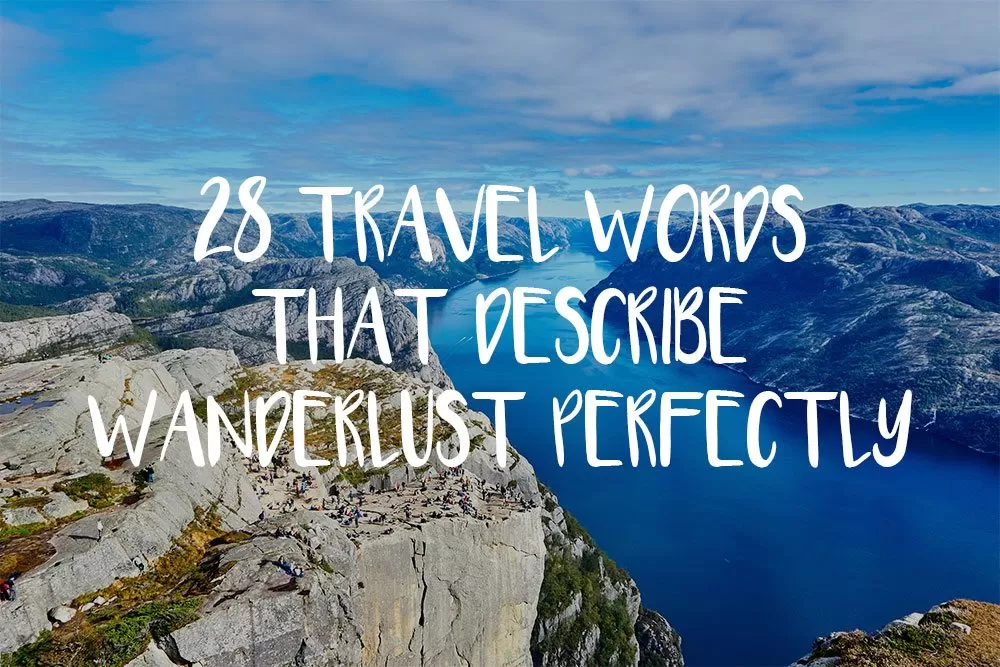
Describe your travels with these unique and beautiful travel words from different languages around the world.
I love travelling and I love languages, so imagine my excitement when I came across a treasure trove of travel words and wanderlust synonyms that describe how we feel before, during, and after we travel.
Just like a photo can’t fully capture what it feels like to stand on the edge of a fjord , neither can ‘wanderlust’ fully express how we feel when we crave our next adventure. These travel words are literary gems which have been gathered from languages around the world. From Japanese to Swedish , Latin to Greek , travel brochures of the future will be peppered with travel words like of resfeber , livsnjutare, and coddiwomple .
Wanderlust meaning
As you’ll see in the list below, every language has its own variation of how it explains and defines what wanderlust is. In English, wanderlust means to have a strong desire for or impulse to travel, wander and explore the world.
Learn a language from home
During these times it can be bittersweet to think about travelling when we have to stay at home and practice social distancing, let this list of wanderlust-filled words inspire you to a learn a language from home and prepare yourself for your next trip. Being travel fluent is the best way to enrich your travel experiences.
Without further ado, here are 28 beautiful travel words you should slip into your vocabulary. When you’re done, take and look at this collection of inspirational travel quotes . I’d love to hear which ones are your favourites in the comment section below.
Table of Contents
- Eleutheromania
- Quaquaversal
- Schwellenangst
- Strikhedonia
- Livsnjutare
- Novaturient
- Coddiwomple
1. Resfeber (n.)
Origin: Swedish
Definition: The meaning of resfeber refers to the restless race of the traveller’s heart before the journey begins when anxiety and anticipation are tangled together.
It’s that moment just after you buy your plane tickets and excitement and fear floods in all at once, creating a mixture of emotions that make you feel anxious or physically ill.
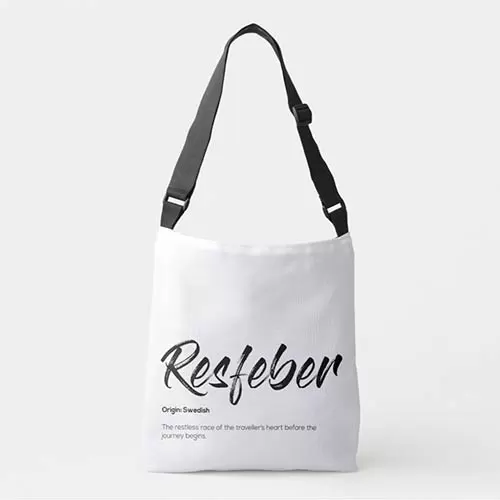
For more inspiration, don’t miss my guide to cool gifts for language learners and the best travel accessories and travel gadgets here.
2. Sonder (v.)
Origin: Unknown
Definition: The realisation that each passerby is living a life as complex as your own.
The full definition, taken from The Dictionary of Obscure Sorrows reads:
[Sonder is] the realization that each random passerby is living a life as vivid and complex as your own—populated with their own ambitions, friends, routines, worries, and inherited craziness—an epic story that continues invisibly around you like an anthill sprawling deep underground, with elaborate passageways to thousands of other lives that you’ll never know existed, in which you might appear only once, as an extra sipping coffee in the background, as a blur of traffic passing on the highway, as a lighted window at dusk.
I often feel this way when I pass groups of strangers, speaking a language that is completely foreign to me, and realise just how incredibly big the world is. We all have a life that is full of different connections, memories and possibilities. That’s sonder.
The internet suggests this may not be a real word, either way, the concept is beautiful.
3. Solivagant (adj.)
Origin: Latin
Definition: Wandering alone. A solitary adventurer who travels or wanders the globe.
Not all those who wander are lost, but all those who wander alone are definitely solivagants . From the Latin word solivagus , meaning lonely or solitary, solivagant describes anyone who enjoys meandering around new countries, alone, in order to take it all in.
4. Fernweh (n.)
Origin: German
Definition: This German word,means an ache to get away and travel to a distant place, a feeling even stronger than wanderlust. If wanderlust wasn’t poetic enough for you, allow me to present fernweh , a German word that literally translates to “distance-sickness.”
While someone with wanderlust might sit at home and happily fantasise about all the places they might visit, someone with fernweh would feel a deeper sense of longing, a sort of homesickness but for foreign lands. For me, it’s wanting to be back in Rome . Fernweh is one of most those beautiful untranslatable words I’ve ever come across.
Carry this beautiful word with you with my Fernweh T-Shirt available in men’s and ladies styles and black or white. Buy it here.

5. Sehnsucht (n.)
Definition: A wistful longing and yearning in the heart for travels past and future.
One author translated it as the “ inconsolable longing in the human heart for we know not what .” Another compared it to “ a longing for a far-off country, but not one which we could identify.”
When you return from travelling and wish you could do it all over again and experience every moment like it was the first.
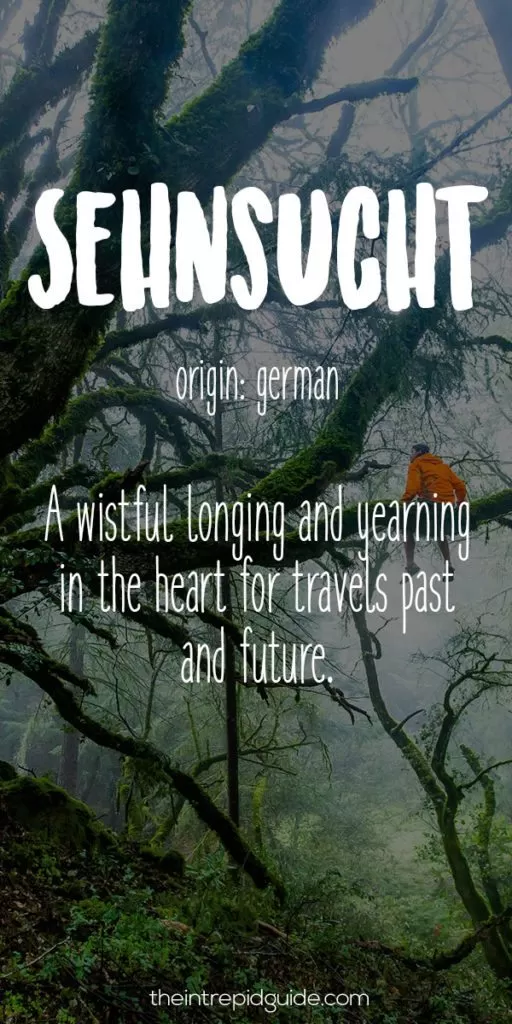
6. Eleutheromania (n.)
Origin: Greek
Definition: An intense and irresistible desire for freedom.
We all want to be free, and travelling shows us how the freedom in the lives of others that is different from our own. Eleutheromania describes a person who has a strong desire and obsession for freedom.
7. Cockaigne (n.)
Origin: French , Middle French
Definition: An imaginary land of luxury and idleness.
Every destination seem like a wonderland or cockaigne before you set foot there and see it for yourself.
The term c ockaigne ” comes from the Middle French phrase pais de cocaigne, which literally means “the land of plenty.” The word was first popularised in a 13th-century French poem that is known in English as “The Land of Cockaigne.”
8. Quaquaversal (adj.)
Definition: Moving or happening in every direction instantaneously.
This perfectly describes my state when I’m in a new place and want to see and do everything at once.
9. Dérive (n)
Origin: French
Definition: A spontaneous and unplanned journey where the traveller leaves their life behind allows themselves to be guided by the landscape and architecture.
Literally translated as “drift”, dérive is the idea that even if you drift you will end up on the right path. This could describe life in general, but it also describes small journeys. When you’re wandering through a new city and you just happen to wander on a path that takes you to great discoveries.
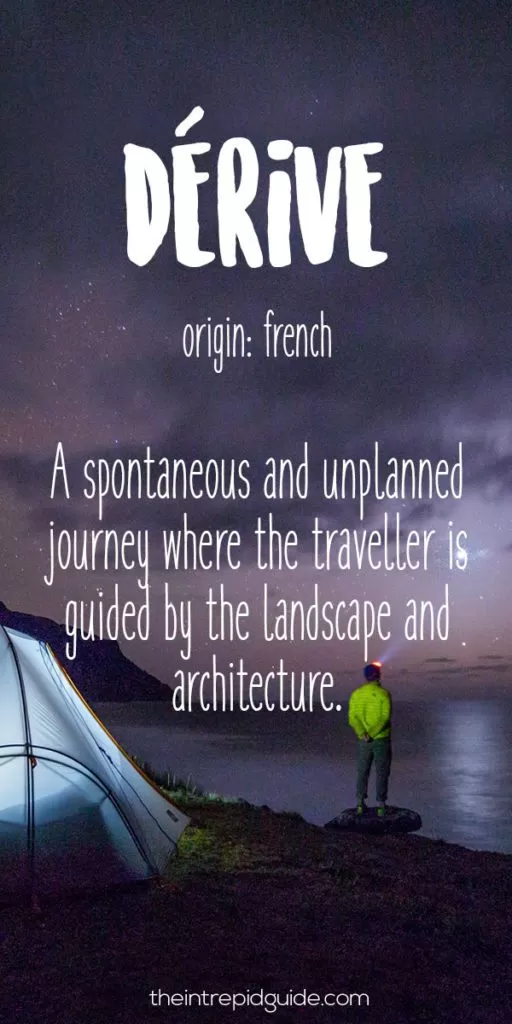
10. Ecophobia (n.)
Origin: English
Definition: This word came into English word via Greek and means a fear or dislike of one’s home.
I don’t dislike my home, but recently I can’t stop thinking about going back to Lofoten, Norway.
11. Numinous (adj.)
Definition: A powerful feeling of both fear and fascination, of being in awe and overwhelmed by what is before you.
Originally, this word refers to having a strong religious or spiritual quality; but it can also be used to describe how you feel when you see things that are so beautiful that you realise how wonderful the world is and the small part you play in it. Hiking Trolltunga was a numinous moment for me.
12. Schwellenangst (n.)
Definition: Fear of crossing a threshold to begin a new chapter.
From s chwelle (“threshold”) and a ngst (“anxiety”), this word explains that feeling you get before deciding to set out on a new journey. Argh! Did I make the right decision?
13. Strikhedonia (n.)
Definition: The pleasure of being able to say “to hell with it”.
Another personal favourite word on this list. Not only is it the joy I feel, but the freedom to be able to say “to hell with it” and book that next trip and embark on your next adventure.
14. Vagary (v.)
Definition: A whimsical or roaming journey.
From Latin, vagārī meaning “ to roam”, is an unpredictable idea, desire or action to travelling without knowing the destination, and not caring.
15. Livsnjutare (n)
Definition: Literally meaning, “enjoyer of life”, this describes a person who loves life deeply and lives it to the extreme.
If you’re reading this, that’s probably you! Need more inspiration?
16. Commuovere (v.)
Origin: Italian
Definition: To stir, to touch, to move to tears.
Just like the euphoric emotions I felt whilst whale watching.
17. Sturmfrei (adj.)
Definition: The freedom of being alone and being able to do what you want.
Literally translating to “stormfree”, this describes the freedom of not being watched by others and being alone in a place where you have the freedom and ability to do what you want.
Another great German word. Travelling solo can be especially rewarding because you have complete control. No compromises, no one else to please. Just you and the big wide world.
18. Saudade (n.)
Origin: Portuguese
Definition: This Portuguese word describes the emotional state of nostalgia and longing for someone or something distant. S audade was once described as “the love that remains” after someone is gone.
Saudade is the recollection of feelings, experiences, places, or events that brought excitement and happiness but now triggers the senses and makes one live again.
19. Yūgen (n.)
Origin: Japanese
Definition: A profound and mysterious sense of the beauty of the universe.
An awareness of the Universe that triggers emotional responses too deep and powerful for words.
20. Acatalepsy (n.)
Definition: The impossibility of comprehending the universe.
Henry Miller said “ One’s destination is never a place, but a new way of seeing things. ” Do we ever really understand the world and what we see on our travels, and how they mould us? Sometimes, if at all, it takes time to discover how these things change our lives.
21. Trouvaille (n.)
Definition: A chance encounter with something wonderful.
Whether it’s stumbling across a hidden back street, a quaint cafe, or connecting with a local, trouvaille describes those magical moments we experience in our journeys.
22. Hygge (n.)
Origin: Danish
Definition: Pronounced hue-guh , hygge describes the warm feeling you get while enjoying the company of great friends and all life has to offer.
Hygge is the conscious appreciation of recognising everything you have and enjoying to the present moment.
23. Onism (n.)
Definition: The world is a big place as not everyone will get to see it. Onism describes understanding that we’ll never get to see it all. It’s the frustration of being stuck in just one body that can only inhabit one place at a time. I felt this way before going to Copenhagen !
Similar to the Swedish word ‘resfeber’, onism describes the feeling of knowing that you’ll never be able to see it all. They say that the more you travel, the harder it gets to stay in one place.
24. Novaturient (adj.)
Definition: A desire to change and alter your life.
This was exactly how I felt when I quit my job and moved to Rome . There was this strong urge that pulled me towards my dream of pursuing a life of speaking Italian and travelling. I knew I wouldn’t be living my life if I didn’t go.
25. Yoko meshi (n.)
Definition: This untranslatable gem describes the stress of speaking a foreign language .
The Japanese word ‘meshi’ literally means ‘boiled rice’ and ‘yoko’ means ‘horizontal,’ together it means ‘a meal eaten sideways.’ The Japanese have created a beautiful way of describing the unique kind of stress you experience when speaking a foreign language. Furthermore, ‘yoko’ also references the fact that Japanese is normally written vertically, whereas most foreign languages are written horizontally. Clever, right?
Related: 69 Wonderful Japanese Expressions That Will Brighten Your Day
26. Selcouth (adj.)
Origin: Old English
Definition: When everything you see and experience is unfamiliar and strange, yet you find it marvellous anyway.
It’s that feeling you get when you travel to a foreign land and food, culture, customs, or language, is strange and different to everything you’ve experienced before, yet you love it and find it fascinating.
27. Eudaimonia (n.)
Definition: A state of being happy whilst travelling and everything feels great.
That intense excitement and appreciation when you travel and everything feels great. Seeing the Northern Lights was one of the best experiences of my life, a feeling I won’t forget.
28. Coddiwomple (v.)
Origin: English slang
Definition: To travel purposefully towards an unknown destination.
A brilliant word, coddiwomple is when you have a vague idea of your destination within a care for how long it takes to arrive. A great example is when you go hiking, you know you’ll eventually reach the summit, but every part of the trail along the way is just as beautiful. Like the time I hiked Norway’s Trolltunga.
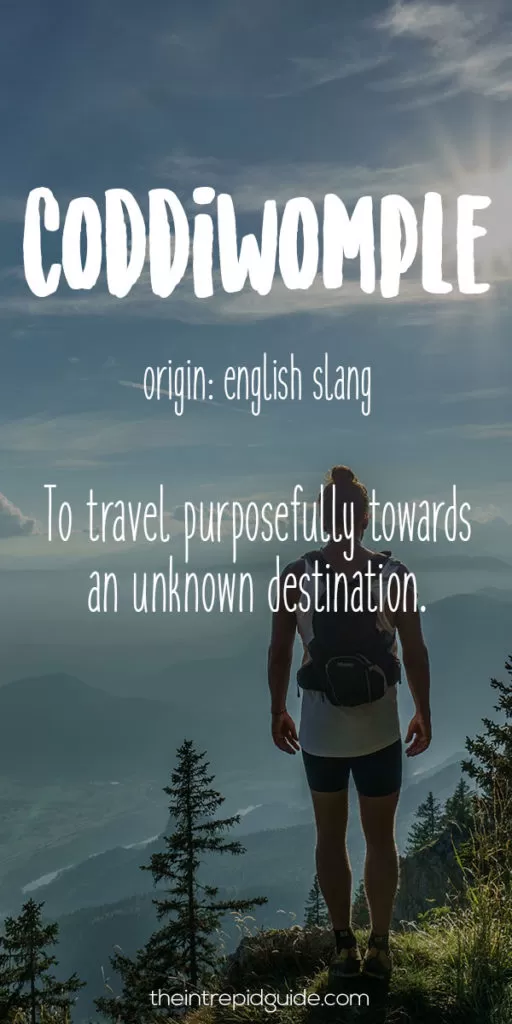
If you enjoyed these words, then let wordsmiths Stephen King, Mark Twain and the Dalai Lama transport you around the world with these inspirational travel quotes or start using some of the beautiful untranslatable words from other languages.
Want to know more about learning languages? Start here!
- 18 Unexpected Advantages & Health Benefits of Learning A Foreign Language
- The World’s Most Beautiful Untranslatable Words from Around the World: The Ultimate List A-Z
- 13 Ways to Seamlessly Integrate Language Learning into Your Daily Life
- What Type of Language Learner Are You? Your 4-Step Personalised Learning Plan
- 15 Top Language Learning Resources You Should Use
- 7 Reasons Why You Should Go on a Language Holiday
- 11 Life-Changing Reasons Why You Should Learn a Language
- How to Learn Your First Foreign Language in 8 Simple Steps: A Beginner’s Guide
- 42 beautiful Inspirational Quotes for Language Learners
- Language learning tips: 11 Polyglots Reveal The Secrets of Their Success
- Top 10 Best Ways to Learn a Language Better and Faster
- How to Learn Italian Before Your Trip
- Free Travel Phrase Guides
- How a ‘Potato’ improved my French Pronunciation
- How Many Languages are there in the World?
- Hilarious Idiomatic Expressions that Will Brighten Your Day
- 78 FREE Dictionaries to Learn a Language Fast [Free eBook Download]
- 22 KEY Travel Phrases That Will Transform Your Travels [Free Guide]
Over to you!
Which one of these travel words do you identify with the most? What others would you add? Let me know using the comments section below or join me on social media to start a conversation.
Thanks for reading and I hope you enjoyed this post.
Like what you see? Subscribe using the form below to have all of my posts delivered directly to your email.
Success! Now check your email to confirm your subscription.
There was an error submitting your subscription. Please try again.
Get my best language and travel tips FREE by email...
Subscribe to my newsletter to receive detailed travel guides, exclusive travel and language learning tips, priority access to giveaways and more!
I will never give away, trade or sell your email address. You can unsubscribe at any time.
Michele creates language learning guides and courses for travel. What separates her from other instructors is her ability to explain complex grammar in a no-nonsense, straightforward manner using her unique 80/20 method. Get her free guide 9 reasons you’re not fluent…YET & how to fix it! Planning a trip? Learn the local language with her 80/20 method for less than the cost of eating at a tourist trap restaurant Start learning today!
Italian Cognates & Loanwords: 17 Rules to Expand Your Vocabulary + FREE PDF
124 inspirational travel quotes that’ll make you want to travel in 2022, 12 comments.
Amazing list! One word I’d add is the Dutch word “gezellig” or “gezelligheid” – similarly to hygge, it describes a feeling of warmth/comfort/coziness/quaintness in certain settings or around certain people.
Thank you so much for sharing this Heba. So interesting to learn that Dutch has a similar word 🙂
This is such a fun article! Love these words and phrases!
Glad to hear it! Thank you so much, Eric 🙂
So many of these describe me or my feelings about seeing the world. But, if I had to pick one, the one that best describes how I choose my destinations would be “selcouth”. I so want to be a stranger in a strange land. To have my belief that there is no such thing as “normal” affirmed again and again and over again.
What a beautiful word. Thanks for sharing, Janet 🙂
Thanks Michele what a wonderful list of inspirational words. It nearly made me cry as I realised that I suffer from acute eleutheromania! ha
Thanks Juliana 🙂 I’m so glad you enjoyed this list. Eleutheromania? I know how you feel hehe
Unique list i must say – If you want to add one more word than check this !
In Hindi language (India) traveler called as “Musafir”
thanks Niraj 🙂
Thanks for sharing this! Really enjoyed it a lot ❤
Thanks Donah, I’m so glad you enjoyed it 😉
Leave a Comment Cancel Reply
Save my name, email, and website in this browser for the next time I comment.
This site uses Akismet to reduce spam. Learn how your comment data is processed .

If you don't know where you are , how do you know where you're going? Find out how well you know Italian grammar today!

- New? Start Here
- Try For Free
Other Words For Travel: 57 Creative Words That Inspire The Wanderer In You

The crystal clear waters of Antigua, the rich greenery of the Cliffs of Moher , and the vibrant blues in Morocco, our words can truly paint a picture of the world’s most incredible places .
When you’re itching to travel again, check out a few other words for travel used to describe what you’re feeling and write it in your travel journal .
Here are 57 creative travel words that will inspire the wanderer in you.
Wanderlust [won-der-lust] Noun | German A strong longing for or impulse toward wandering.
Eleutheromania [ell-uth-ero-may-nia] Noun | Greek A mania or frantic zeal for freedom.
Fernweh [feirn-veyh] Noun | German A deep desire to get away to a foreign place . Direct translation: “distance-sickness.”
Cockaigne [ko-keyn] Noun | French An imaginary land of luxury and idleness. This term comes from the French phrase pais de cocaigne , which means “the land of plenty.”
Quaquaversal [kwah-kwuh-VUR-sal] Adjective | Latin Everything is moving or happening in every direction, wanting to do and see all the things at once in a new place.
Dérive [derry-vay] Noun | French An unplanned journey where a traveler allows themselves to be guided by the landscape. Dérive means “drift,” so even if one drifts, they will end up on the right path.
Sonder [son-der] Verb | Unknown The realization that each person that passes through your life is living a life as complex as your own.
Heimweh [hime-vay] Noun | German A longing for home or a homesickness for foreign lands.
Hygge [hoo-ga] Noun | Danish A quality of coziness and comfortable friendliness that engenders a feeling of contentment or well-being.
Serendipity [ser-en-dip-ity] Noun | English The occurrence and development of events by chance in a happy or beneficial way.
Resfeber [race-fay-ber] Noun | Swedish The restless race of the traveler’s heart before the journey begins when anxiety and anticipation come together. Most often just before buying plane tickets, a mix between excitement and sickness.

Strikhedonia [strick-a-donia] Noun | Greek The joy of being able to say, “to hell with it”.
Musafir [myou-sa-fur] Noun | Urdu A traveler.
Vuslat [voos-lot] Noun | Turkish A reunion after being apart for some time, between oneself and one’s beloved.
Yūgen [you-gen] Noun | Japanese A profound awareness of the Universe that triggers emotional responses too deep and powerful for words.
Dépaysement [dé-pé-i-ze-man] Adjective | French The feeling of not being in one’s own country, like a fish out of water.
Gadabout [ga-du-bowt] Noun | English A person who travels often or to many different places.
Hireath [he-rith] Noun | Welsh A homesickness for a home which you cannot return, maybe one that never existed.
Sturmfrei [sh-turm-fry] Adjective | German The freedom of being alone and having the ability to do what you want.
Ecophobia [eco-phobia] Noun | English A fear or disliking of one’s home, wanting to be somewhere else.

Numinous [noo-muh-nuhs] Adjective | Latin The feeling of being in awe, a combination of both fear and fascination, by what is before you. Also refers to having a strong religious or spiritual quality, but can be used to describe feeling in awe for what is before you.
Schwellenangst [Sch-vell-enn-ong-st] Noun | German Schwelle (threshold) and angst (anxiety), come together to explain the feeling of crossing a threshold to start a new chapter. The feeling before you decide to set out on a new journey, of whether or not you are making the right decision.
Vagary [vay-ga-ree] Verb | Latin A whimsical or roaming journey. In Latin, vagārī means “to roam.”
Trouvaille [troo-vy] Noun | French A chance encounter on a journey, with something wonderful or unexpected.
Saudade [sou-dod] Noun | Portugese The state of nostalgia or longing for someone or someplace far away. Described as “The love that remains” after someone is gone.
Solivagant [soh-LIH-va-ghent] Adjective | Latin Hopeless wanderer. An adventurer who travels or wanders the globe solo. The Latin word solivagus , means lonely or solitary.
Sehnsucht [zane-zoo-kt] Noun | German A wistful longing and yearning in the heart for travels past and future, or a longing for a far-off place, but not one which one can identify at the moment.
Acatalepsy [Akk-at-a-lepsy] Noun | Greek In philosophy, it is incomprehensibility or the impossibility of comprehending or conceiving a thing.

Livsnjutare [livs-new-tara] Noun | Swedish A person who loves life deeply and lives it to the fullest. In Swedish, this word translates to “enjoyer of life.”
Commuovere [como-vary] Verb | Italian The ability to touch or move something to tears.
Yoko meshi [Yo-ko-meh-she] Noun | Japanese The stress of speaking a foreign language . In Japanese, “meshi” means “boiled rice” and “yoko” means “horizontal,” altogether it means “a meal eaten sideways.” “Yoko” also references the fact that Japanese is often written vertically when most languages are written horizontally.
Onism [own-ism] Noun | Danish Refers to the understanding and frustration that one will never be able to see it all, that one can only occupy one space at a time.
Flâneur [flan-air] Noun | French A person who strolls aimlessly, simply wandering to explore a new place and observe the life that is there.
Wayfarer [way-fair-er] Noun | English A traveler. Someone who lets the wind blow them wherever they are meant to go.
Hodophile [Ho-dough-phile] Adjective | Greek Someone who loves to travel, or “lover of the road.”
Novaturient [no-va-tur-ee-ent-a] Adjective | Latin A desire to change your life.
Coddiwomple [codd-ee-womp-el] Verb | English To travel with purpose to a destination, not concerned about how long the journey takes.
Selcouth [sell-cuth] Adjective | English Finding beauty in the unfamiliar or strange. Experiencing a new culture and place that feels different, but still fascinating and beautiful.
Eudaimoni [u-day-mon-ee-a] Noun | Greek The state of happiness one experiences while traveling.
Nefelibata [Neh-fell-ee-ba-ta] Noun | Portugese “Cloud-walker,” or an unconventional person. One who lives with their head in the clouds.
Vorfreude [for-fr-oy-da] Noun | German The excited feeling before you journey off somewhere new. Joyful, intense anticipation of all the exciting things to come.
Nemophilist [nee-mo-fil-ist] Noun | English A person who loves the forest in all its beauty and solitude.
Querencia [kay-ren-see-ya] Noun | Spanish The place where you feel the most at home.
Komorebi [ko-mo-reh-be] Noun | Japanese The sunlight that filters through the leaves of the trees.
Smultronställe [smul-trons-tell-ah] Noun | Swedish A special place that’s been discovered and returned to for relaxation or solace, “place of wild strawberries.”
Thalassophile [Thal-ass-o-feel] Noun | Greek A lover of the ocean.

Mångata [mon-ga-ta] Noun | Swedish The reflection of the moon on water.
Yu yi [you-yee] Noun | Mandarin The desire to see with fresh eyes and feel things just as intensely as you did when you were younger — before expectations, before memory, before words.
Photophile [fo-tow-feel] Noun | English or Greek A person who loves photography and light.
Waldeinsamkeit [Vall-d-on-zom-kite] Noun | German The feeling of being alone in the woods, in a positive, peaceful, relaxing way.
Meraki [meh-rah-kee] Adjective | Greek Doing something with soul, creativity, and love. Putting a part of yourself into what you’re doing.
Forelsket [fur-ell-skit] Adjective | Danish The euphoria you experience when you are first falling in love with a person or a place.
Peripatetic [perr-a-puh-tet-ik] Adjective | Greek Traveling from place to place, in particular working or based in various places for relatively short periods.
Sprachgefühl [sh-prock-guh-foo-l] Noun | German A person who has the ‘feel’ for a language.
Natsukashii [not-soo-ka-she] Adjective | Japanese A happy recollection of an event or memory in the past, but still missing it. Derived from the verb, natsuku , “to get used to and keep close; to become fond of.” The word used to describe wanting to keep something close, wanting to express fondness for something.
Ukiyo [oh-kee-yo] Adjective | Japanese “The floating world,” is a state of mind emphasizing living in the moment, detached from the difficulties of life.
Wabi-sabi [wah-be-sah-bee] Noun | Japanese In traditional Japanese aesthetics, wabi-sabi is a world view centered on the acceptance of transience and imperfection. Appreciating beauty that is “imperfect, impermanent, and incomplete” in nature.
Now that you’ve seen our list of other travel words that will inspire wanderlust , what did you think? Did we miss any? Leave us a comment below!
Leave a Reply Cancel reply
Your email address will not be published. Required fields are marked *
Save my name, email, and website in this browser for the next time I comment.
Related Posts:

Advertiser Disclosure
This site is part of an affiliate sales network and receives compensation for sending traffic to partner sites, such as CreditCards.com. This compensation may impact how and where links appear on this site. This site does not include all financial companies or all available financial offers. We appreciate your support!
Editorial Note: Opinions expressed here are the author’s alone, not those of any bank, credit card issuer, airlines or hotel chain, and have not been reviewed, approved or otherwise endorsed by any of these entities.

Travel Tips, Tricks, & Hacks — Straight To Your Inbox
No spam, only the goods. And we would never share your info with anyone.
- Bucket List
- Travel Tips
- Remote Work
- Gift Guides
Most Popular Stories
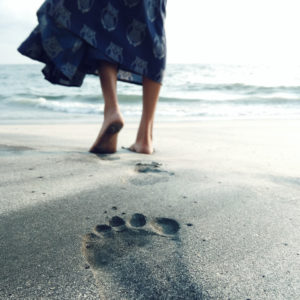
11 Proven Ways To Be A Responsible Traveler
We want to be responsible adults, responsible citizens, but what about responsible travelers? Are there things we can do that protect us and those around

7 Literary Cities for the Book Lover
We read books to learn new skills, understand our world better, and get lost in the incredible stories of authors from all walks of life.

14 Tips for Anyone Traveling Alone
In these challenging times, our schedules are out of whack and we are itching to explore. You may find that significant others and close friends

13 Unique Gift Ideas For Father’s Day
Our fathers hold a special place in our hearts. Whether you’re able to spend this Father’s Day with yours or not, we hope to help
Travel More, Remember Better.
- Journo Travel Journal
- Currency Converter
- Become An Insider
- Digital Nomad Secrets
- Remote Work Wealth Club
- Travel Hacker's Toolkit
- Travel Fund Challenge
- Insider Adventures
- Shop Travel Goods
- TERMS & CONDITIONS
- PRIVACY POLICY

29 travel words that describe travel better than you ever thought possible
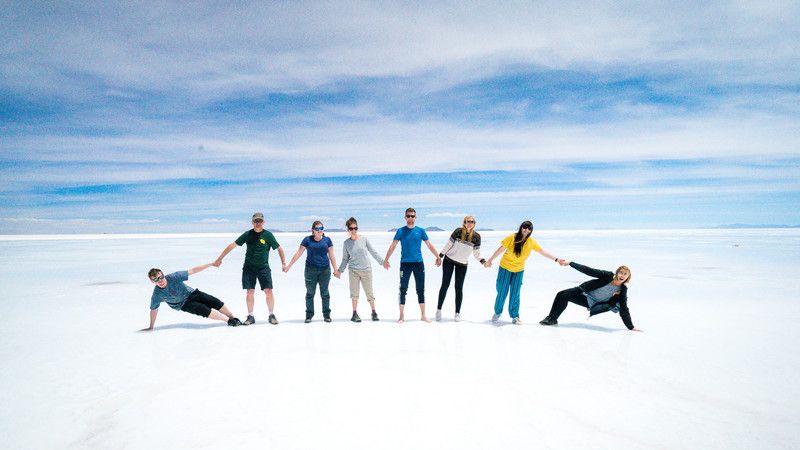
We love travelling and we love words, so imagine our surprise when we came across a massive treasure trove of travel words that describe how we feel before, during and after we travel better than anything we’ve ever seen, ever. In the history of everything.
These literary gems make ‘wanderlust’ look like an overrated show pony. Which it is. Travel brochures of the future will be littered with the likes of resfeber, eudaimonia and fernweh. At least, they will if we have anything to do with it.
TAKE IT AWAY, WORDS!
1. Trouvaille (n.)
Origin: French
Something lovely discovered by chance, like stumbling on a waterfall in Costa Rica .
2. Dérive (n.)
Origin: Latin/French
Lit. “drift”; a spontaneous journey where the traveller leaves their life behind for a time to let the spirit of the landscape and architecture attract and move them.
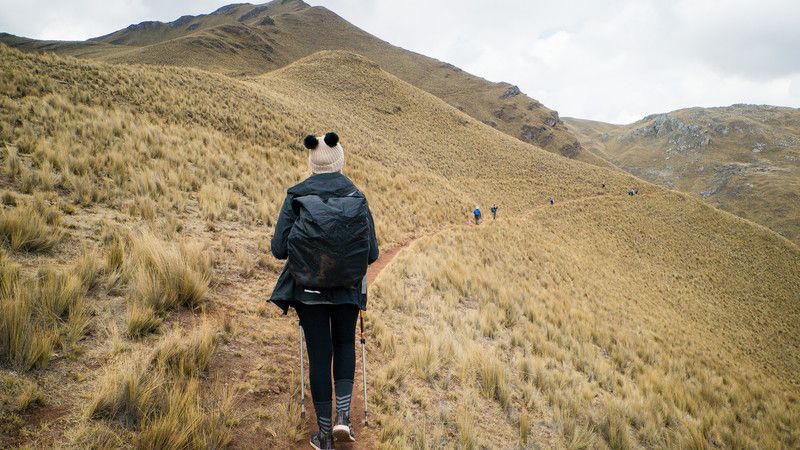
Dériving along the Quarry Trail. Photo by Stephen Parry.
DÉRIVE YOUR WAY AROUND SOUTH AMERICA ON A SMALL GROUP ADVENTURE NOW
3. Numinous (adj.)
Origin: Latin
Describing an experience that makes you fearful yet fascinated, awed yet attracted; the powerful, personal feeling of being overwhelmed and inspired. For example, you may have a numinous experience at Yosemite National Park , gazing up in wonder at El Capitan, or at a towering black bear.
4. Cockaigne (n.)
Origin: French, medieval trope
An imaginary land of luxury and idleness. Think House Tyrell of Highgarden, minus the poisoning.
5. Schwellenangst (n.)
Origin: German
Fear of embarking on something new; fear of crossing a threshold. But you know what? You should totally just go with it, and cross that threshold.

Getting all Strikhedonia in Jordan. Photo by tegan & nathan.
6. Strikhedonia (n.)
Origin: Greek
The pleasure of being able to say “to hell with it”. Try it now. Head to our North America page and shriek ‘Strikhedonia’ immediately before booking a trip.
7. Resfeber (n.)
Origin: Swedish
The restless race of the traveller’s heart before the journey begins when anxiety and anticipation are tangled together; a ‘travel fever’ that can manifest as an illness. The only cure is another grand adventure.
8. Vagary (n.)
An unpredictable instance, a wandering journey; a whimsical, wild or unusual idea, desire, or action.
ESCAPE THE VAGARIES OF LIFE ON, SAY, A SMALL GROUP ADVENTURE IN AFRICA

Embracing eudaimonia in Japan. Photo by Stephen Parry.
9. Eudaimonia (n.)
Lit. “human flourishing”; a contented state of being happy, healthy and prosperous. For example, you are pretty much guaranteed to experience eudaimonia as you watch the sun rise above the ocean in Playa del Carmen .
10. Quaquaversal (adj.)
Moving or happening in every direction instantaneously. It’s a little like when you think your passport’s in your sock drawer but it’s not and your flight’s leaving in three hours.
11. Novaturient (adj.)
Desiring or seeking powerful change in one’s life, behaviour, or situation.

Happily quaquaversal in Guatemala. Photo by Nathan Landers.
12. Sehnsucht (n.)
“The inconsolable longing in the human heart for we know now what”; a yearning for a far, familiar, non-earthly land one can identify as one’s home.
13. Ecophobia (n.)
Origin: English
A fear or dislike of one’s home.
14. Eleutheromania (n.)
An intense and irresistible desire for freedom. Pretty much describes every picture of the Greek Islands we’ve ever seen.

Livsnjutare in Italy. Photo by The Common Wanderer
15. Livsnjutare (n.)
One who loves life deeply and lives it to the extreme.
16. Solivagant (adj.)
Wandering alone. Although we think it’s better when you’re solivagant with a small group of other solivagant types.
17. Saudade (n.)
Origin: Portuguese
A nostalgic longing to be near again to something or someone that is distant or that has been loved and then lost; “the love that remains”. For example, I have a nostalgic longing for Turkish Delight right now.
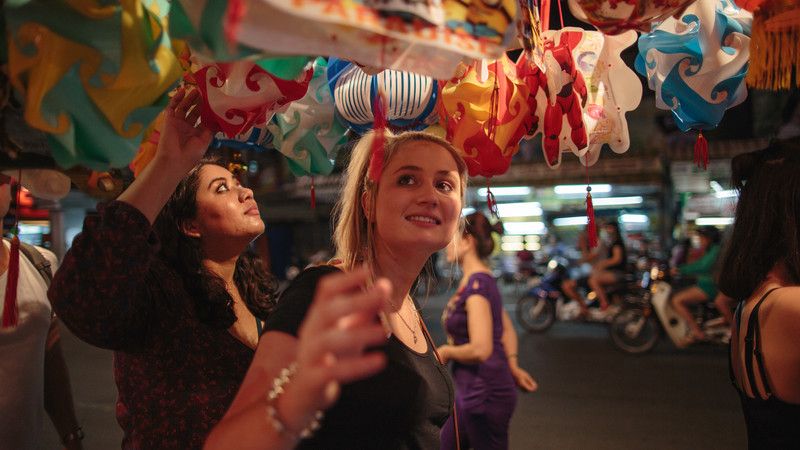
Having eunoia in Vietnam. Photo by Damien Raggatt.
18. Eunoia (n.)
Beautiful thinking; a good mind. My love of Turkish Delight proves I have eunoia (or does it?).
19. Sturmfrei (adj.)
Origin: Germany
Lit. “stormfree”; the freedom of not being watched by a parent or superior; being alone at a place and having the ability to do what you want. Like eating 18 waffles in a day in Belgium .
20. Yoko meshi (n.)
Origin: Japan
The peculiar stress of speaking a foreign language (literally means ‘a meal eaten sideways’). If you’ve ever tried to order ramen in one of Tokyo’s laneway bars, you’ll know exactly what this means.
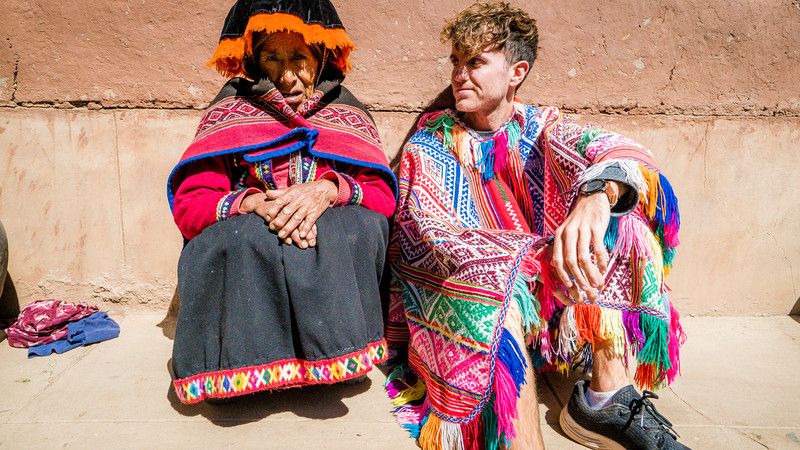
Selcouth outfits in the Sacred Valley. Photo by Stephen Parry.
21. Selcouth (adj.)
Unfamiliar, rare, strange, and yet marvellous, like adding cheese to your coffee in Colombia .
22. Fernweh (n.)
An ache for distance places; the craving for travel; the opposite of homesickness. Also one of Instagram’s most popular hashtags.
23. Yūgen (n.)
An awareness of the universe that triggers emotional responses too deep and mysterious for words.
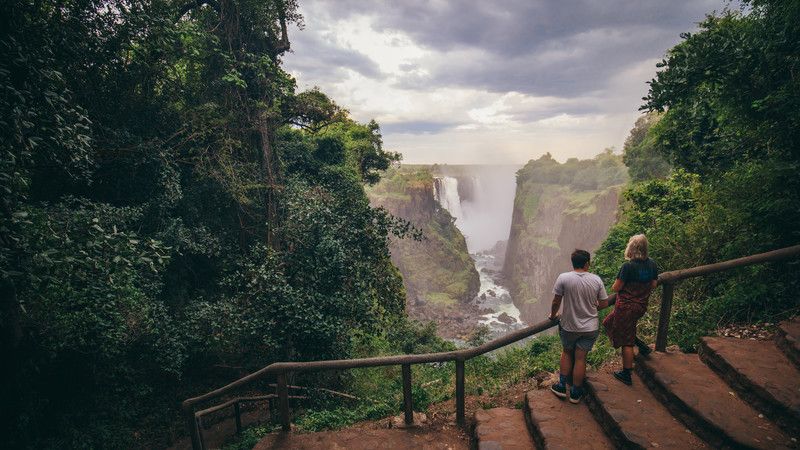
It’s hard not to feel yūgen in a place like this. Photo by Damien Raggatt.
24. Commuovere (v.)
Origin: Italy
Only in Italy would you find such a sensual word meaning to stir, to touch, to move to tears. Possibly while eating a giant slice of thin-crust pizza.
SUBSCRIBE TO INTREPID’S NEWSLETTER FOR TRAVEL TIPS, COMPETITIONS, GIVEAWAYS & MORE
25. Peregrinate (v.)
To wander from place to place. AKA travel. It’s the very definition. Think of a falcon and BE THE FALCON by embracing its love of flying immediately.
26. Nemophilist (n.)
One who is fond of forests; a haunter of the woods. Not like a spooky ghost; more like a guy with a top-knot who enjoys spending his weekends writing poetry under an old oak tree and drinking black coffee from a vintage thermos.
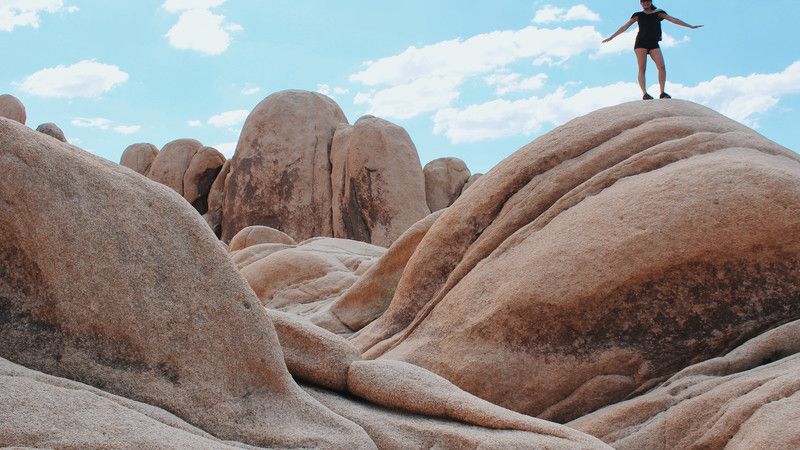
Peripatetic over a rock. photo by Phoebe Escott-Kenny.
27. Peripatetic (n.)
A person who spends his or her time wandering. There’s nothing pathetic about being peripatetic – we embrace the wanderers wholeheartedly.
GET PERIPATETIC IN THE MIDDLE EAST. EXPLORE OUR RANGE OF ADVENTURES NOW
28. Hireath (n.)
Origin: Welsh
A homesickness for a home that you can’t return to, a home that perhaps never was. Which is kind of a downer, but a good excuse to keep travelling.
29. Gadabout (n.)
A person who travels often, and for pleasure. Something we should all aspire to, right? Be professional gadabouters? Update your LinkedIn profiles now, gang.
Now you’ve got the lingo, USE IT! Impress your friends with your newfound vocabulary on a small group adventure with Intrepid .
Feeling inspired?
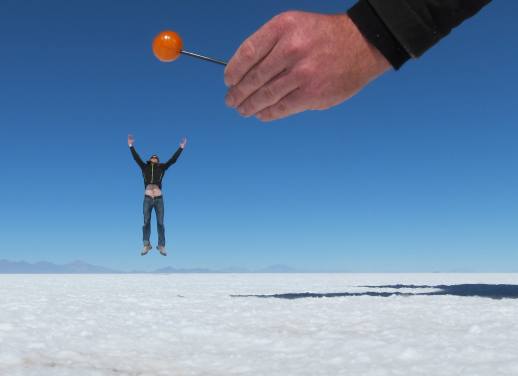
Intrepid Travel
Intrepid has been leading small group adventures for over 30 years. We’re a certified B Corp, which means we want to be the best travel company not just in the world, but for the world. To create positive change through the joy of travel. You can read our latest adventures right here.
You might also like
The 7 best places to go on a..., galapagos or madagascar which unique destination should be..., travelling to chile here’s the best time to..., 10 reasons to visit samoa, the 10 antarctica questions you want answered, australia or new zealand where to go on..., 10 epic spots to stop at on your..., small group travel vs coach tours: which style..., costa rica or mexico: which country to check..., 7 of the best destinations for solo travellers..., machu picchu or chichen itza which historical site....
Travel Words: Top 30 Unusual Words with Beautiful Meanings
Honestly speaking, I am an avid traveler. When I quit my regular full-time job, the first thought that ever came in my mind is to go and see the world and find travel words that I can use to describe my experiences.
Luckily, I have managed to make it my career and a source of income. As a travel blogger, I think, I talk, and obviously share my stories through this blog and share very important information to my valuable followers. The moments I travel and mingle with different kinds of people , I just cannot express what I want to say. Hence, I have come across several unusual travel words with beautiful meanings so I can further expand my travel vocabulary, and of course, to quench my feeling of anxiety.
I love different languages, and I love traveling. When I encounter a treasure of unusual words with beautiful meanings and synonyms of wanderlust, you can feel my excitement as these creative travel words describe our feelings during, before, and after visiting a new destination.
Just like a photo is not enough to describe the feeling when you stand on the tip of a creek, the term ‘wanderlust’ is not enough to express our feelings when we desperately need to go for the next adventure.
These foreign words with beautiful meanings are really the gems collected from different languages spoken across the world. From Swedish to Japanese, Greek to Latin, it is sure that travel brochures will be loaded with unusual travel words to describe travel experience in the future like livsnjutare, resfeber, and so on.
Every language has its own variation to explain and define your travel experience and your wanderlust. The word ‘wanderlust’ refers to a strong desire or impulse to wander, travel, and see the world.
When I started doing my homework and searching for those adjectives for travel words , the more I went appealed to them as they could, somehow, convey our emotions and feelings the way better than what English could not do. So, without further ado, listed here is the list of appealing and most creative travel words for travel lovers.
NOTE: All of the photos in this post are pinnable, just hover, and you can pin it right away for inspiration later!
Table of Contents
1. Fernweh (n.) Far sickness. An urge to travel even stronger than wanderlust.
2. Resfeber (n.) The tangled feelings of fear and excitement before a journey begins.
3. Dérive (v.) To drift unplanned, led only by the landscape and architecture around you.
4. Schwellenangst (n.) Fear of crossing a threshold to embark on something new.
5. Sehnsucht (n.) A wistful longing and yearning in the heart for travels that have been and travels to come.
Words that describe travel
6. Eleutheromania (n.) The intense desire for freedom.
7. Livsnjutare (n.) Someone who loves life deeply and lives it to the extreme.
8. Yūgen (n.) An awareness of the universe that triggers emotional responses too deep and mysterious for words.
9. Sonder (n.) The realization every person is living their own vivid life .
10. Onism (n.) Awareness of how little of the world you’ll experience.
Words to describe travel experience
11. Novaturient (adj.) A desire to change and alter your life.
12. Selcouth (adj.) Strange and uncommon, the way you see things when you travel.
13. Eudaimonia (n.) The contented happy stated we feel when we travel.
14. Coddiwomple (v.) To travel purposefully towards a vague destination.
15. Flâneur (n.) Someone who strolls aimlessly but enjoyable, observing life and the surroundings.
Creative travel words
16. Vorfreude (n.) The joyful, intense anticipation that comes from imagining future pleasures.
17. Peregrinate (v.) Travel or wander around from place to place.
18. Querencia (n.) The place where you are your most authentic self, from where strength is drawn, where you feel at home.
19. Sturmfrei (adj.) The freedom of being alone, the ability to do what you want.
20. Nefelibata (n.) “Cloud-Walker.” One who lives in the clouds of their own imagination or who does not obey the conventions of society, literature, or art. An unconventional person.
Foreign words with beautiful meanings
21. Vagary (n.) A wandering or roaming journey.
22. Trouvaille (n.) Something lovely found by chance.
23. Numinous (adj.) Being both fearful and awed by what you see before you.
24. Strikhedonia (n.) The joy of being able to say “the hell with it.”
25. Hygge (n.) The cozy feeling of relaxing with friends while having a meal or drinks.
Word for a travel lover
26. Waldeinsamkeit (n.) The feeling of being alone in the woods.
27. Meraki (adj.) Putting a part of yourself into what you’re doing.
28. Forelsket (adj.) The euphoria you experience when you are first falling in love.
29. Yu yi The desire to feel things just as intensely as you did when you were younger — before expectations, before memory, before words.
30. Solivagant (n.) Wandering alone.
- Pinterest 24.4K

Evan Kristine a.k.a Pretty Wild World is a professional travel blogger with over 10 years of experience in content creation. Originally from the Philippines, she's been living in Finland for 15+ years working as a chef and entrepreneur in Tampere, Finland.
She's an expert in Finland travel and explores the country often sharing her insights and tips in this blog and social medias. She also splits her free time either going for weekend getaways in Europe or galavanting to different European destinations on her holidays. All her useful Europe travel guides are also in this blog!
Evan Kristine is also the food blogger behind at The Kitchen Abroad and on her free time, she enjoys decorating her 75m2 apartment and shares her experience over at Solía Avenue .
A true master of her own life and despite her busy schedule juggling life as a chef, blogger, and entrepreneur, she still finds time to read 50+ books a year and indulge in several hobbies like hiking, working out, yoga, and painting.
1 thought on “Travel Words: Top 30 Unusual Words with Beautiful Meanings”
Thanks, for a very nice article and the most useful information to your site 30 Unusual words with beautiful meanings thanks to searing information.
Comments are closed.
Sharing is Caring
Help spread the word. You're awesome for doing it!
Beyond Wanderlust: 30 Words Every Traveler Should Know
By emily petsko | jun 13, 2022, 5:14 pm edt.

For those who travel, wanderlust is a familiar feeling. It’s that nagging voice in your head that says, “Yes, you do need to book that flight,” even if your bank account says otherwise. Regardless of how many passport covers this word may adorn, it doesn’t begin to cover the spectrum of emotions and experiences that can be revealed through the act of travel. Here are 30 travel words from around the world to keep in your back pocket as you're exploring this summer.
From the Latin vagari , meaning “to wander,” this 16th-century word originally meant a wandering journey . Nowadays, "vagaries" refer to unpredictable or erratic situations, but that doesn’t mean the old sense of the word can’t be invoked from time to time.
2. Selcouth
An Old English word that refers to something that’s both strange and marvelous . It's a great way to sum up those seemingly indescribable moments spent in an unfamiliar land.
Who hasn’t felt a strong desire to be somewhere—anywhere—other than where you currently are? That’s fernweh , or “ farsickness ," and this German word has been described as a cousin of wanderlust, another German loan word.
4. Dépaysement
Anyone who has traveled abroad will recognize this feeling. The French word refers to the sense of disorientation that often sets in when you step outside your comfort zone, such as when you leave your home country.
Another gift from the French, this word literally translates to “drift,” but thanks to some mid-20th century French philosophers, it can also refer to a spontaneous trip , completely free of plans, in which you let your surroundings guide you.
6. Peregrinate
To peregrinate is to travel from place to place, especially on foot. Its Latin root, peregrinus (meaning “foreign”), is also where the peregrine falcon (literally “ pilgrim falcon ”) gets its name.
7. Perambulate
Similar to peregrinate, this word essentially means to travel over or through an area by foot. So instead of saying that you’ll be walking around London, you can say you’ll be perambulating the city’s streets—much more sophisticated.
8. Numinous
This English word could appropriately be used to describe the Grand Canyon or the Northern Lights. Something numinous is awe-inspiring and mysterious. It's difficult to understand from a rational perspective, which gives it a spiritual or unearthly quality.
9. Peripatetic
The young and the restless will want to incorporate this word into their lexicon. The adjective refers to those who are constantly moving from place to place—in other words, a nomadic existence. It stems from the Greek word peripatein (“to walk up and down”), which was originally associated with Aristotle and the shaded walkways near his school (or, according to legend, his habit of pacing back and forth during lectures).
10. Waldeinsamkeit
You’re alone in a forest. It’s peaceful. The sun is filtering through the trees and there’s a light breeze. That’s waldeinsamkeit . (Literally "forest solitude." And yes, Germans have all the best travel words.)
11. Shinrin-Yoku
In a similar vein, this Japanese word means “ forest bathing ,” and it's considered a form of natural medicine and stress reliever. There are now forest bathing clubs around the world, but you can try it out for yourself on your next camping trip. Take deep breaths, close your eyes, and take in the smells and sounds of the forest. Simple.
12. Solivagant
In those moments when you just want to run away from your responsibilities, you may consider becoming a solivagant : a solo wanderer .
13. Yoko Meshi
This Japanese phrase literally translates to “ a meal eaten sideways ,” which is an apt way to describe the awkwardness of speaking in a foreign language that you haven’t quite mastered, especially over dinner.
14. Resfeber
You just booked your flight. Your heart starts racing. You’re a little nervous about your journey, but mostly you just can’t wait to get going. The anticipation, anxiety, and excitement you get before a big trip is all rolled into one word— resfeber —and you can thank the Swedes for it.
15. Flâneur
Taken from the French flâner , meaning to stroll or saunter , this word describes someone who has no particular plans or place they need to be. They merely stroll around the city at a leisurely pace, taking in the sights and enjoying the day as it unfolds.
16. Gadabout
This could be construed as the traditional English equivalent of flâneur . Likely stemming from the Middle English verb gadden , meaning “to wander without a specific aim or purpose,” a gadabout is one who frequently travels from place to place for the sheer fun of it. In other words: a modern-day backpacker.
17. Hiraeth
Sometimes, no matter how amazing your vacation may be, you just want to come home to your bed and cats. This Welsh word sums up the deep yearning for home that can strike without warning. As Gillian Thomas put it in an interview with the BBC , “Home sickness is too weak. You feel hiraeth , which is a longing of the soul to come home to be safe.”
This Japanese word can be taken to mean “graceful elegance” or “subtle mystery,” but it’s much more than that. It's when the beauty of the universe is felt most profoundly, awakening an emotional response that goes beyond words.
19. Schwellenangst
Translating to “ threshold anxiety ,” this German word sums up the fears that are present before you enter somewhere new—like a theater or an intimidating cafe—and by extension going anywhere unfamiliar. The fear of crossing a threshold is normal, even among the most adventurous of travelers—but it often leads to the most unforgettable experiences.
20. Commuovere
Have you ever seen something so beautiful it made you cry? That’s commuovere in action. The Italian word describes the feeling of being moved, touched, or stirred by something you witness or experience.
This Danish word refers to a warm feeling of contentedness and coziness, as well as the acknowledgment of that feeling. Although not explicitly related to this term, author Kurt Vonnegut summed up the idea behind this concept quite nicely when he said, “I urge you to please notice when you are happy, and exclaim or murmur or think at some point, 'If this isn't nice, I don't know what is.'"
22. Hanyauku
Here's one for those who have a beach trip coming up. Taken from Kwangali, a language spoken in Namibia, hanyauku is the act of tiptoeing across hot sand.
23. Smultronställe

This Swedish word translates to something along the lines of “place of wild strawberries,” but its metaphorical meaning is something along the lines of a "happy place." Whether it’s a hidden overlook of the city or your favorite vacation spot that hasn’t been “discovered” yet, smultronställe refers to those semi-secret places you return to time and time again because they’re special and personal to you.
24. Dustsceawung
This Old English word describes what might happen when you visit a place like Pompeii or a ghost town. While reflecting on past civilizations, you realize that everything will eventually turn to dust. A cheery thought.
25. Vacilando
In some Spanish dialects, the word vacilando describes someone who travels with a vague destination in mind but has no real incentive to get there. In other words, the journey is more important than the destination. As John Steinbeck described it in his travelogue Travels With Charley : “It does not mean vacillating at all. If one is vacilando , he is going somewhere, but doesn't greatly care whether or not he gets there, although he has direction. My friend Jack Wagner has often, in Mexico, assumed this state of being. Let us say we wanted to walk in the streets of Mexico city but not at random. We would choose some article almost certain not to exist there and then diligently try to find it.”
26. Lehitkalev
Backpackers and budget travelers, this one is for you: The Hebrew word lehitkalev translates to “dog it” and means to deal with uncomfortable living or travel arrangements.
27. Komorebi
This beautiful Japanese word is a good one to save for a sunny day spent in the woods. Komorebi translates to “sunshine filtering through the leaves.” Does it get any lovelier than that?
This Balinese word refers to something that is simultaneously chaotic and joyful. It isn’t specifically a travel word, but it does seem to fit the feelings that are often awakened by travel.
29. Trouvaille
Translating to a “lucky find,” this French word can be applied to that cool cafe, flower-lined street, or quirky craft store that you stumbled upon by chance. Indeed, these are the moments that make travel worthwhile.
30. Ullassa
Just in case you needed another reason to plan that trip to Yosemite, here's one last word for nature lovers. The Sanskrit word ullassa refers to the feelings of pleasantness that come from observing natural beauty in all its glory.
A version of this story ran in 2018; it has been updated for 2022.

27 Creative Travel Words That Describe Travel

This post contains affiliate links. Read our disclosure for more information.
Scroll down for 27 of the ultimate creative travel words that perfectly describe travel!
Think back on your travel memories and try to conjure up that travel feeling with words? It’s hard to describe right? How can you explain the feeling of pure awe after waking up at 4am to hike up a mountain and watch a breath-taking sunrise?
Some travel experiences are that good they are almost indescribable. But, we gave it our best shot, here is a list of creative travel related words. 27 of the most powerful travel words to describe how travel feels. Feel free to use any words from the list in your next inspirational Instagram caption.
A List Of 27 Creative Travel Words
1. hozhoni .
Definition: An American Indian Navajo word meaning a feeling of being filled with beauty and balance.
Although this is a list of creative travel words in English, there are words included that came from other cultures. Hozhoni describes the feeling that everything is right where it needs to be. This travel related word is exactly how I feel when I’m gazing out at another sunset on a tropical beach. I’m right where I need to be.
Definition: A beautiful descriptive Arabic-derived word, related to destiny.
Encountering something by chance but it seems like it was meant to be, then it could be kismet , your destiny. Who hasn’t experienced this when traveling, when you meet someone unexpected but connect immediately.
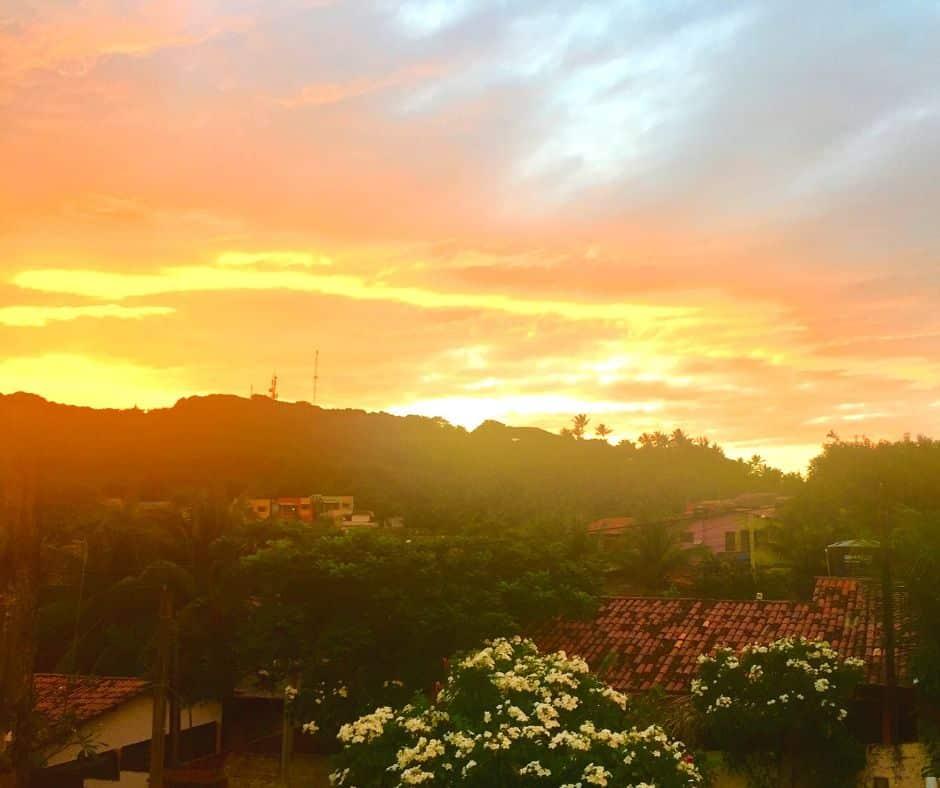
3. Numinous
Definition : A word to describe the sense of a supernatural presence around you.
A perfect creative travel word that describes the awe inspiring places that travel takes you to. Like when you’re stargazing in a desert. You just know that there is something out there, watching over us.
4. Clinophilia
Definition: An individual with a passion for beds.
After months of hostel dorms and thin, aged mattresses. I think any backpacker would proclaim a love for good quality, comfortable beds.
Related: 6 Things I Hate About Backpacking
Definition: A short, romantic interlude.
Is there anything more intense than a travel romance? A few short days of utter bliss before you have to say your goodbyes, never to see them again apart from in your memories.
Definition: Gaia theory is who postulate that the whole biosphere may be alive in that the Earth’s life forms are themselves responsible for regulating the conditions that make.
I’m obsessed with Gaia theory, that our planet is a breathing organ. I think about it constantly while traveling. How can we not love the beautiful woman that is the Earth and how she creates this creative art in nature?
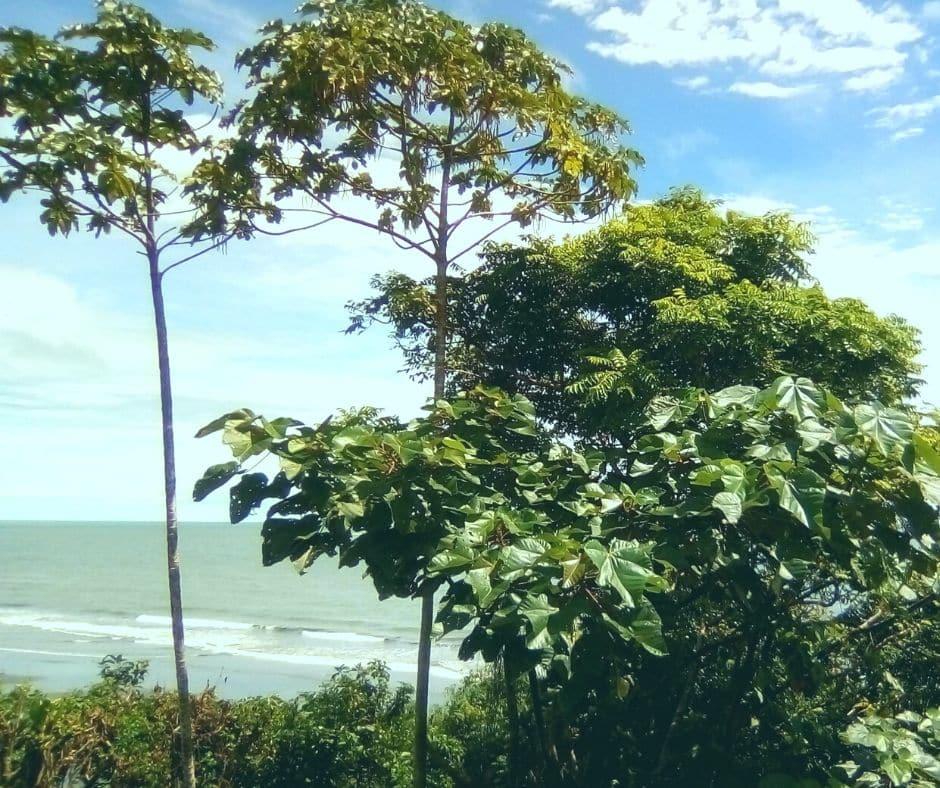
Definition: A feeling of homesickness for somewhere you’ve never even visited.
This solemn travel word escapes me to be honest, I’m too busy feeling homesick for the places I’ve already left and may never return to.
Related: Why You Should Quit Your Job And Travel
8. Harbinger
Definition: A person or thing that announces or signals the approach of another.
This travel word originally described a person who provided lodging, later one who went ahead to find lodgings for an army or for a nobleman and his retinue, hence, a herald (mid 16th century). Now, I like to think it gives a creative travel word to that feeling of being on the edge of something great.
Definition : When you finally realise how big the world is and how small you are in comparison.
Finally, a travel associated word to explain how insignificant we are as backpackers. Pointlessly trying to experience as much as this vast planet as we can, whilst knowing we’ll never achieve our dream.
10. Neophile
Definition: Not to be confused with necrophilia, a neophile is someone who loves all thnovel experiences.
Anyone who loves travel loves the new. Routine is for non-backpackers while true adventurers crave novel experiences.
Related: My Digital Nomad Story
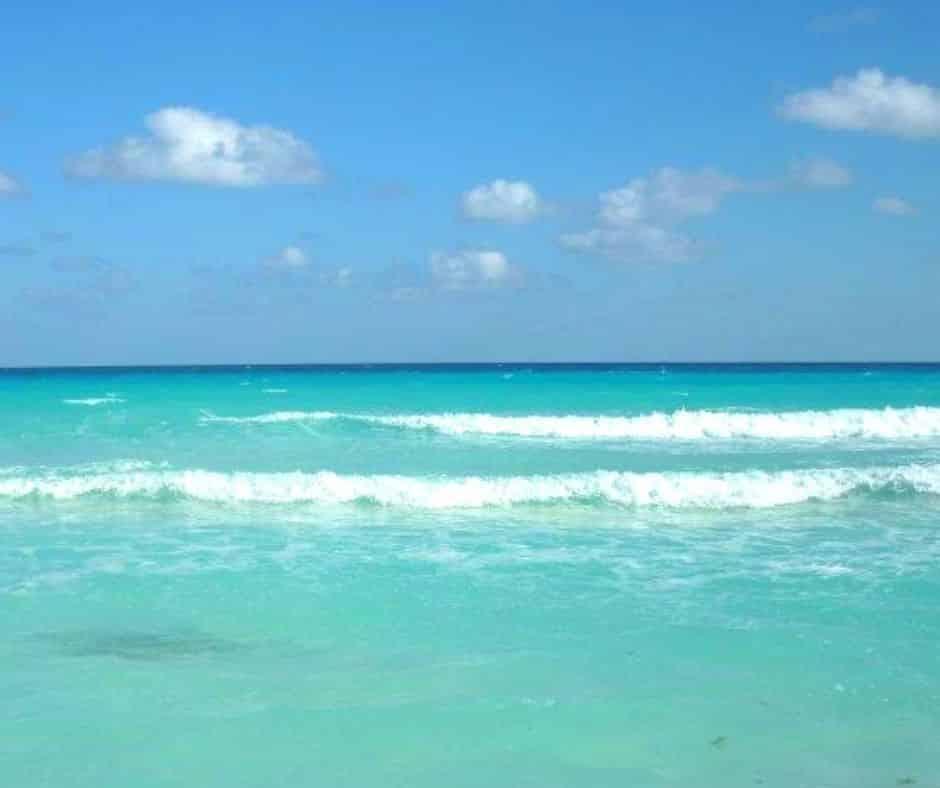
11. Eudaimonia
Definition: A Greek word meaning a content state of being happy and healthy.
Every since I became a digital nomad over 3 years ago, even through the hard times I am feeling eudaimonia.
12. Waldeinsamkeit
Definition: A Germanic word to describe the feeling of being alone in a forest.
Although I dislike being lonely as a long-term backpacker. Sometimes there is nothing better than a solitary hike or stroll through peaceful nature.
13. Mimeomia
Definition: The frustration of knowing how easily you fit into a stereotype.
This creative travel word is perfect for anyone who’s ever stayed in a hostel or two. Backpackers all over the world unfortunately fit neatly into the stereotype of their home country. Aussies loving Vegemite and British loving their cups of tea. Sigh…
Related: 10 Eco-Friendly Toiletries Every Backpacker Needs
14. Midding
Definition: A perfect travel word to describe the pleasure of observing a social gathering but not actually being in the midst of it.
I love relaxing in a hammock, watching fellow backpackers sharing a beer and chatting about their days. A feeling like no other.
Definition: An infectious enthusiasm.
What’s not to love about meeting positive travelers who possess a zest for life you just don’t see in daily life back home? These kind of Ioer people spark up an excitement for you to get the most out of travel.
16. Mamblory
Definition: The feeling of arriving home whilst you in the midst of traveling.
As much as travel is amazing, sometimes we all crave that just arrived home feeling. Where everything is familiar and you are surrounded by people who know you. No small talk required.
17. Gemütlichkeit
Definition : A Germanic word to describe a feeling of natural friendliness.
There’s something about hostels and the people they attract. Hostel-lodgers are a friendly bunch, you’re always guaranteed to make a new mate every day. (Admittedly there are foreign words associated with travel in this list, please forgive!)

18. Heliophilous
Definition: A feeling of being attracted to the sunlight.
Calling all sunseekers! If you’re a cold-blooded human like me, you probably identify as an heliophile.
19. Eleutheromania
Definition: The constant desire to be free.
This is less a word about travel and more an instinctive human feeling. We were born to be nomads, so return to your instincts and travel.
20. Morosophy
Definition: A foolish pretence of wisdom
The more I travel, the more I learn how little I know. Travel is eye-opening and teaches you to remain humble and open to new ideas, because, you know nothing.
Related: 25 Best Self-Help Books For Women
Definition: A wild, unplanned adventure where the traveler lets spontaneity decide the path.
Those days where you don’t have an itinerary to visit 3 churches, 4 castles, hike up a mountain and kayak back down it are often the best kind of days. Travel SHOULD be spontaneous . Let destiny decide.
22. Gest Or Geste
Definition: 13th century word describing one last adventure
How many times have you heard yourself saying ‘This is my last big trip before I settle down’ and then before you know it, you’re planning one final ‘Gest’! Now, though, at least you have the perfect travel related word to describe your last gest!
23. Theosophy
Definition: An immediate divine illumination.
This travel associated word is for those epiphany moments on travel adventures when the answer to a problem that you left at home, finally comes to you. This happens because travel helps you to get to know who you are, and what you want.
24. Ilotriophagy
Definition: The craving for strange foods.
Anyone for fried cockroaches from a Thai street stall? Food makes up a massive part of the travel experience. So, this list of travel words had to include a couple words about food.

25. Novaturient
Definition: A beautiful Latin word for when you a desiring a change in your life.
This is often the reason many of us begin to travel. We want to change our lives to become more authentic to ourselves. An inspirational travel word to use in your next Instagram caption 😉
26. Integrum
Definition: complete in latin.
A travel word to describe something no true traveler ever feels – Complete. Once wanderlust takes hold, you’ll never feel complete again, always yearning for the next adventure.
27. Saudades
Definition: an ebbing feeling of missing someone..
This is a Portuguese word with no translation in another language. It’s beautiful, it combines longing and missing someone in a pure way.
Simply, indescribable. Just like travel.
If you enjoyed this list of creative travel words, make sure you pin it for later! Or have I missed any word that perfectly describes travel? Leave a comment below and let me know.
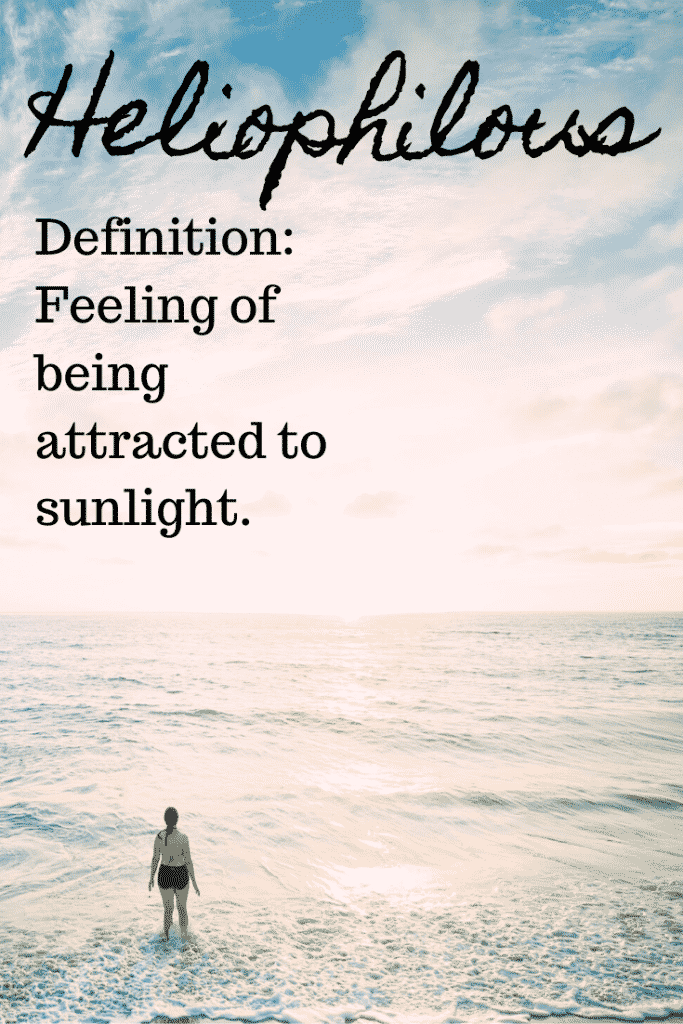
Related Posts

Why fitness is the key to motivation and success

I Don’t Know What To Do With My Life
Subscribe to the newsletter.
Stay up to date on what’s happening here at Your Green Grass Proejct
- Work With Us
- Blogging Resources
- Trip Planning

- Destinations
- Solo Travel
- Couples Travel
- Family Travel
- Expat Tips + Stories
- Expat Interview Series
- Inspiration + Musings
Get Inspired
42 inspiring travel words (besides wanderlust).
We’ve all tried to find words to describe a travel experience, and sometimes nothing seems to quite explain it right.
I love discovering new ways to express myself, and over the years I’ve slowly collected the below list of creative travel words that are either not commonly used in English or are from another language or are words that describe travel emotions we go through much better.

If you’re a bit of a Pinterest addict like me you might have heard some of these alternative words for travel before, but hopefully, some are new.
After all, we could all use some other words for wanderlust!
These are just a few of my favourite words associated with travel.
As someone who writes about travel all the time, I love finding new words for travel and to describe travel experiences.

Everyone knows wanderlust, but are there words for wanderlust in other languages, or even just another word for travel too?
I first wrote this post back in 2015 with just 24 new travel words that I had found over the course of the year while I was living abroad in Spain .
Since then I’ve come across many more so I’ve updated it to include the new ones!
Each travel word definition has been written in my own words, with a photo of my own, and examples from my own experiences.
I hope that you’re able to learn some new words for travel (that aren’t wanderlust but are other words for wanderlust!) and be a bit inspired by them like I have been!
The unusual travel words you need to know:
Resfeber (n), origin – swedish.
The tangled feelings of fear and excitement before a journey begins.
This is one of the most popular words associated with travel and all over Pinterest!
We’ve all felt this. That jolt in your heart when you book your flights, or when you tell your family and friends what you’re about to do.
Now that feeling has a word you can use!
This feeling is for new travellers and old alike. I still feel it when I embark on new journeys, especially before I moved to Spain to teach English .

Fernweh (n)
Origin: german.
Farsickness. An urge to travel even stronger than wanderlust.
That feeling you get when you’ve been home too long and you ache to be out into the world again.
Sometimes you don’t know where you want to be, but you know that it’s away. Sometimes you know where, and you want to get there as quickly as possible. This is that feeling.
I’ve had a serious case of the post travel blues , and felt this to the extreme!
It’s one of my favourite words related to travel, since it really does describe how I’ve felt on so many different occasions.

Origin: French
To drift unplanned, led only by the landscape and architecture around you.
The idea that even if you drift you will end up falling into a path that is lined out for you by your surroundings. This could describe life overall, but it also describes small journeys.
When you’re wandering through a new city and you just happen to wander on a path that takes you to great discoveries.
This happened to me in Stockholm, when I went to the archipelago and saw absolutely nothing of the city, and again in Lisbon where we made no plans and just let the city show us where to go.
This is a travel word I’ve seen less often, probably because many of us love to plan our trips, tick things off a bucket list and not miss out, but sometimes if you just allow yourself to wander you’ll find the most unexpected and best things of your trip.

Numinous (adj)
Origin: latin.
Feeling both fearful and awed by what is before you.
I don’t know why but there’s something intriguing about finding Latin words for travel. Maybe it’s because it’s not a language we really use anymore, but it forms the basis for so much of ours now.
There are quite a lot of words for travelling that are Latin based, or that we can turn into a word associated with travel.
Firstly referring to divinity, but I think it is a wonderful way to describe how you feel when you see things that are so amazing you’re not sure whether to be amazed or realise your own insignificance in the world. It’s the magical feeling when you see something truly awe-inspiring, be it the scenery before you, or just something amazing falls into place when you’re travelling.
Visiting the rice terraces of China was that moment for me.

Schwellenangst (n)
Fear of crossing a threshold to embark on something new.
Ok so this German word isn’t traditionally a word related to travel but it could be used as one of those words to describe a travel experience now.
Maybe referring literally to a door, but a great way to explain that feeling you might have before deciding to set out on a new journey.
Did you make the right decision? Those questioning feelings now have a name. I thought I might have made a mistake in moving to Spain but really, it was just this feeling of fearing something new.

Strikhedonia (n)
Origin: greek.
The joy of being able to say “to hell with it”.
A popular Greek word associated with travel!
This is what you can do when you decide to quit everything, stop making excuses , and explore the world.
Something you say when you book your flights or you decide to do something on your journey that you wouldn’t normally do. You’re travelling, who cares right?!
Now you have a word related to travel for that awesome feeling.

A wandering or roaming journey.
An unpredictable idea, desire or action.
Travelling without knowing the destination, and it doesn’t matter.
I got completely lost with friends in the Alpujarras in southern Spain , and it didn’t matter one bit. This is another Latin word for travel that we should definitely bring back into our vocabulary!

Sehnsucht (n)
A wistful longing and yearning in the heart for travels that have been and travels to come.
When you’re not travelling this can be an overwhelming feeling, or when you think about the travel you’ve done and you wish you could relive it all over again.
This feeling is why you need to make the most of every moment! It’s why the more you travel, the harder it gets .
This is one of those other words for wanderlust that we could use instead, although not as easy to say I admit!

Eleutheromania (n)
The intense desire for freedom.
This is probably one of the closest words to explaining wanderlust in different languages. People often say that travelling makes them feel free, and eleutheromania is the desire for this feeling.
We seem to find freedom in other cultures, or just in being outside the norm, and when you stop travelling, you crave it again.
I think this is what led me to make the crazy decision to move abroad for the first time at 16 !
Definitely one of my favourite other words for wanderlust and a firm favourite on Pinterest when you look for travel words.

Livsnjutare (n)
Origin: swedish.
Someone who loves life deeply and lives it to the extreme.
Someone I try to be. One that takes chances, takes risks, and always chooses the adventure .
This other word for travel could be used in place for wanderluster, nomad or traveller. We could all stand to appreciate what we have and make the most of life, and so this is an inspirational travel word!

Sturmfrei (adj)
The freedom of being alone and having the ability to do what you want.
Travelling solo can be especially rewarding because it’s all up to you. You can make your travel journey exactly how you want it to be. No compromises, no one else to please. Just you and the road.
You might meet amazing people when you travel , but being on your own is real freedom.
This isn’t traditionally a word associated with travel either, but instead with being in a place alone or without supervision from your parents, so like when they leave you at home for the weekend as a teenager.
But isn’t that slightly giddy feeling of being able to do whatever we want similar to how we feel when we travel? No one’s watching, so you can be who you want and let go!

Solivagant (adj)
Wandering alone.
The kind of traveller many of us are. Solo travel has exploded so much that it is no longer out of the ordinary.
As most solo travellers know, you’re not alone for long as you make your friends on the road . But sometimes, it’s the wandering journey you take alone that is the most rewarding.
This is a word for someone that travels a lot or someone on a solo journey.
It’s definitely a popular description amongst travel bloggers too!

Saudade (n)
Origin: portuguese.
Nostalgia and the love that remains. A desire to be near to something or someone distant.
This is a travel word for after your journey ends and you just want to be back where you were, or with the people you met on the way. It’s the feeling that’s left after it all ends.
It’s what makes you want to return to your favourite place , even if you know it might not be the same. Part of the definition of this travel word is also about looking forward positively to the future!

Origin: Japanese
An awareness of the universe that triggers emotional responses too deep and mysterious for words.
That feeling when it’s dark and you look at the stars and your wonder for all the things in the world wells up inside of you.
I felt like this when I saw the northern lights in Iceland during the wintertime . It was the most amazing experience and if I had any word to describe it then this would be it!

Acatalepsy (n)
The idea that it is impossible to truly comprehend anything.
Acatalepsy is a word that we can associate with travel.
Can you truly understand your travels, the things you see, and how they affect you?
Sometimes it takes time to process how travel might have changed your life, and sometimes we never truly know why we take the journeys we do and what they’ll mean for us until afterward.
We can reflect on amazing travel moments , but never fully know their impact until much later!

Origin: In doubt
The realisation every person is living their own vivid life.
I stumbled across this word and fell in love with the meaning, as it’s something I sometimes think about. How each person’s life is as full of different connections, memories, and possibilities as my own.
Although research tells me Sonder may not be a real word, the concept is beautiful and I think it can be a word closely associated with travel.
When we’re travelling we realise how everyone is living their own different and vivid life, sometimes close to our own and sometimes on a completely other level!

Trouvaille (n)
Something lovely found by chance.
A street, cafe, an experience stumbled upon by luck.
I love when this happens in my travels. A moment drinking coffee under a lemon tree in the south of Spain , a garden or a lake or a swimming hole discovered with no one else around.
I love finding alternative words to describe a travel experience, and this is a great one! It’s so important to appreciate the little things, especially when we come across them in an unexpected way.

Origin: Danish
The cosy feeling you get while you’re enjoying the good things in life with friends.
When you’re out for a meal with people you met during your travels , and you feel content and right.
That feeling that you’re right where you’re meant to be.
This isn’t traditionally associated with travel and has become much more popular in recent years as a word describing a Danish way of living.
This word is now much more popular and well known than when I first wrote this post when I was an expat ! When I first came across it in 2015 I’d never heard of it before at all!
And I love that.
To me, it sounded like a word to describe the experiences I’d had while travelling, when I’d met an amazing group of people and we were enjoying a shared meal together at the end of an awesome day of exploring.

Origin: The Dictionary of Obscure Sorrows – John Koenig
Awareness of how little of the world you’ll experience.
When you’re staring at the departures board and wishing you could go to all of those places at once.
It’s possible that the more you travel the harder it gets , and this is one of the reasons why. You can live abroad to try and travel more, but there’s still only so much to be seen.
This travel word is a little different in that it isn’t from another language but instead from a book.
However, it is another word that describes travel in that you’ll never reach the end of your exploration.
Travelling just makes you realise how much of the world there is still to see, and fuels your wanderlust even more!

Novaturient (adj)
A desire to change and alter your life.
This word for travel lovers describes the feeling that pushes you to travel.
When you know you’re not living the life you could be and there must be more out there for you.
It’s time to go and find it . I’ve never regretted travelling or moving abroad , even alone . It’s this knowledge and this feeling that makes me keep doing it!

Yoko meshi (n)
The stress of speaking a foreign language.
Literally translates to, “a meal eaten sideways”, and how I felt about speaking Spanish when I moved to Spain!
When people would tell me to “just start speaking” and it’s really not that easy.
Can you really learn a language just by moving abroad ? Maybe not, but you can try. Just be prepared for this feeling that you now have a travel word to describe!

Selcouth (adj)
Origin: old english.
Strange and uncommon, the way you see things when you travel.
Everything seems different and foreign, and it’s a good thing. We travel to seek out the things we don’t have at home .
This is another word that we can make into a word for travel, even though it doesn’t traditionally mean that.
It is one I could kind of see myself using to describe the odd things I’ve come across while travelling!

Eudaimonia (n)
The contented happy state.
That bursting feeling in your chest when you travel when it all feels right. The constant change in travel often puts our senses in overdrive and the highs are higher than ever.
Learning to dive on the Great Barrier Reef was one of the best experiences of my life, and I won’t soon forget this feeling.
This Greek word is actually related to a philosophy that has been translated as meaning happiness or well-being, but I think that it’s the way we often feel when we travel, so it’s a word for travel lovers too!

Coddiwomple (v)
Origin: english slang.
To travel purposefully towards a vague destination.
When you have an idea of where you’re going, but it doesn’t matter how long it takes to get there.
The road doesn’t have to be a straight one. In fact, sometimes it’s better when it’s not .
I love this travel word because I can imagine an old English gentleman discussing his latest “coddiwomple”!

Flâneur (n)
Someone who strolls aimlessly but enjoyably, observing life and the surroundings.
This is what I love to do when I get to a new city, or through the countryside .
When we travel we seem to have fewer worries in general, allowing us to place ourselves more IN the moment.
Plus walking a city and people watching is a great way to learn about a new culture! It’s also a lovely way to spend a romantic date !

Nefelibata (n)
“Cloud-Walker”. One who lives in the clouds of their own imagination, or who does not obey the conventions of society, literature or art. An unconventional person.
Probably the way people have described me on occasion!
For those who don’t travel, or don’t know how to begin, the idea can seem fantastical and unconventional.
But these days there are so many people breaking free of “cubicle” life and working as digital nomads with the world as their office, working different travel jobs , saving to move abroad , or taking a year off to travel. Phil and I now work for ourselves and travel as we like (with kids!).
It may be unconventional to some, but for the rest of us, it’s life.

Brumous (adj.)
Origin: english.
Of gray skies and winter days, filled with heavy clouds or fog.
This may be a travel word you only use if you travel to the United Kingdom, especially in Scotland (it’s not the weather though, you just need the right clothes !)
It’s well known as the land of rainy days and fog, and I’ve experienced first hand.
However, I visited the Isle of Skye , one of the beautiful places in the UK, in the wind and rain and it was no less amazing. So really, I don’t mind if I have to describe some of my travels this way.

Vorfreude (n)
The joyful, intense anticipation that comes from imagining future pleasures.
When we book a new trip and in the time before we go, this is the way we often feel.
We can think about the people we’ll meet , and all the exciting things we’re going to experience.
I love watching movies about places I want to go and then imagining myself there too, which is basically this feeling!

Commuovere (v)
Origin: italian.
Heartwarming, something that stirs and moves you.
I love finding new words that don’t translate into English. This one is a prime example of a word that is difficult to explain, but the best I can do is heartwarming, something that moves you to tears in a good way.
Maybe you’re wondering how this relates to travel… crying?!
Well, I’ve definitely shed a few tears over travel, from the good to the bad, and I’ve definitely been moved and awed by the things that I’ve seen.

Peregrinate (v)
Travel or wander around from place to place.
A pretty simple word that we could use to describe our travels and yet it seems to have fallen out of favour. “We peregrinated around the Scottish Highlands .” It works right?!

Nemophilist (n)
Origin: english.
A haunter of woods, one who loves the forest and it’s beauty and solitude.
There’s something magical about walking through the woods, and even more so in a foreign country.
When I lived in Canada on a study abroad one of my favourite things to do was wander through the huge forests there. So much so my new friends and I once got lost for 8 hours…

Querencia (n)
Origin: spanish.
The place where you are your most authentic self, from where strength is drawn, where you feel at home.
I’m so excited to have a Spanish word, after learning Spanish while giving in Spain.
This word comes is related to the verb querer , which is to want or desire.
It can be associated with bullfighting, as it is also the name for the area of the bullring where the bull takes its stand, but I like to think of it more as a travel word, of course.

Komorebi (n)
The sunlight that filters through the leaves of trees.
If you’re on those forest walks when you’re travelling like above, then this is hopefully what you’ll see!
Another unusual word that doesn’t translate directly into an English word, but one that describes a beautiful sight.

Hireath (n)
Origin: welsh.
A homesickness for a home to which you cannot return, a home which maybe never was. The nostalgia, the yearning, the grief for the lost places of your past.
Homesickness isn’t quite the right translation for this beautiful Welsh word, it’s more than that. It’s one of my favourites though as I often reminisce about my previous travels and times in my life.
It’s strange to think back to times like our babymoon in France , and how we had no idea what was ahead of us. As much as I love our life now I sometimes wish to live those times again!

Smultronställe (n)
Literally “place of wild strawberries” a special place discovered, treasured, returned to for solace and relaxation; a personal idyll free from stress or sadness.
When I went to Luleå in the north of Sweden in summer we discovered wild strawberries growing on an island in the middle of the archipelago.
That’s what I think of when I see this word because what better place to be? These are often the kind of places we discover when we travel.

Mångata (n)
The reflection of the moon on the water.
Something I only seem to see or see the most when I’m travelling.
It reminds me of being by the sea, of the Full Moon Party in Thailand and of the early darkness when I lived in the Gold Coast, Australia, where this photo was taken!

Photophile (n)
Origin: possibly english or greek.
A person who loves photography and light.
This one is a little in dispute. It could originate from the word for organisms that love light, “photophilic”, but have been adjusted to fit with photographers too.
Or, it could come from the same origins as “hodophile” in that “phos” means light and “philos” means friends. I can’t find concrete evidence either way, but that’s the beauty of finding new words!
Photophiles carry their camera wherever they go, and many travellers now do the same.
I used to have an old point and shoot camera, and then I stuck to mostly iPhone before finally getting a “proper” camera. I’ve been testing it out in Spain at places like the Alhambra , and in Portugal around the streets of Lisbon .
But there was nothing quite like the midnight sun in Luleå last summer.

Dépaysement (adj.)
Feeling that comes from not being in one’s own country. Being out of your element, a fish out of water.
Living abroad has often made me feel like this , especially in the early days.
Sometimes we can idealise moving abroad and not realise how it will affect us , but eventually, a place will feel like home, even if it’s a different concept of home than before.

Hodophile (adj.)
“Lover of roads”. One who loves to travel.
Does this travel word really need an explanation?
There’s something magical about setting out on a trip with the open road before you. My absolute favourite was driving across the Nullabor in Australia! It’s one of the longest straight roads in the world.

Cockaigne (n)
Origin: an english word with french origin.
Imaginary land of luxury and idleness; the land of plenty.
This word originates from a medieval myth, a land of plenty where society’s restrictions are defined and the harshness of life in medieval times does not exist.
Although we’re not in this time anymore, we could use this word to describe our ideal land of plenty now. One where people are not persecuted for their religion or race, one where equality reigns supreme, maybe one we will all be able to travel to one day?

Wayfarer (n)
Someone who travels, especially on foot.
Maybe not as unusual a word as some on this list, and one that you may already know. I considered making this my blog name when I started blogging !
It’s a word that makes me think of older times when people travelled in a more whimsical way that had nothing to do with social media. You went wherever the wind took you!

Absquatulate (v)
Origin: north american english.
To leave without saying goodbye.
Invented in the US in the 1830s as a word that sounded vaguely Latin, to make it seem older.
It means to make off with someone or something without announcing you’re going! The way many of us might feel we want to leave for our travels. No fuss, please!

Have you heard of these travel words and would you use them? Do you think they explain things better than we usually can?
If you liked them, pin them!
Sonja - Migrating Miss
Sonja is from New Zealand but now lives in Scotland with her husband and two little boys, after having lived in 5 other countries along the way including the USA, Australia, Canada, and Spain. Travelling has always been her passion and she has now made it her full-time job and worked in the industry for the last 8 years. She shares her living abroad experiences and best tips to make your travel experiences the best they can be!
55 thoughts on “ 42 Inspiring Travel Words (Besides Wanderlust) ”
Amazing list! Looking to impress a number of my fellow travelers with this list now!
I swear some of them can be worked in to normal conversation! Others may be a little different but it’s so nice to have words that describe those travel feelings.
Sonja, that’s a great one!! Sharing it all over now:) love all the words and the idea of such a post:)
Thanks so much Monika! I have been sitting on all of these for a long time. They are saved all over my phone and written in personal journals, so I thought it was time to share!
I’d add: ecdemomania <3
That’s a good one I didn’t have! I’ll have to add it to the next list 🙂
I absolutely love these! I so often find myself having a hard time describing my deep seeded need to get away, always be moving, or travel solo. The long pause and struggle I have to express the answer to “why” when asked about my journeys can feel very awkwardly isolating, and not in the good way of standing alone on a mountain top or wandering an empty desert. I like to feel all alone in the world sometimes but other times, I want to be a part of something, a community, and understood. Seeing words like you have dug up to share in this post do just that. The fact that there are words in so many languages to describe exactly how I feel, means that I am not really alone, even when I have been on a road with no signs of humans for days!
Thanks Bethany! You are definitely not alone! I too loved discovering that there are words that actually describe how I feel when I can’t even really describe it myself. It means that there are other’s that have felt like this, and so much so that whole words have been created for it. I hope you find a way to explain how you feel and why you want travel and movement in your life. All the best x
Wow, I love these, thank-you!
Thanks! I’ve been collecting them for awhile, I love finding out about different words that we can use to explain our feelings, not that I would end up actually saying most of these!
Your list of words is awesome! But Germans actually don’t use “sturmfrei” in the context of traveling. It’s being said when your parents have left home for one or more nights so you can invite friends and party. 😉 it’s not a description about how we feel, it’s more a description of the situation itself. I definitely like your interpretation – hopefully it’ll become a part of travelers diaries.
Thanks Josi! It’s good to know the real meaning behind the word. I like the idea of trying to adapt it as a travel word too, so fingers crossed others see it like you too! 🙂
Thank you Sonja, This was a fun list. I doubt I will be able to work them into my vocabulary. I don’t think I can even pronounce most of them. Perhaps it would be fun to have a follow up post that included the pronunciation of each. You clearly have comfort with many languages. I envy that. Happy Trails to You, Michelle
Haha no they are not exactly everyday words! I think a few may be easier than others, but anyone actually understanding them is the problem! I love the idea that sometimes other languages can explain things better than English though, and I do find it fascinating in learning Spanish that things are not always a direct translation. The use of words can be so different! Happy travels to you too!
I loved reading these words! Thanks for finding them and creating the pin for them! What an excellent way to express our traveling emotions!
Thanks so much! You’re most welcome :). I have to admit I don’t use them a whole lot in my blog writing, but I just love them!
I love your words. Thank you.
Thanks for your comment!
This is a great list, I enjoyed it! Thanks. However, I just want to correct a minor detail. While I was reading along, I got surprised by the word “onism” as I am Danish and has never in my life heard of this word before, whereas “hygge”, the other Danish word on your list, is very commonly used. I looked up “onism” on the internet and found that it comes from The Dictionary of Obscure Sorrows which is a compendium of invented words written by John Koenig. I suppose it is made as a combination between the words “monism” (Greek?) and “onanism” (English?), so there is nothing Danish about its origin (at least not that I could find) x
Thanks Ida! I tried to research everything as much as I could (hours in fact haha) and I’m not sure how I ended up with that one! I’ll take another look but I suspect I’ll find the same as you and change it! Thanks again 🙂 x
I loved reading this post and found myself relating to almost every one! ? Thought the accompanying photos were perfect too. It’s given me inspiration for a new travel/art journal …
Thanks so much! It makes me really happy to hear I’ve given someone else inspiration 🙂 🙂
Wow !! Love them.. I was actually looking for a new word which would describe my travel agency. I think I should be able to come up with something using the list of words, u’ve mentioned in this post.
That’s great I’m glad they’re able to help you! Best of luck.
Thnx a lot for giving this sort of knowledge about the words who r completely new to me. Keep posting these words along with their meaning it helps a lot.
Thanks dea… It perfectely helped me to explain my inner feelings , but some words have difficulty in pronouncing . I wrote down every word in ma notebook for future description pf my Travel Thanks alot yaar <3
Hi, I would like to know if there is a word for this feeling describes below,
‘I feel at home when I’m travelling, but when I’m actually at home, I feel weird.
I don’t think wanderlust is the word, can you please help me?
I’m sorry I’m not sure! I only know these words and the other post I did about unusual travel words. It’s possible something exists though and I’ll keep an eye out since I love finding unusual words 🙂
Was looking for travel words from Greek origin, and have found it, thanks so much. Love your page as well, maybe we see each other on the road sometime 🙂
Thanks so much! I’m glad they’re useful 🙂
So who copied who? 🙂 https://www.theintrepidguide.com/travel-words-that-describe-wanderlust-perfectly/#.WjWJFCPMwmo
Great list!
OMG!!!! Thanks for bringing this to my attention!!! I can’t believe how similar some of the wording of this is!!! 🙁 🙁 🙁 I first published this in early 2016.
Thank you for compiling such a great list! I may be incorrect, but shouldn’t ‘Vagary’ be listed as a noun rather than a verb?
It appears it’s listed as a noun now to mean something unpredictable but it came from the verb to wander!
So great to see Eleutheromania included in the list, passionate about freedom!
One of my favourites!
This is a very impressive, creative and original list. Will revisit many times. Thanks for sharing 🙂
42? How did anyone even get to this comment section? I had to scroll for 2 days just to get to leave this comment. This is really outrageous. 7 would have been plenty. We are internet users here, not book readers.
Two days well spent I’m sure 😉
When one is confined within the four corners of the home, because of the pandemic, this list is very encouraging! Thank you Sonja, many of the words here describes various emotions I have already experienced. Two more weeks of lockdown, I have time to do a project, finding my travel photos that match the words :).
Love this post! I’m feeling so much fernweh at the moment <3
Same here!!
Thank you so much for these! At this time of great challenges in the world, it is comforting to know that I can read the wonderful words you have compiled to capture all the positive feelings travel evokes. Slainte!
I couldn’t find all of these travel words anywhere else. You know, I am gonna bookmark it right away. Thanks for sharing these travel phrases. I love it. Looking forward to reading more of these informative articles 🙂
Amazing read. Needed these for getting a travel domain name. Bookmarked this post already. It’s very useful. Looking forward to reading more of these awesome travel blogs.
Ha ha what a random post! Learned so many new words from this, excited to casually *drop* them into my conversations
Haha so many! I mean, half I think I’ve never said but it’s fun to learn their meaning and find words that can describe the things we feel and think when we travel x
Wonderful article, it must have taken a lot of work to put together so many words 🙂
Thanks! I collected them over a few years and then reworded in my own words :).
Nice article. Thanks for sharing these travel phrases. Looking forward to reading more of these informative articles .
Stunning article, loved to read. will read more for sure…
Was very helpful article
I love this list of inspiring words for travel! I’m always looking for new ways to explore new places and this list has given me some great ideas.
Leave a Reply Cancel reply
Your email address will not be published. Required fields are marked *
Save my name, email, and website in this browser for the next time I comment.
Sign up for tips, info, and travel antics delivered once a month to your inbox. Go on.

- Ask RAI / Inspiration / Quotes / Travel / World Languages
ᐅ TRAVEL LOVER: 100 Unique + Creative Travel Words From Around the World
Published January 18, 2024 · Updated January 18, 2024
Get inspiration from around the world with these catchy and creative travel words in other languages >> A list of the best words for travel lovers. ❤️
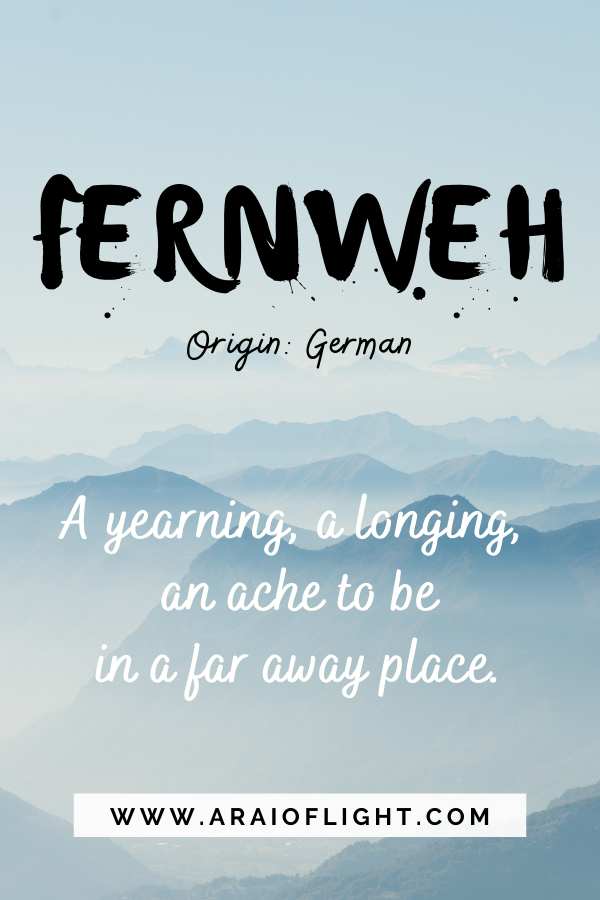
Travel. It can leave you speechless and then turn you into a storyteller . The experience has a tendency to make us feel a plethora of emotions and when you’re reliving those times there may not be an accurate word to describe the travel experience , the adventure, the magic, the moments, or the way you felt. This loss of words is more common than you may think. Especially since the English language is limited when it comes to words related to travel or words to describe a person who loves to travel. Sure, you could use the popular travel word wanderlust, but it is also often way overused (have you noticed every new travel influencer and their dog jumping on the wanderlust-wagon?). Rather use these wanderlust synonyms below instead.
Wanderlust (n.) Origin: German Definition: A strong, innate, impulse or desire to travel the world
How do you explain your deep-seated need to get away or the desire to always be on the move and live a nomad existence? Is there a travel-related word to describe the mix of excitement and anxiety one feels on starting a new journey? Are there other creative words for travellers to articulate the curiosity to experience other cultures , other exotic foods , other landscapes, and other ways of life around the world? How can you express the profound feeling of awe you feel on the awareness of the vastness and beauty of the universe when observing the stars? Or the thrill of discovering a hidden waterfall during a hike up a mountain to catch the last sunset?
Fortunately, there are foreign words from other cultures and different languages to voice these special moments. These beautiful travel words , often with no English equivalent, are meant to educate and inspire you. And perhaps even assist with your next clever travel caption for the gram or pinterest.
>> Must Read:
- More foreign language guides: How to say Hello , Thank You , Goodbye , and Love in different languages around the world
- Fun list: Best travel questions , the world’s best flags , or these road trip questions
- The top 50 travel songs to add to your playlist
- Why is travel important? Find 10 key benefits of travelling the world
- Get inspired: Short quotes about traveling and funny travel quotes
What do you call someone who loves travel?
Hodophile — one who loves to travel
Studies have shown that people who spend their money on experiences rather than material stuff, such as travel, tend to be more open minded, creative, carefree, and happier in their life. *searches for my next flight out.
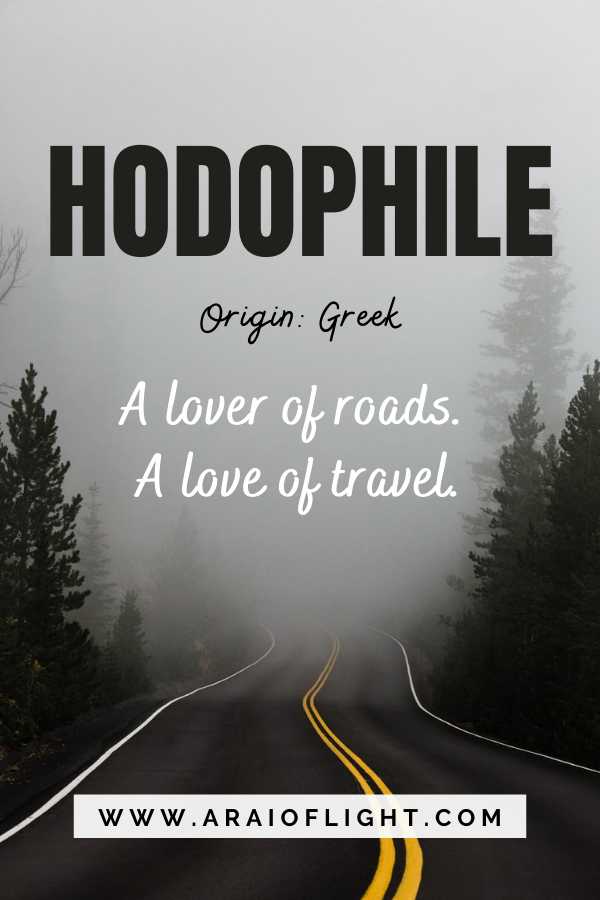
Travel the Word: Unique + Beautiful Travel Words from Other languages of the World
A handful of my favourite words associated with travel. Save a couple of your own favorites from this list , bookmark this page, and add them to your vocabulary before your next adventure! Describe your explorations with these foreign words about travel taken from different languages around the world . Ready. Let’s go….
v. = verb n. = noun adj. = adjective
In alphabetical order….
Absquatulate (v.)
to leave without saying goodbye.
Origin: North America My close friends know that I absquatulate. Like, a lot. So no surprise there, when the urge to pack your things and just disappear shows up… with no time to say goodbye. Continue reading to find more creative words for travelers.
Coddiwomple (v.)
To travel purposefully towards a strange location.
Origin: English slang Some days you wander with no plan at all, seeing where the day will take you. And other days, you coddiwomple. I do like the sound of this unusual word related to travel.
Cosmopolitan (v./adj.)
A citizen of the world or at home all over the world.
Origin: English This definition varies, depending on whether you use the word as a noun or an adjective. Even though, the origins of these creative travel words are from English, it can be traced back to Pythagoras, who first used the Greek word kosmos as a way to describe the order of the universe. Travellers naturally feel at home in the world and the saying, “home is where the heart is” applies perfectly.

Dérive (n.)
To drift unplanned on a spontaneous journey, leaving everyday life behind and guided by the scenery, architecture, and landscapes.
Origin: French One of my favourite words to describe my travel experience. This untranslatable travel term perfectly describes spontaneous exploration. There is no strict plan, instead going with the flow away from the beaten beaten path and towards unplanned discoveries such as a beautiful sunset .
Dromomania (n.)
An uncontrollable and irrational impulse or psychological urge to wander or travel without purpose.
Origin: Greek Dromomania, also referred to as travelling fugue or vagabond neurosis, is seen as an abnormal and uncontrollable psychological impulse to wander. It comes from a combination of the Greek words dromos and mania to diagnose those with this condition to spontaneously abandon their everyday lives to travel long distances, even taking up different identities and occupations. This irrational desire stems from a strong emotional and physical need to constantly be travelling and having new experiences. It also often involves sacrificing security, relationships, and careers in the hunt for these experiences. Fantasies about exploring occupy their thoughts and dreams. I guess, I have a serious undiagnosed case of the dromomania.
Ecophobia (n.)
A fear or distaste of home.
Origin: Greek Now, this unusual word for travel can be used in the literal sense. Or, as I prefer, to describe when you can’t stop thinking about a different place. A place, other than where you live. Say, an exotic tropical island ?
Eleutheromania (n.)
The intense and insatiable desire for freedom.
Origin: Greek When asked why I pursue travel so much, my response often involves an insatiable yearning for freedom, amongst the many other reasons for exploring the globe. Yes, I’ve since learned that freedom comes from within as much (or even more) than your external circumstances. However, the very act of travelling does leave me feeling free and eleutheromania perfectly describes the desire for this feeling. For sure, one of my favourite words associated with travel holidays and tourism.
Eudaimonia (v.)
A state of feeling happy and content whilst travelling.
Origin: Greek This is one of my favourite words associated with travel because it such an apt description of the journey. The joy of wandering, the excitement of new discoveries, the contented state of living the dream…. and everything feels perfectly alright. Even when things go wrong .
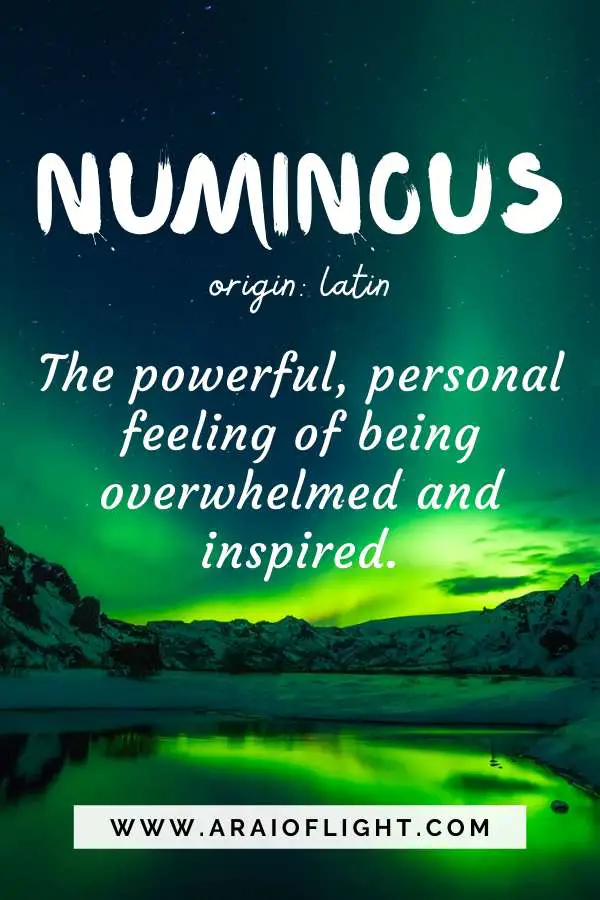
Exulansis (n.)
When you give up trying to talk about an experience because none are able to relate to it.
Origin: Dictionary of Obscure Sorrows How many times have you given up trying to explain yourself or something you’ve done because those around you are just not on the same wavelength as you and are unable to relate or even understand. Yeah, I know this feeling all too well and exulansis is one of the most unique travel words I’ve come across to articulate this.
Fernweh (n.)
Distance sickness. A yearning, a longing, an ache to be elsewhere. To be in a far away place.
Origin: German Not as popular or overused as wanderlust, this catchy travel word has gained much traction over the past few years. This German word is often described as feeling homesick for a far away place. A place you’ve never been to before. This urge to travel is strong and fernweh, a synonym for wanderlust, describes the aching desire to be far away from home.
Flâneur (n.)
Someone who strolls aimlessly and enjoyably, observing life and their surroundings.
Origin: French One of the best words describing travel lovers, flâneur derives from the French flâner, meaning to stroll or saunter. My favourite kind of days when travelling do not have a plan nor involve a requirement to be in a particular place. It is simply wandering around aimlessly at a comfortable pace, observing the local life and appreciating the day as it unfolds. Yes, I am a big time flâneur.
Forelsket (adj.)
The overwhelming euphoric-feeling that takes place at the early stages of falling in love.
Origin: Norwegian
Gadabout (n.)
A habitual pleasure-seeker who moves about restlessly or aimlessly.
Origin: Old Norse It is used to refer to a person who gads or walks idly about. A person who’s constantly on the move, restlessly seeking amusement along the way.
Gallivant (v.)
to roam without a plan… to wander about, seeking pleasure or diversion.
Origin: German No list of creative travel words is complete without including gallivant. This word is used to describe the action of going to many different places as a form of enjoyment while completely forgetting or disregarding other things you should be doing. As an example, using travel as a form of escape, something that many a lover of travel is guilty of.
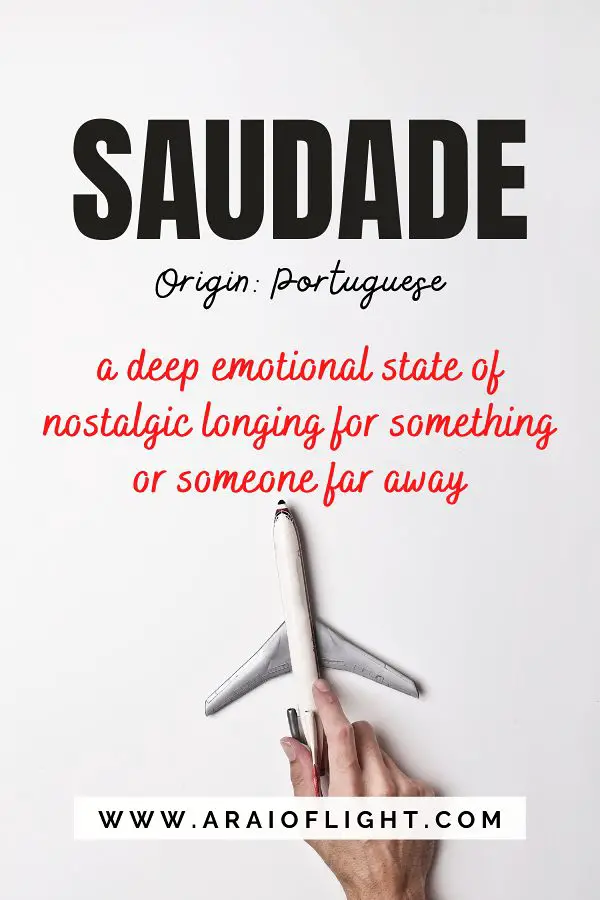
Hiraeth (n.)
A homesickness for a place which you can’t return to. A longing for what may no longer exist.
Origin: Welsh This Welsh term describes not just a longing for home, but a nostalgic desire to reconnect with a place or time period you can’t return to or that may not exist anymore.
Hodophile (adj.)
A lover of roads . A love of travel.
Origin: Greek A unique word to describe a person who loves to travel. I mean, what’s there not to love about exploring the world. The unusual sights, the new tastes, the beautiful landscapes and the people you meet along the way. Raise your hand if, like me, you’re the biggest hodophile? *guilty as charged
Holoholo (n.)
to ride or walk around for pleasure.
Origin: Hawaiian One of my favorite Hawaiian words , it is the perfect description of something I do a lot when exploring a new country.
Hozhoni (n.)
a feeling of being filled with beauty and balance.
Origin: Navajo
The feeling of comfort, relaxation, and coziness in certain settings around certain people, particularly friends.
Origin: Danish This unusual word is not just reserved for travel and holiday, but it is perfectly suited to describe those moments when you’re enjoying a meal, drinks, and those simple pleasures with friends around the world. The Dutch words gezellig or gezelligheid is similar to hygge, describing that feeling of ease and coziness when you’re around friends you feel comfortable with.
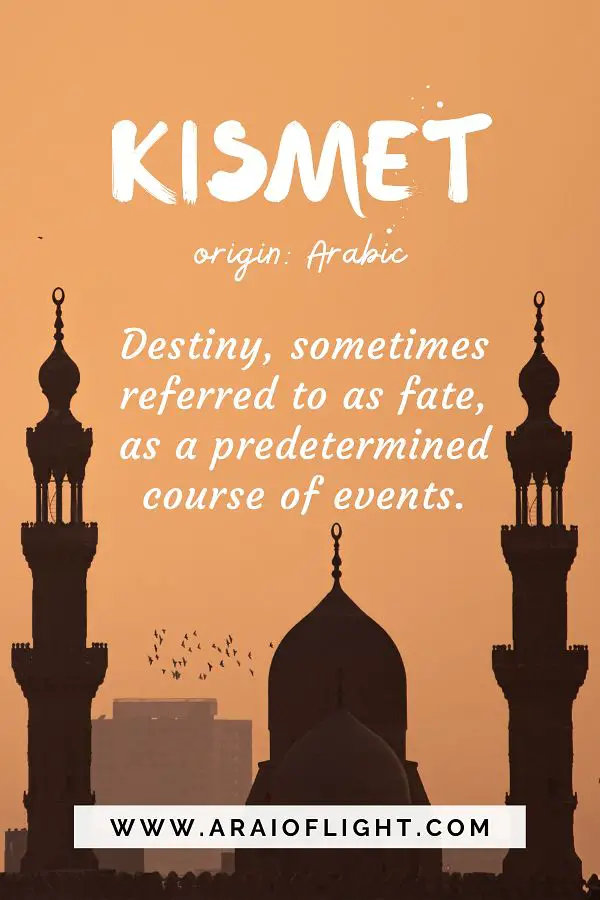
Kismet (n.)
Destiny, sometimes referred to as fate, is a predetermined course of events. It may be conceived as a predetermined future, whether in general or of an individual .
Origin: Arabic This beautiful Arabic-derived word refers to one’s destiny and something that one believes was meant to be.
Livsnjutare (n.)
A person who truly enjoys life and lives it to the extreme .
Origin: Swedish This unique trip word, of Swedish origin, is often used to describe someone who enjoys life and lives it to the full, making the most of each moment. When I am wandering around the world, in places like Mexico , it certainly feels like living to the extreme.
The feeling of enjoyment and oneness with the Universe that comes from the simplest of pleasures .
Origin: Serbian
Meraki (n.)
Doing something with creativity, with love, with soul — when you put “something of yourself” into what you’re doing.
Origin: Greek A beautiful word, that also happens to be one of my favourites. Meraki, derived from Greek, describes the action and the feelings that results when one does something with complete focus and love. Being so caught up with what you’re doing as if your entire being and soul is part of the whole experience. Moments of meraki flood my experience often when painting or when exploring a beautiful landscape.
Monachopsis (n.)
The subtle but persistent feeling of being out of place .
Origin: Greek It comes from the combination of words monos and opsis, where ‘monos’ means solitary or unique and ‘opsis’ refers to like or appearance.
Nefelibata (n.)
One who lives in the clouds of their own imagination and does not obey convention.
Origin: Portuguese Ok, this is me. Just a beautiful meaning word to describe a person who loves to travel. The direct translation is “cloud-walker,” referring to those, like myself, who live in their own world/imagination. An unconventional person that does not blindly follow the rules of society. More about me here.
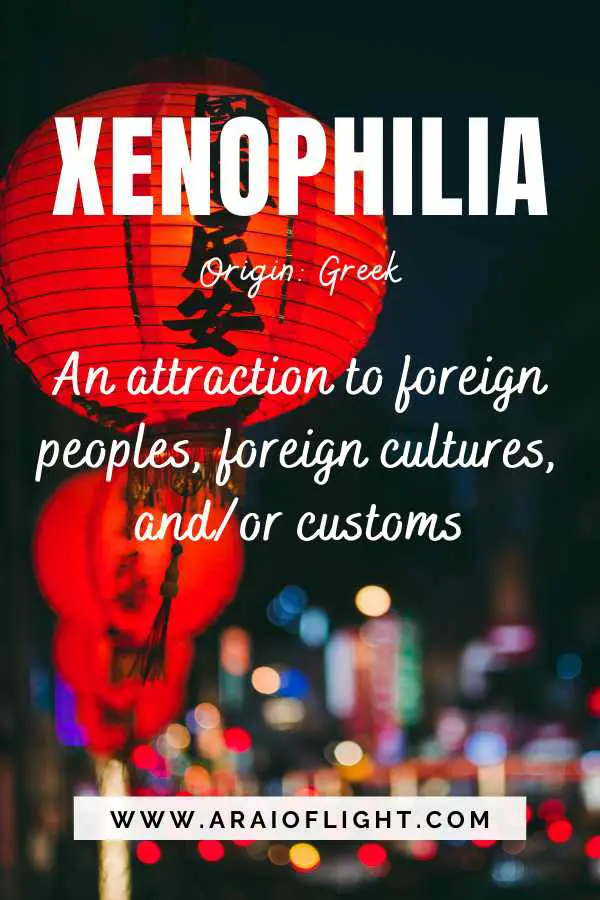
Novaturient (adj.)
A desire to alter your life. The feeling that pushes you to travel.
Origin: Latin This is the feeling that pushed me to quit my job and travel the world. You know, when you are curious to discover what more is out there.
Numinous (adj.)
The powerful, personal feeling of being overwhelmed and inspired.
Origin: Latin Numinous has its origins in Latin, meaning to be both fearful, awed, and inspired by what you see and experience before you. Exploring tends to bring up all the human emotions, often simultaneously, and these catchy travel words are an apt description of the experience. Like the time I went trekking among some of the highest mountains in the world in Nepal .
The awareness of how little of the world you will experience.
Origin: The Dictionary of Obscure Sorrows Once you start seeing the world, you realise just how much more there is to see out there. And you actually reach a point, somewhere along the journey, where you come to the realisation that no matter how extensive your travels are, you will only ever experience a little bit. This realisation is referred to as onism. This creative word associated with travel is not from a foreign language, but actually originates from a book by John Koenig.
Peregrinate (v.)
Travel or wander from place to place.
Origin: Latin From the Latin peregrinari, meaning “to travel abroad,” this type of inspirational travel words refers to a long journey in which you travel to various different places, especially on foot.
Peripatetic (adj.)
A person who travels from place to place.
Origin: Greek Originating from the Greek word peripatein, “to walk up and down,” this adjective is used to describe backpackers who are constantly moving from place to place, living a nomadic existence .
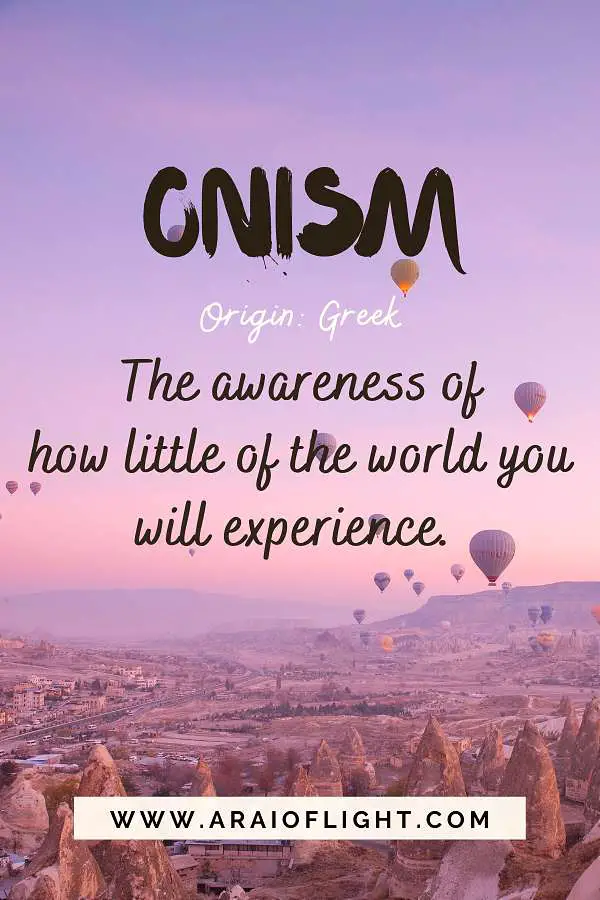
Photophile (n.)
A person who loves photography and light.
Origin: English This pretty word is derived from the biological term of the same name for an organism that loves or thrives in light . If you carry a camera with you wherever you go and post to photo sharing websites ( like instagram ) all day, you’re a photophile.
Quaquaversal (adj.)
Directed outwards in all directions from a common centre
Origin: Latin A good word for travel and the desire to experience everything all at the same time.
Querencia (n.)
The place where you are your most authentic self. Where one’s strength is drawn from; where one feels at home.
Origin: Spanish The term comes from the Spanish verb “querer,” which means “to desire.” Many long term travellers feel at home in the world and their most authentic self when connecting with this place. One of the best words for travel lovers.
Resfeber (n.)
the restless race of a traveler’s heart before the journey begins, when anxiety and anticipation are tangled together.
Origin: Swedish Another catchy word related to travel, resfeber is universally used to describe the mixed emotions one feels just before the journey begins. These emotions include both excitement as well as anxiety and nervousness when starring in the face of the unknown. Like that time I had decided to climb Kilimanjaro , the highest mountain in Africa .
Rückkehrunruhe ( n.)
The feeling of returning home after a trip only to find it fading rapidly from your awareness.
Origin: The Dictionary of Obscure Sorrows
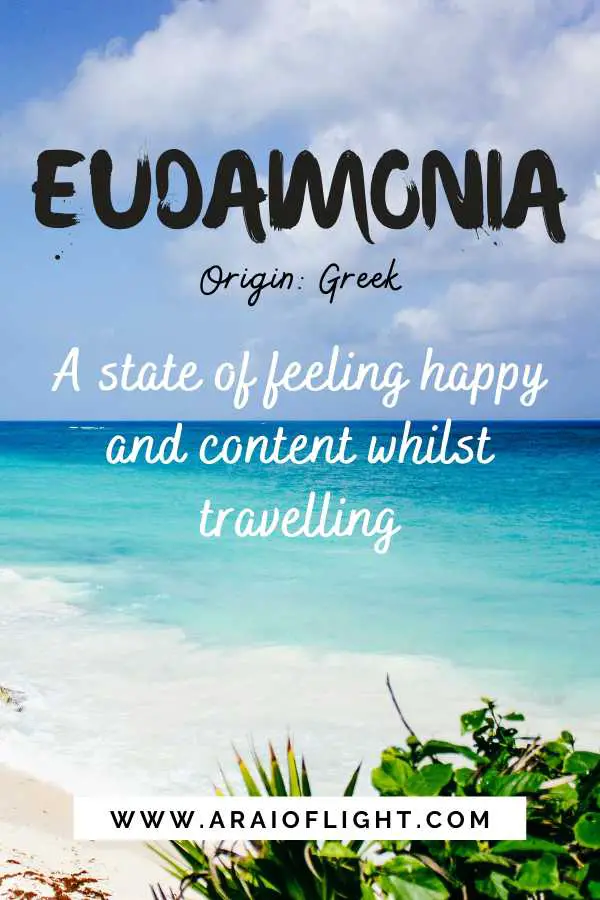
Saudade (n.)
a deep emotional state of nostalgic or melancholic longing for something or someone far away that one cares for and loves.
Origin: Portuguese This is the creative word to use when you’re fondly thinking back to a beautiful moment during your travels and longing to return to that experience.
Schwellenangst (n.)
a fear of, or aversion to, crossing a threshold or entering a place to begin a new chapter.
Origin: German That anxious and fearful feeling you get when you’re about to begin a new chapter in your life, like a new travel adventure to the Caribbean islands . That’s schwellenangst.
Sehnsucht (n.)
a wistful longing and yearning of the heart for travels that have been and travels to come.
Origin: German
Selcouth (adj.)
Strange and uncommon. Unfamiliar, rare, and yet marvellous.
Origin: Old English This is one of my favourite travel words on this list. Not only because of its unusual sound, but also because it is an appropriate way of describing the way you see things when you travel. Everything is unfamiliar and strange, yet we find it inviting and marvellous anyway, much like my time in these South American countries .
Smultronställe (n.)
A special place discovered for solace and relaxation.
Origin: Swedish This Swedish word directly translates to “place of wild strawberries,” used to describe a location or place in this world where you feel most at home. A place that serves as a refuge from any stress and/or sadness. This place, once discovered, is often returned to for comfort and consolation.
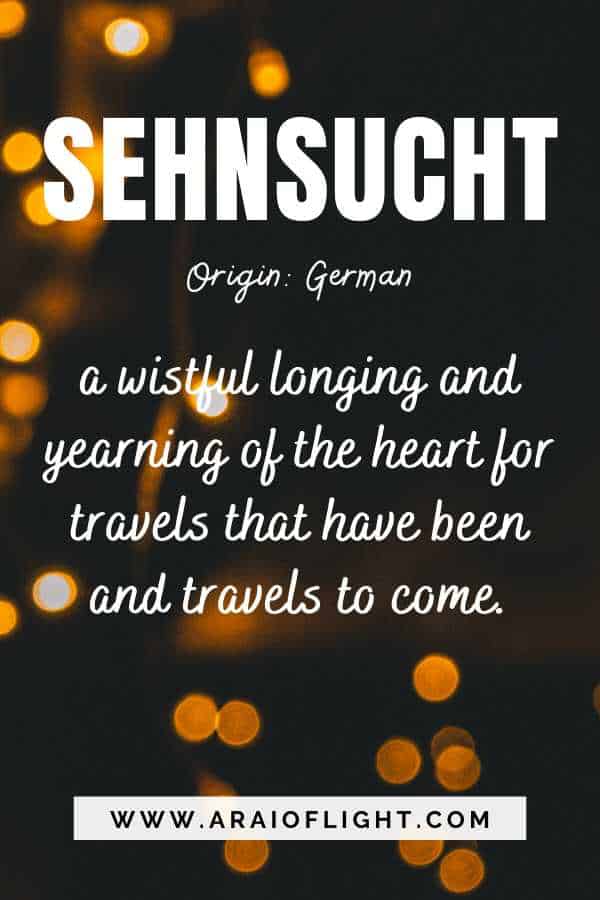
Sojourn (n.)
To stay as a temporary resident. A short period when a person stays in a particular place.
Origin: Old-French Like the months I’ve spent in one of my favorite cities Paris , over the years.
Solivagant (adj.)
A lone wanderer. A solo traveller. A person who revels in the act of wandering alone.
Origin: Latin This popular word, to describe a person who loves to travel alone, as opposed to vacationing with family or friends . It originates from the Latin sōlivagāns, with sōlus meaning “alone” and vagāns meaning “wander.”
Sonder (n.)
The realisation that everyone you pass is living a life just as complex as yours.
Origin: Dictionary of Obscure Sorrows Have you ever had that realisation that a random stranger is living a life that is just as complex and vivid and important as your own. This is sonder. Just a beautiful word and one of the best for travel lovers.
Strikhedonia (n.)
The joy of being able to say “to hell with it.”
Origin: Greek This word about travel perfectly describes the time you stop making excuses, quit everything, book a one way flight , and explore the world. Exactly what I did in 2013, leaving behind my well-paying career in finance to travel the world .
Sturmfrei (adj.)
The freedom of being alone. The ability to do what you want.
Origin: German This German word that directly translates to “storm-free.” However, its real meaning has nothing to do with the weather nor a description about how we feel. It is more a description of the situation itself, such as having the house to one’s self or not having to wait or compromise on what you want to do as a solo traveller.
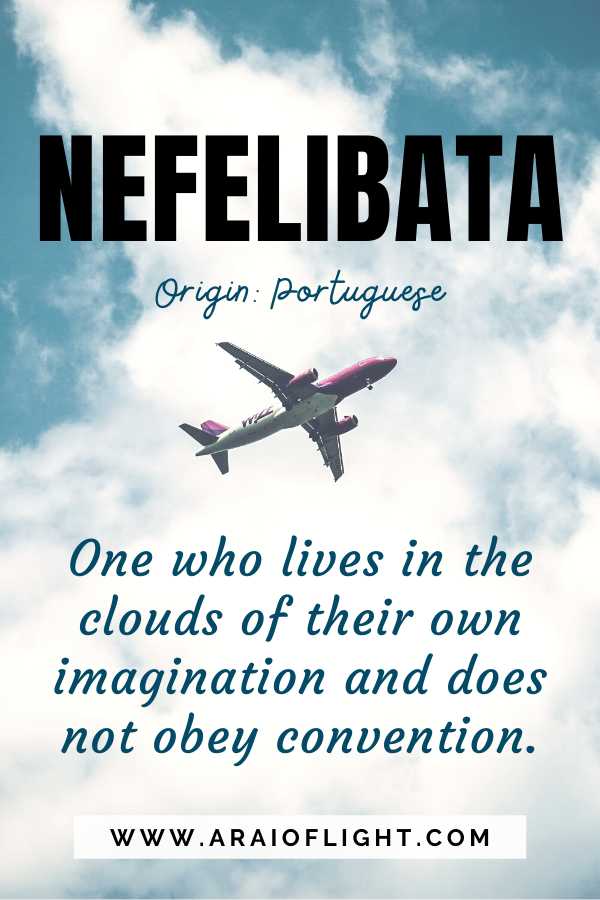
Thalassophile (n.)
a lover of the sea.
Origin: Greek A coconut, a tropical island, a hammock, (maybe some cute animals like those found on Flamingo Beach Aruba ), and a bungalow that leads directly onto the beach and into the sea. Is there anything more that you need, fellow thalassophile?
To wander or roam around in a carefree way
Origin: Thai
Traipse (n.)
To go on foot. A tedious or tiring journey on foot
Origin: unknown
Travitude (n.)
when you start to feel grumpy cause you to miss traveling.
Anyone been feeling this way recently? I sure have.
Tripophobia (n.)
The fear of not having any travel trips currently booked.
When the world and travel shut down in 2020, thipophobia was the main emotion running through my veins. What kind of life is it where there are no adventures to look forward to and you’re forced to remain in the same location for the foreseeable future. You tell me?
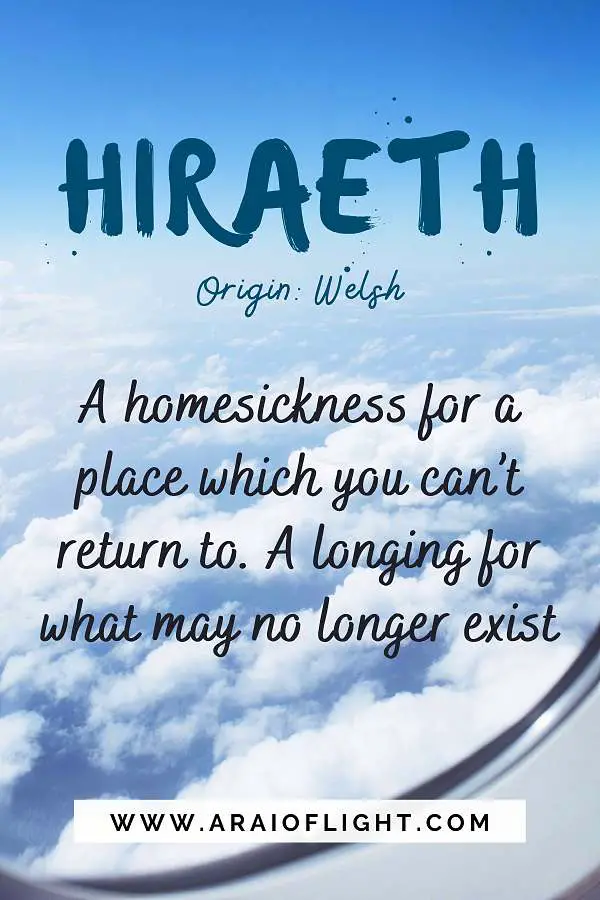
Trouvaille (n.)
Something lovely discovered by chance. A chance encounter with something wonderful.
Origin: French When travelling, especially without much of a plan and with an open heart, it is not uncommon to discover something beautiful purely by chance. These discoveries make for some of the most memorable experiences. This interesting travel word is often used by French travellers to describe a chance encounter. It’s time the rest of us use this word too the next time we unexpectedly stumble upon an inspiring landscape, a cute cafe, or a welcoming local.
Vacilando (v.)
The act of wandering when the experience of travel is more important than reaching the a destination.
Origin: Spanish The word, from Spanish, aims to describe someone who travels for travel sake, and not to reach a particular goal or destination. For us, the journey is more important than the destination or vacation spot . While others despise the act of getting to a place, I savour it and enjoy the long plane, boat, or bus rides and the happenings along the way, especially if the journey occurs in a beautiful setting like the Spanish islands or Greek islands . One of the most inspiring travel words that should be a part of every globetrotter’s vocabulary.
Vagary (v.)
A whimsical or wandering journey.
Origin: Latin With its origins in 16th-century Latin, Vagārī translates as, “to roam.” This unique travel word to describe the travel experience of an unpredictable or impulsive desire or action for a wandering journey.
Vorfreude (n.)
The joyful anticipation when looking forward to something or while imagining future pleasures.
Origin: German Much like the idea or plan of moving abroad and living in Costa Rica .
Waldeinsamkeit (n.)
The feeling of solitude, being alone in the woods and connected to nature.
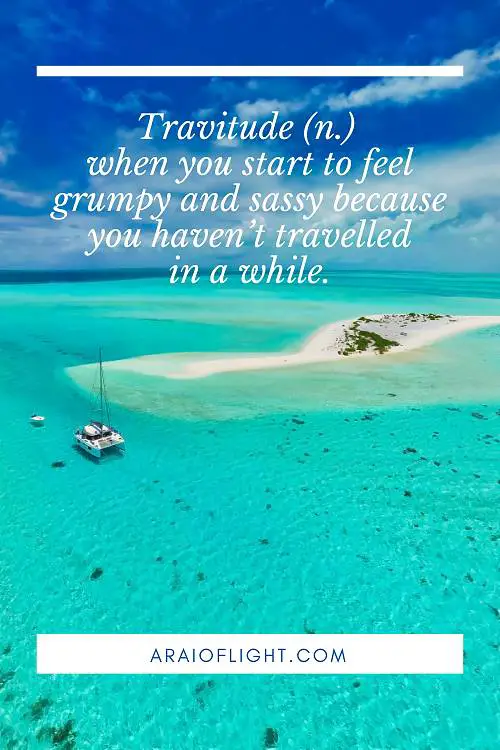
Wayfarer (n.)
Someone who travels, especially on foot.
Origin: English The travel term may seem modern, but it goes back all the way to the mid-1400s as a combination of way defined as “a path or course leading from one place to another,” and fare, meaning “to go, travel.”
Xenophilia (n.)
An attraction to foreign peoples, foreign cultures, and/or customs.
Origin: Greek This attraction, appreciation, and affinity for foreign people, their cultures and customs is what draws many to explore the world. These unique travel words, as a synonym for wanderlust, comes from the Greek “xenos,” meaning “unknown, stranger, foreign” and “philia,” defined as “attraction or love.”
Yoko meshi (n.)
The stress of speaking a foreign language.
Origin: Japanese Another word related to travel that literally translates to, “a meal eaten sideways.” It is used to explain the difficulty and stress when trying to speak a language that is not your native language, whether at home or when abroad. Like, that time I found myself in St Petersburg , struggling to speak Russian to get around the city.
The desire to feel things just as intensely as you did when you were younger.
Origin: Chinese As you grow older, life seems to be less exciting. Travelling overseas and exploring new places is one way of mitigating this. Yu Yi is an inspirational Chinese word that describes the yearning to feel things the way you did while growing up, before expectations, before memory, before words.
a profound, mysterious awareness of the vastness and beauty of the universe… and the sad beauty of human suffering.
Origin: Japanese This untranslatable travel word is used for those moments that lead to a greater awareness and trigger a deep emotional response within.
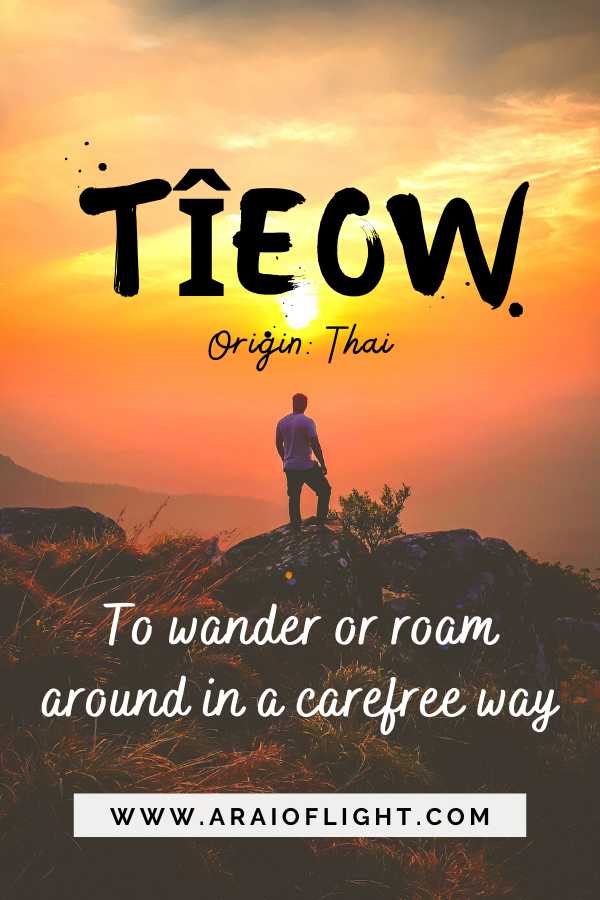
Over to YOU… Did you enjoy traveling the word? How many of these these creative travel words have you heard before? Which one(s) your favorite and which of these unique words associated with travel do you resonate with most? What phrases describe the travel experience and make for the best words for travel lovers in your language? Let me know in the comments below or start a conversation with me on social media.
>> Read next:
- Learn these words in other languages: Beautiful . Light . Cheers
- The ultimate list of smile quotes to keep you smiling all day
- The best quotes about travelling to inspire you
- How many countries in the world? And should you visit all?
- Sustainable travel: 10 ways to become a more responsible tourist
- Be inspired: An ode to my fellow travellers .
- What should you do with you life? What is the purpose of life?
Your fellow hodophile, Rai
You may also like...
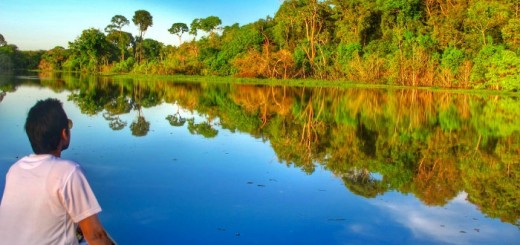
Fear, Television is ruining your life!
April 13, 2020
by Raihaan · Published April 13, 2020 · Last modified September 6, 2021
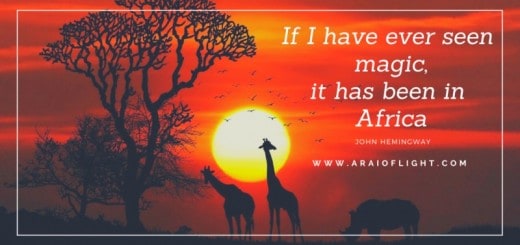
200+ African Quotes and African Proverbs to Inspire
February 3, 2024
by Raihaan · Published February 3, 2024
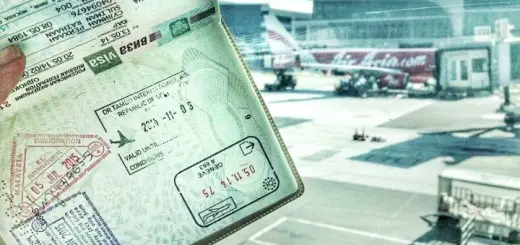
Show me your passport
May 21, 2020
by Raihaan · Published May 21, 2020 · Last modified September 6, 2021
Leave a Reply Cancel reply
Your email address will not be published. Required fields are marked *
- Next story First Trip to Egypt? My Ultimate Guide of Insider Tips To Know BEFORE You Go
- Previous story My Stay at Tintswalo at Waterfall: Hotel Review
WHO IS ARAIOFLIGHT ✈

Welcome to A Rai of Light!
A home for extraordinary people around the world. If you've ever felt like there must be more to life, this site is for you.
Out of a love for travel, writing, photography, sharing stories and a desire to inspire others , I created this space to connect with other like-minded individuals.
Along the way, I share my journey and strategies on Travel , Art and Life . Enjoy!
DISCOVER MORE: POPULAR ✈
- Recent Posts
- Popular Posts

How Many Countries Have You Been to? Here’s Why You Should NOT Keep Count.

150+ Ways To Say GOOD MORNING in Different Languages Around the World

10 Cheapest Islands in Greece in 2024 for an Affordable Greek Holiday

The Most Beautiful Landmarks in Africa You MUST SEE in Your Lifetime

The BEST Kebab in Istanbul: 15 Restaurants to Find the Best One!

6 Cool + Fun Places To Go in California With Friends

21 Cheapest Countries in Europe To Visit in 2024
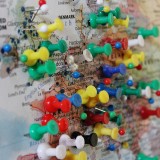
List: Which Countries Can You Visit on a Schengen Visa in 2024

WEIRD Food around the world | 35 World Travelers reveal the strangest food they’ve ever eaten

First Trip to Egypt? My Ultimate Guide of Insider Tips To Know BEFORE You Go

Flying Tips: 13 Things NOT To Do on an Airplane

Epic List: The Best Short Treks in Nepal!

Aruba Flamingo Beach: Worth $130? + How To Visit in 2024
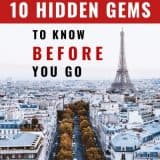
Hidden Gems: 10 Best Secret Views in Paris!
FOLLOW THE ADVENTURE ✈
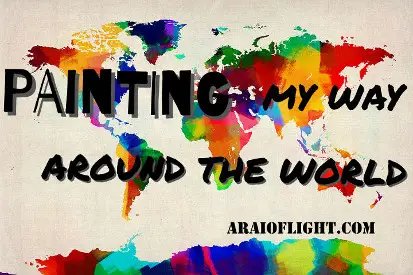

40 Unique Words About Travel
“Not all who wander are lost” J.R.R. Tolkien – but perhaps they’re suffering from fernweh? Or have a bout of wanderlust? Or they were born a nemophilist?
Have you ever traveled to a new destination and not known how to describe what you’re feeling? Well, there are loads of different travel synonyms in different languages that’ll help you describe what you’re feeling perfectly.
Take a look at this list filled with creative travel words, wanderlust synonyms, and travel lover synonyms. Expand your travel vocabulary!
Meaning: An urge to travel is even stronger than wanderlust.
Origin: German
#2 Numinous
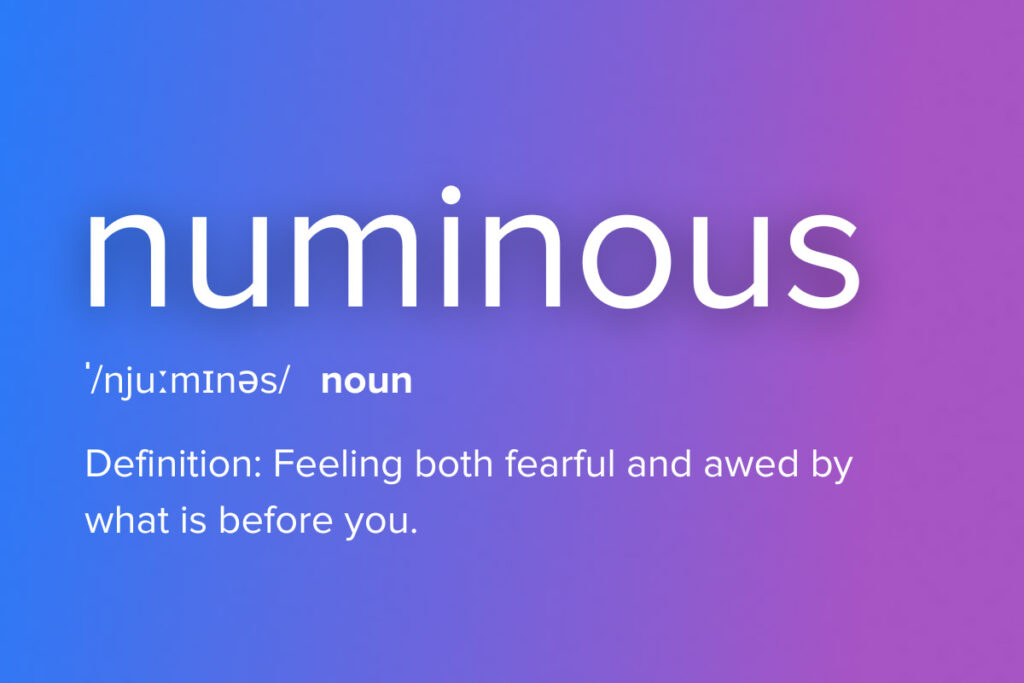
Meaning: Feeling both fearful and awed by what is before you.
Origin: Latin
#3 Strikhedonia
Meaning: The joy of being able to say “to hell with it”.
Origin: Greek
#4 Peregrinate
Meaning: To travel or wander around from place to place.
#5 Eudaimonia
Meaning: The contented happiness you feel when you travel.
Meaning: The realization that each random passerby is living a life as vivid and complex as your own.
Origin: Unknown
#7 Trouvaille
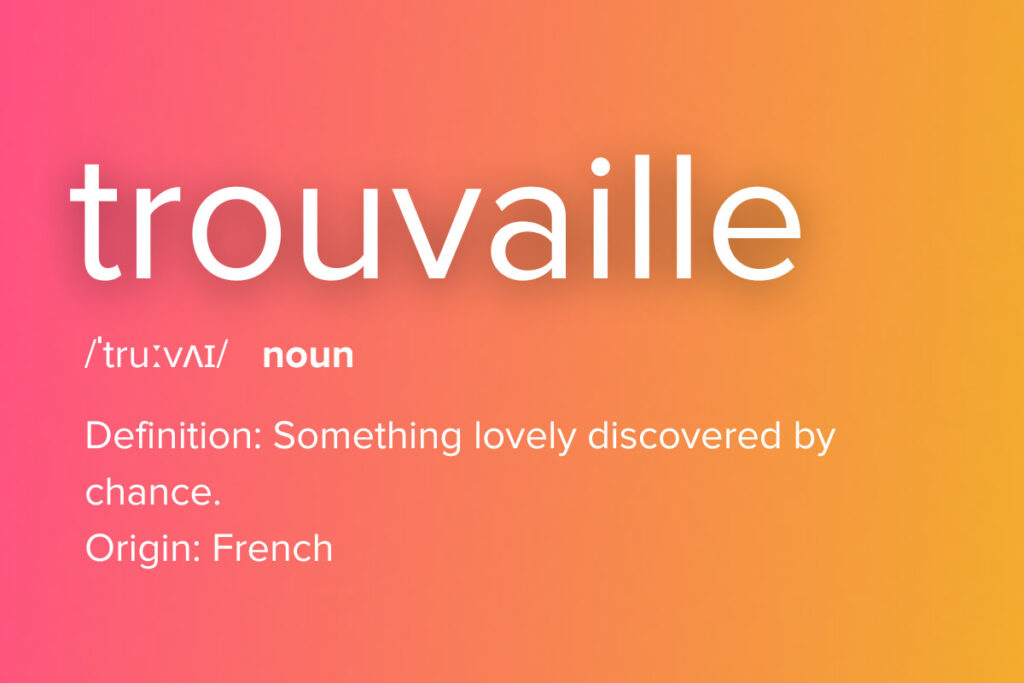
Meaning: Something lovely discovered by chance.
Origin: French
Meaning: The awareness of how little of the world you’ll experience.
Origin: Danish
Meaning: A spontaneous journey where the traveler lets the spirit of the landscape and architecture move them.
#10 Serendipity
Meaning: Finding something interesting or valuable by chance.
Origin: English
#11 Livsnjutare
Meaning: One who loves life deeply and lives it to the extreme.
Origin: Swedish
#12 Solivagant
Meaning: Wandering alone. A solitary adventurer who travels or wanders the globe.
#13 Ecophobia
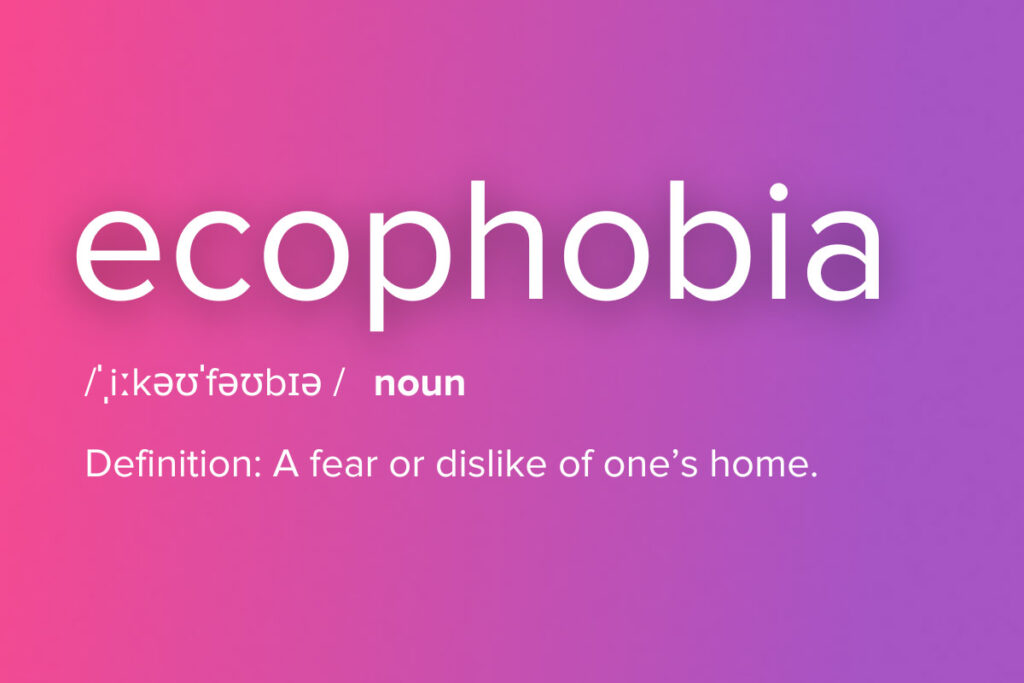
Meaning: A fear or dislike of one’s home.
#14 Schwellenangst
Meaning: Fear of crossing a threshold to begin a new chapter.
#15 Eleutheromania
Meaning: The intense desire for freedom.
Meaning: A whimsical or roaming journey.
#17 Saudade
Meaning: The emotional state of nostalgia and longing for someone or something distant. Saudade was once described as “the love that remains” after someone is gone.
Origin: Portuguese
Meaning: The warm feeling you get while enjoying the company of great friends and all life has to offer.
Psst! We have some hearty Hygge ideas to make the winter time cozier for you here .
#19Nemophilist
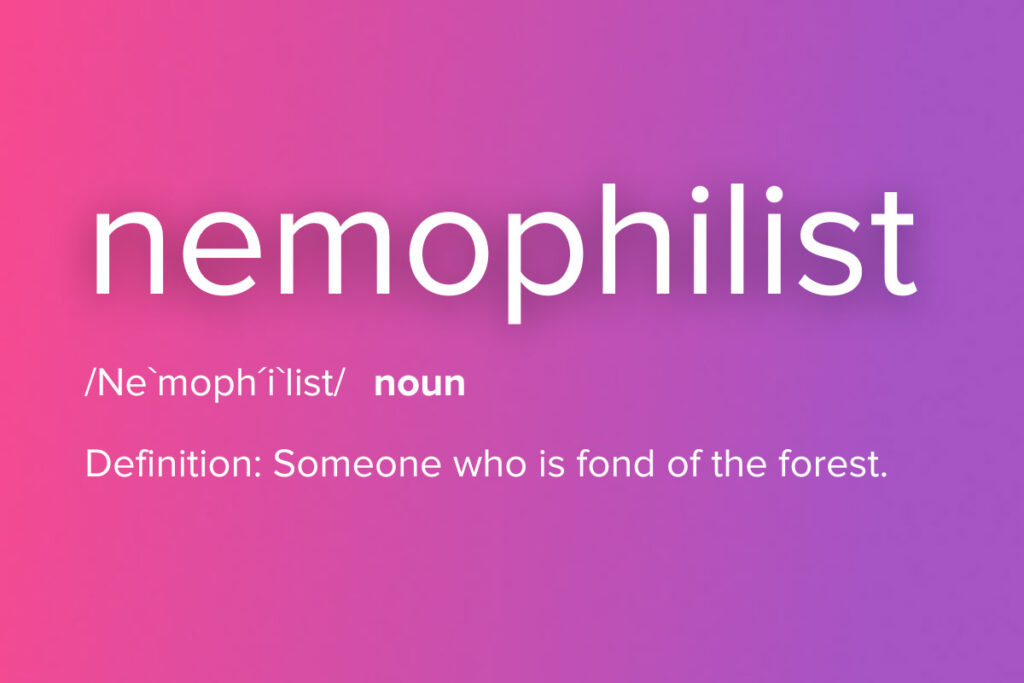
Meaning: Someone who is fond of the forest.
Origin: English
#20 Yoko meshi
Meaning: The word is not an easy translation but it describes the stress of speaking a foreign language.
Origin: Japanese
#21 Coddiwomple
Meaning: To travel purposefully towards an unknown destination
#22 Sehnsucht
Meaning: A wistful longing and yearning in the heart for travels that have been and travels to come.
#23 Yūgen
Meaning: A profound and mysterious sense of the beauty of the universe.
#24 Sturmfrei
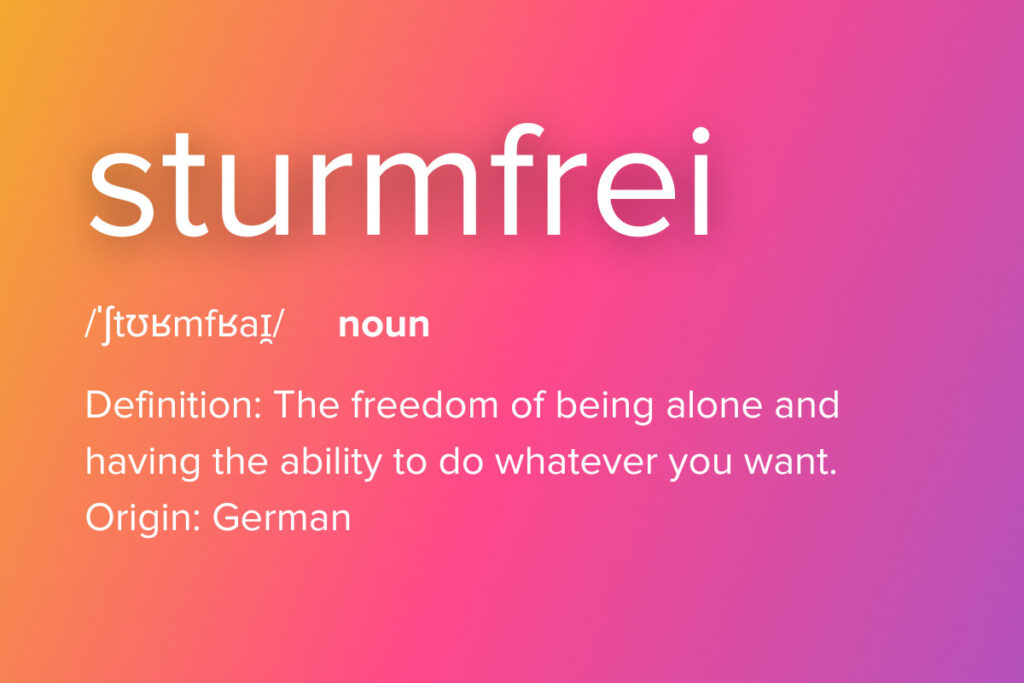
Meaning: The freedom of being alone and having the ability to do whatever you want.
#25 Nefelibata
Meaning: One who lives in the cloud of their own imagination. Someone who is generally unconventional.
#26 Commuovere
Meaning: To move to tears.
Origin: Italian
Check out these best views in the world that’ll move you to tears!
#27 Flâuner
Meaning: A person of leisure, deliberately aimless, simply wandering the streets.
#28 Musafir
Meaning: Traveler
Origin: Urdu
#29 Querencia
Meaning: The place where you are your most authentic self, from where strength is drawn, where you feel at home.
Origin: Spanish
#30 Thalassophile
Meaning: A lover of the ocean.
As a thalassophile myself, I’d recommend traveling along the sea on Greece’s Rhodes Island .
#31 Komorebi
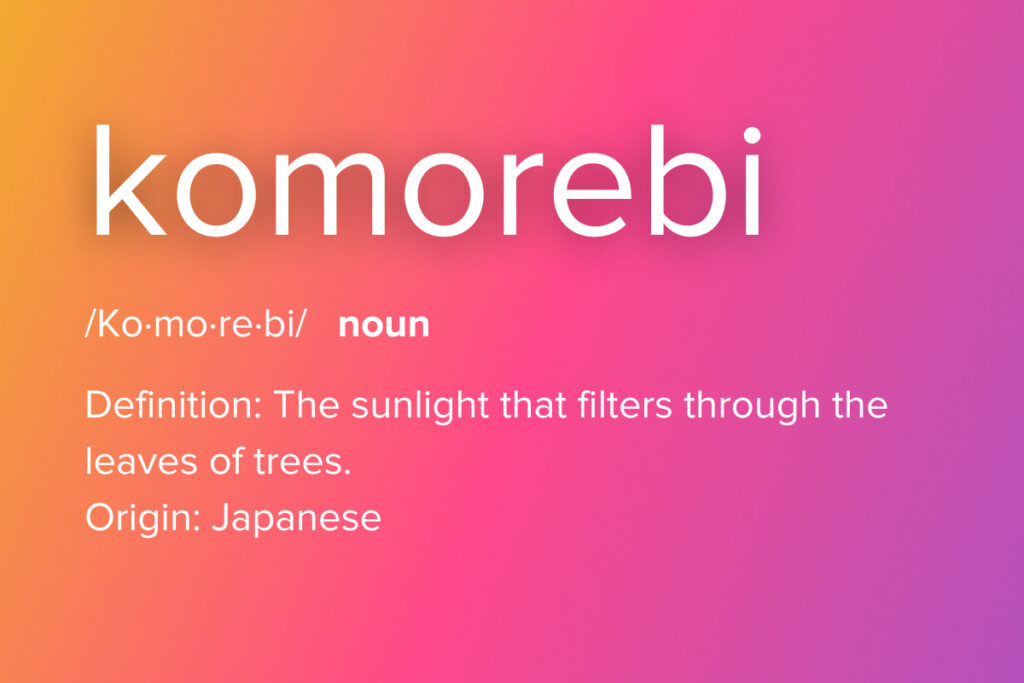
Meaning: The sunlight that filters through the leaves of trees.
#32 Acatalepsy
Meaning: The idea that it is impossible to truly comprehend everything.
#33 Wayfarer
Meaning: Someone who loves to travel, especially on foot.
#34 Selcouth
Meaning: Something that’s odd and unusual to a person.
Origin: Old English
#35 Novaturient
Meaning: A desire to seek powerful change in one’s life; the feeling that pushes you to travel.
#36 Rückkehrunruhe
Meaning: The feeling of returning home after an immersive trip only to find it fading rapidly from your awareness—to the extent you have to keep reminding yourself that it happened at all.
#37 Exulansis
Meaning: is what you feel when you stop trying to explain or talk about an experience because the surrounding people cannot relate to it.
Meaning: Living in the moment, detached from the bothers of life.
#39 Wanderlust
Meaning: A strong desire to travel.
Origin: German
Meaning: A union or reunion after being apart for a long time with one’s beloved.
Origin: Turkish
We hope you’ve found some new beautiful and inspiring words about travel! If you’d like to learn more, check out these inspirational words in other languages !
Or send one of these beautiful words on a personalized travel postcard via the MyPostcard app . We print and send your postcards for you!
Hiya, I’m Maud. I’m an English girl who's moved to Berlin - because who wouldn’t fall in love with a country which has words like ‘Kummerspeck’ hidden around every corner... I love traveling and finding out the quirks of each country - and what better way to remember them than on a postcard?
Related Posts
Dresden and saxon switzerland – the perfect weekend trip, vacation in carinthia: experience the sunny side of the austrian alps, off to a texas adventure: our trip to san antonio, fredericksburg and bandera – part 2.
Comments are closed.

Atlas & Boots
The UK's most popular outdoor travel blog

95 most inspirational travel quotes ever penned
Our favourite inspirational travel quotes have encouraged us to travel with abandon over the years. Perhaps they will do the same for you…
For us, there is no such thing as luxury travel; travel is, by default, a luxury. It is a privilege provided by the country of our birth, a privilege that many are not as fortunate to enjoy.
Sometimes, we have to pinch ourselves at just how ridiculous our lives have become: an ex-teacher and jobbing writer travelling the world for a living. It is absurd, it is astonishing, it is luxury.
When I first went travelling at 21 years old, my father gave me this quote scrawled on a piece of card.
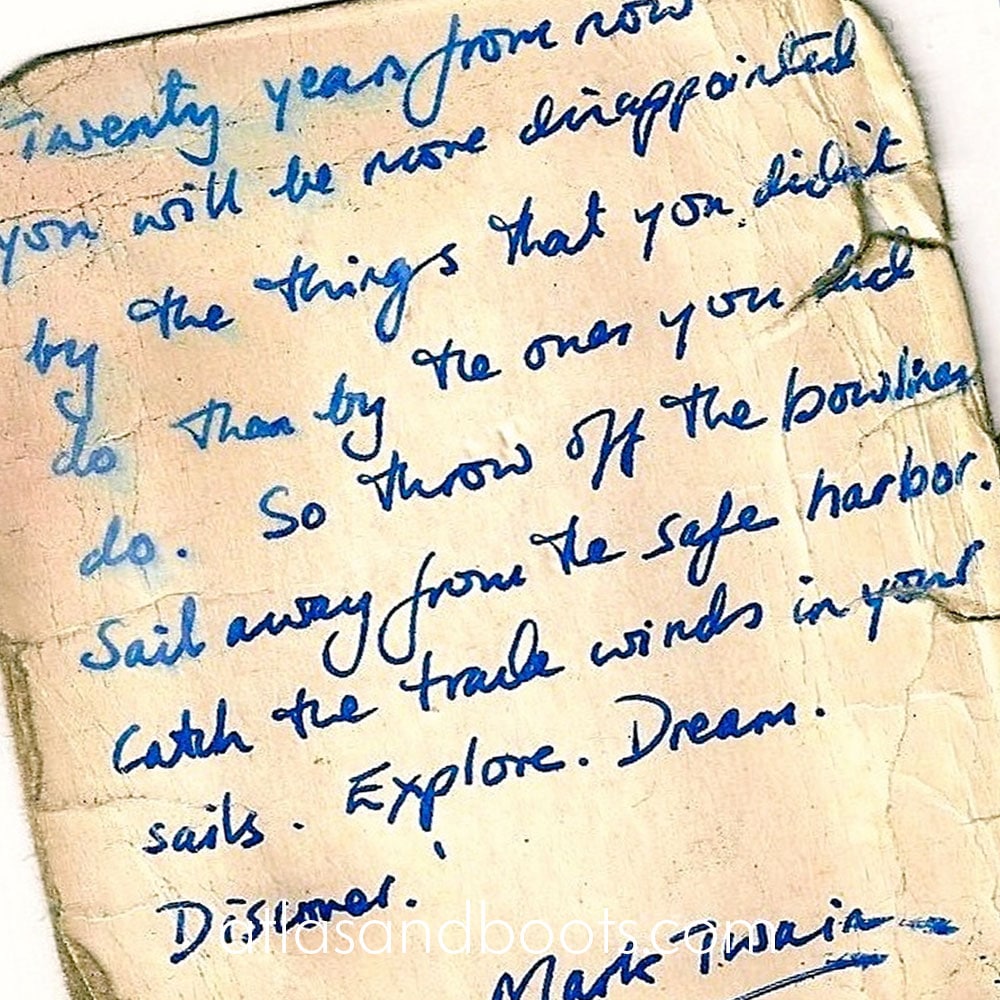
It infused me with wanderlust. It encouraged me to get out of my comfort zone, make the most of my time, see the world and enjoy the freedom that comes with being on the road. It remains one of the most inspirational travel quotes I’ve read (even if Twain did not actually say it).
Today, 20 years and almost 100 countries later, it’s still in my wallet. Despite its tattered and dishevelled appearance, it’s every bit as important to me now as it was then.
With that in mind, we’ve collated our most beloved inspirational travel quotes to encourage readers to “explore, dream and discover” for themselves.
inspirational travel quotes
1. “To my mind, the greatest reward and luxury of travel is to be able to experience everyday things as if for the first time, to be in a position in which almost nothing is so familiar it is taken for granted.” – Bill Bryson
2. “The world is a book and those who do not travel read only one page.” – St. Augustine

3. “Travel is never a matter of money, but of courage.” – Paulo Coelho
4. “With age, comes wisdom. With travel, comes understanding.” – Sandra Lake
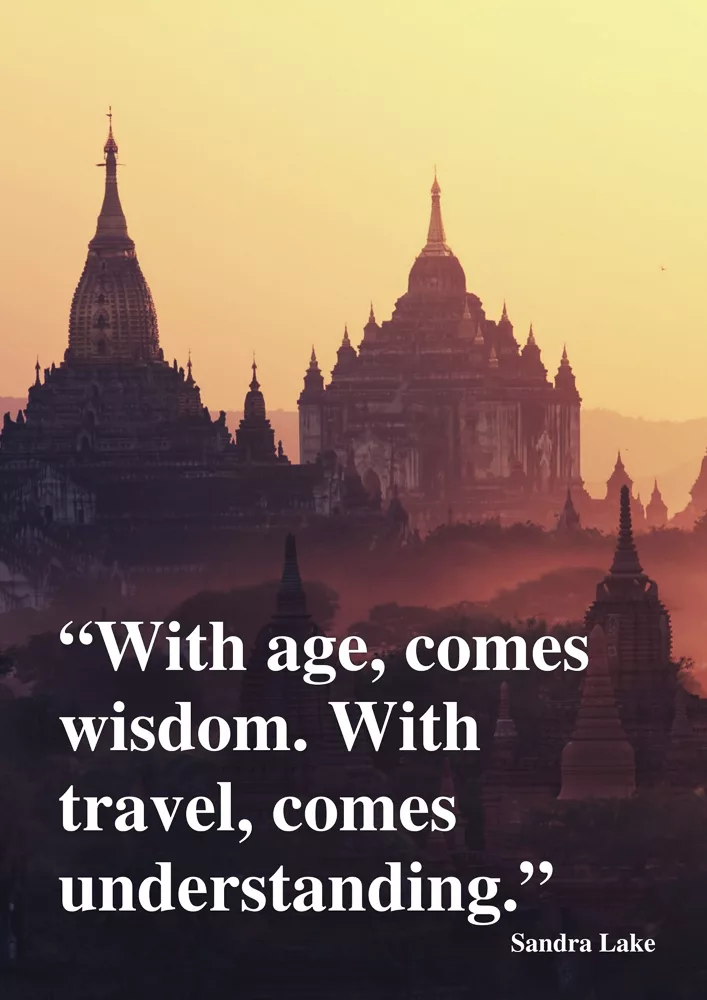
5. “When overseas you learn more about your own country, than you do the place you’re visiting.” – Clint Borgen
6. “Travel is fatal to prejudice, bigotry, and narrow-mindedness.” – Mark Twain

7. “Don’t tell me the sky’s the limit when there are footprints on the moon.” – Paul Brandt
8. “The man who goes alone can start today; but he who travels with another must wait till that other is ready.” – Henry David Thoreau
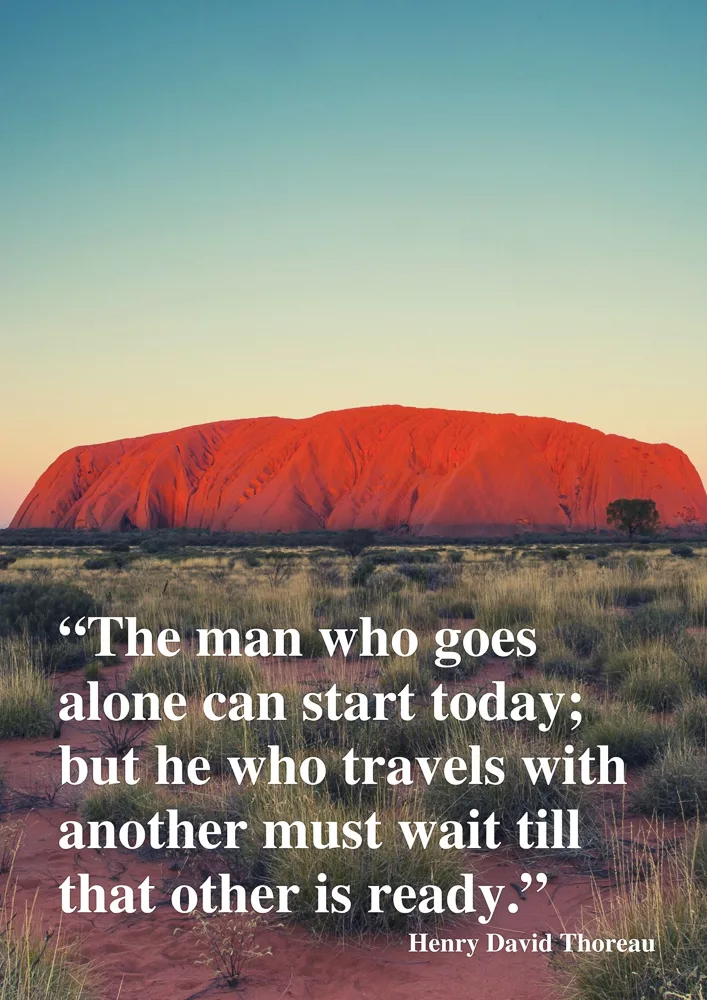
9. “The first condition of understanding a foreign country is to smell it.” – Rudyard Kipling
10. “A journey of a thousand miles must begin with a single step.” – Lao Tzu

11. “When preparing to travel, lay out all your clothes and all your money. Then take half the clothes and twice the money.” – Susan Heller Anderson
12. “No place is ever as bad as they tell you it’s going to be.” – Chuck Thompson
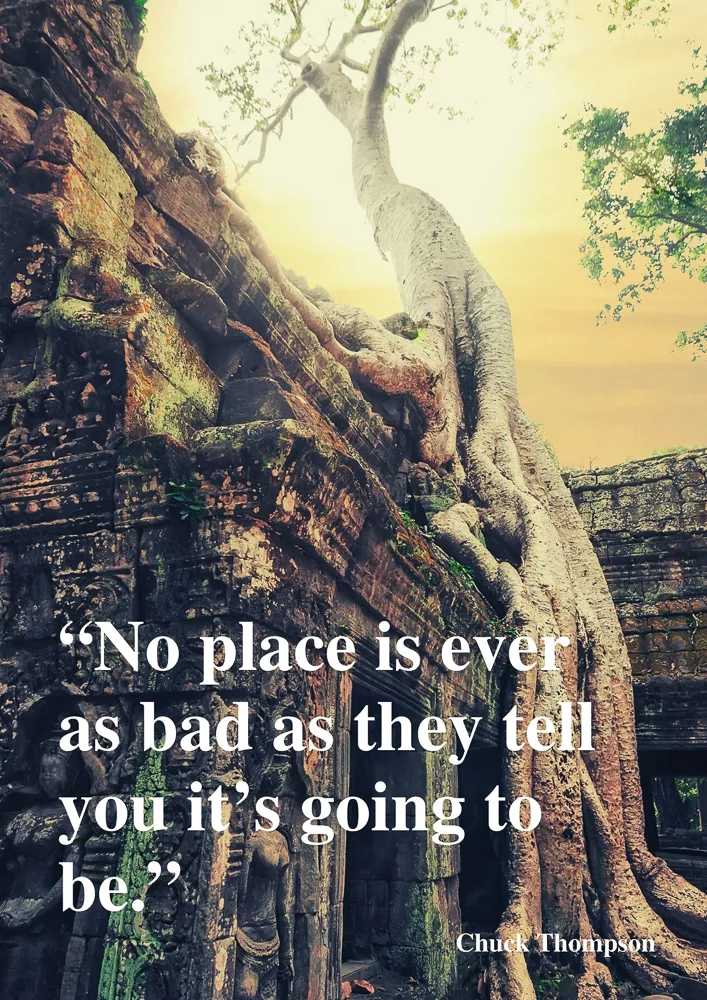
13. “We live in a wonderful world that is full of beauty, charm and adventure. There is no end to the adventures we can have if only we seek them with our eyes open.” – Jawaharlal Nehru
14. “A good traveler has no fixed plans and is not intent on arriving.” – Lao Tzu

15. “There is no moment of delight in any pilgrimage like the beginning of it.” – Charles Dudley Warner
16. “A ship in harbor is safe, but that’s not what ships were built for.” – John A. Shedd

17. “Tourists don’t know where they’ve been, travelers don’t know where they’re going.” – Paul Theroux
18. “Not all those who wander are lost.” – J. R. R. Tolkien

19. “Do not follow where the path may lead. Go instead where there is no path and leave a trail.” – Ralph Waldo Emerson
20. “Like all great travelers, I have seen more than I remember, and remember more than I have seen.” – Benjamin Disraeli
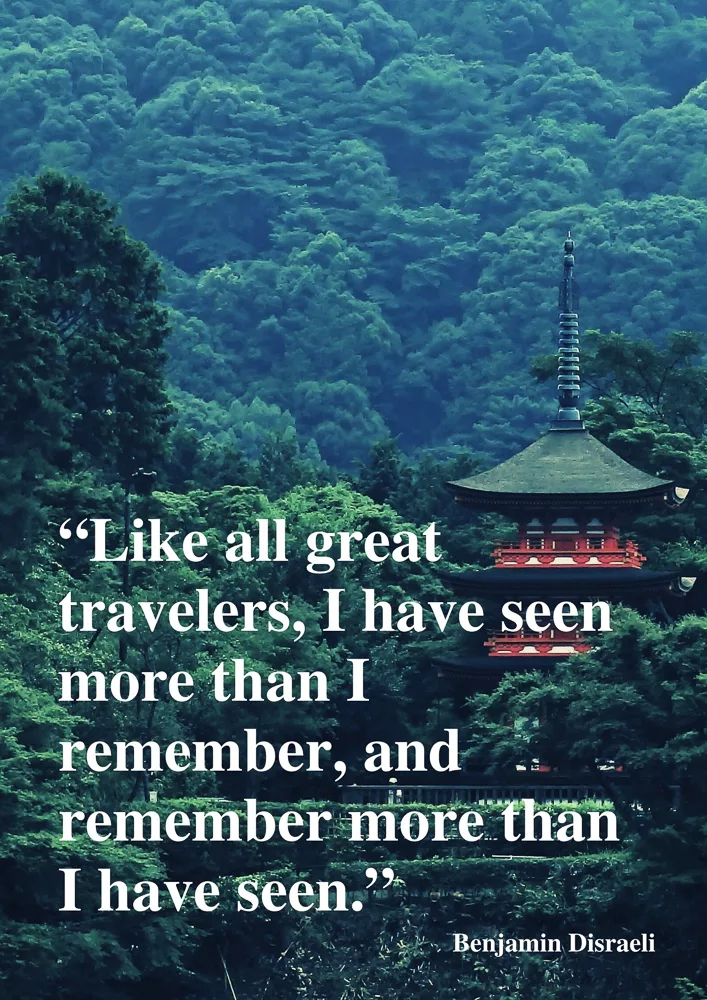
21. “Once a year, go somewhere you’ve never been before.” – The Dalai Lama
22. “No one realizes how beautiful it is to travel until he comes home and rests his head on his old, familiar pillow.” – Lin Yutang

23. “What you’ve done becomes the judge of what you’re going to do – especially in other people’s minds. When you’re travelling, you are what you are right there and then. People don’t have your past to hold against you. No yesterdays on the road.” – William Least Heat Moon
24. “There are no foreign lands. It is the traveller only who is foreign.” – Robert Louis Stevenson
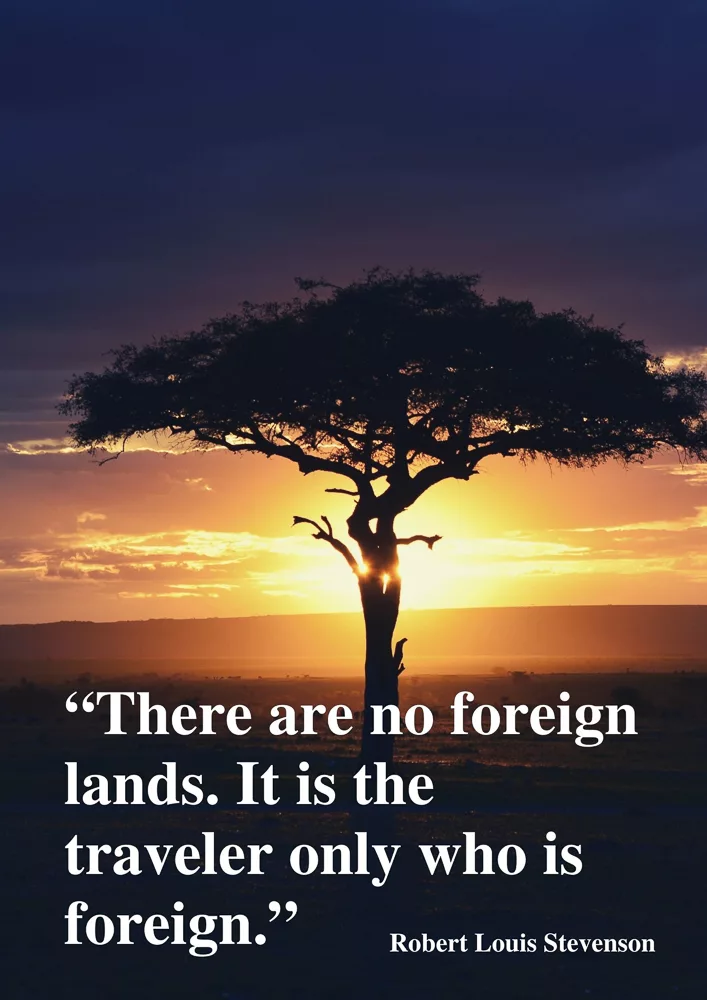
25. “Travel is glamorous only in retrospect.” – Paul Theroux
26. “A traveller without observation is a bird without wings.” – Moslih Eddin Saadi

27. “Your true traveller finds boredom rather agreeable than painful. It is the symbol of his liberty-his excessive freedom. He accepts his boredom, when it comes, not merely philosophically, but almost with pleasure.” – Aldous Huxley
28. “One’s destination is never a place, but a new way of seeing things.” – Henry Miller
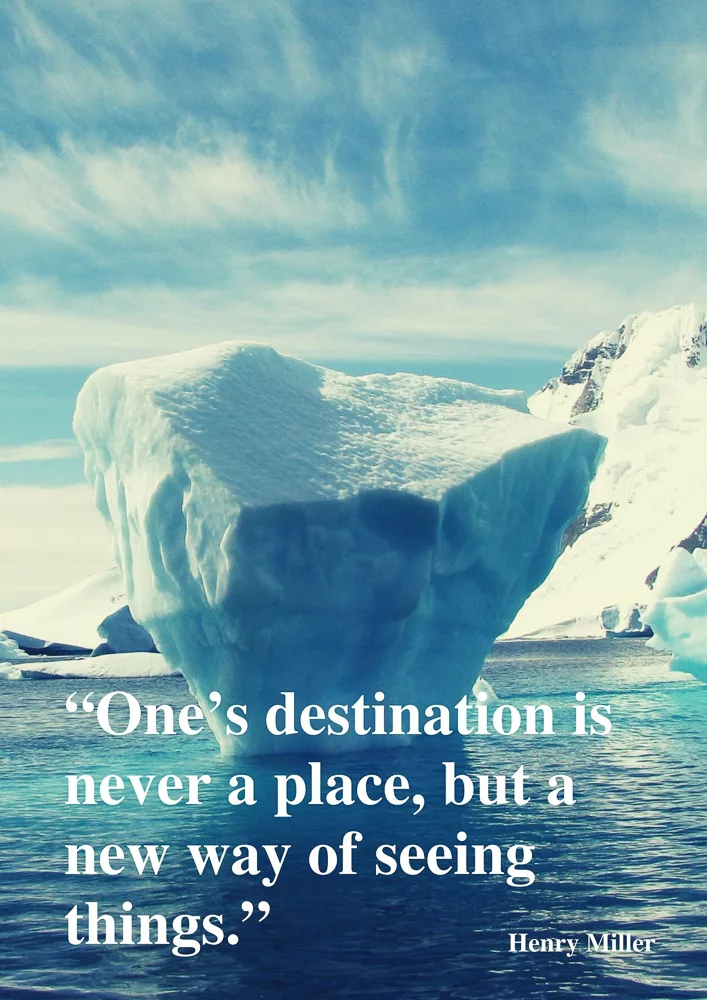
29. “All travel has its advantages. If the passenger visits better countries, he may learn to improve his own. And if fortune carries him to worse, he may learn to enjoy it.” – Samuel Johnson
30. “Wandering re-establishes the original harmony which once existed between man and the universe.” – Anatole France

31. “I can’t control the wind but I can adjust the sail.” – Ricky Skaggs
32. “We wander for distraction, but we travel for fulfilment.” – Hilaire Belloc
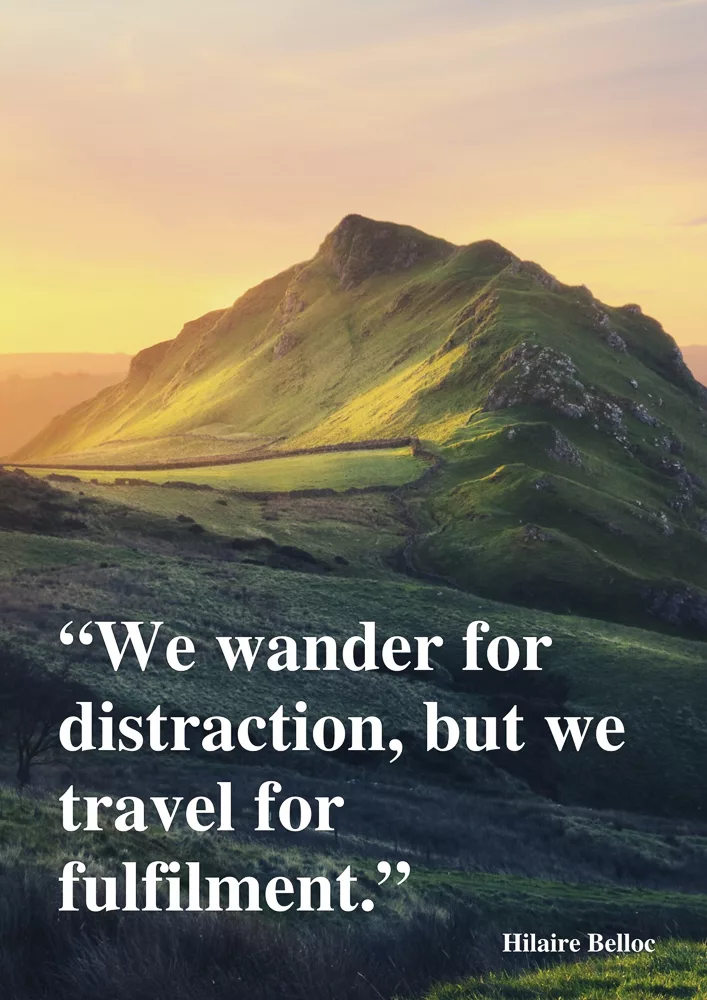
33. “People travel to faraway places to watch, in fascination, the kind of people they ignore at home.” – Dagobert D. Runes
34. “If you reject the food, ignore the customs, fear the religion and avoid the people, you might better stay at home.” – James Michener

35. “The use of travelling is to regulate imagination by reality, and instead of thinking how things may be, to see them as they are.” – Samuel Johnson
36. “You don’t have to be rich to travel well.” – Eugene Fodor
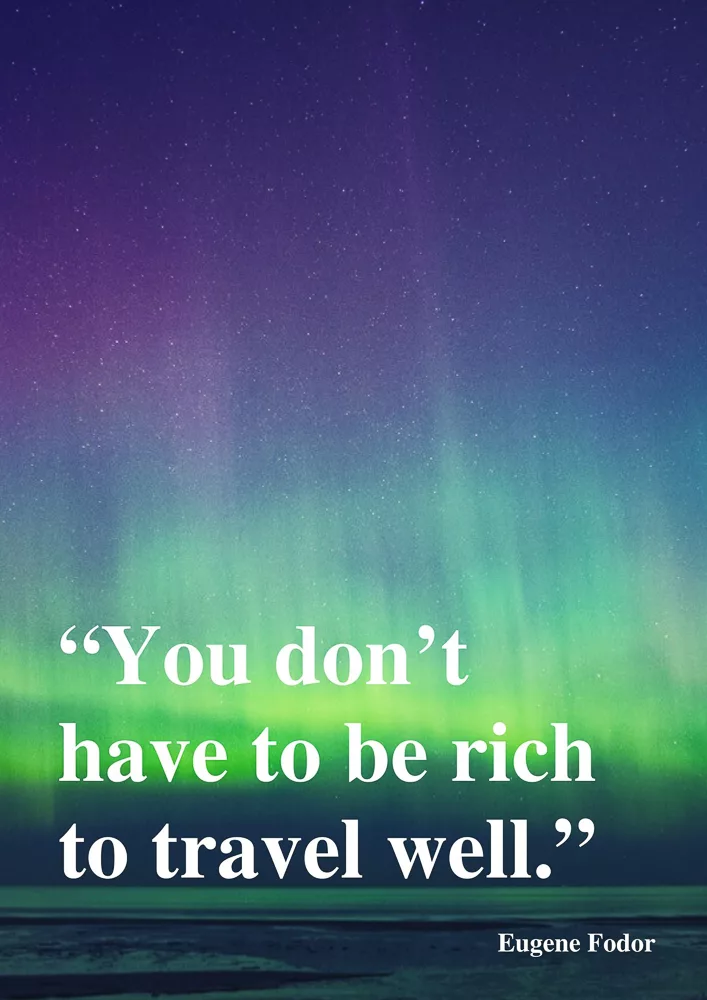
37. “Perhaps travel cannot prevent bigotry, but by demonstrating that all peoples cry, laugh, eat, worry, and die, it can introduce the idea that if we try and understand each other, we may even become friends.” – Maya Angelou
38. “All journeys have secret destinations of which the traveler is unaware.” – Martin Buber

39. “Two roads diverged in a wood and I – I took the one less traveled by.” – Robert Frost
40. “Travel and change of place impart new vigor to the mind.” – Seneca

41. “Traveling is a brutality. It forces you to trust strangers and to lose sight of all that familiar comfort of home and friends. You are constantly off balance. Nothing is yours except the essential things – air, sleep, dreams, the sea, the sky – all things tending towards the eternal or what we imagine of it.” – Cesare Pavese
42. “Once the travel bug bites, there is no known antidote, and I know that I shall be happily infected until the end of my life.” ― Michael Palin
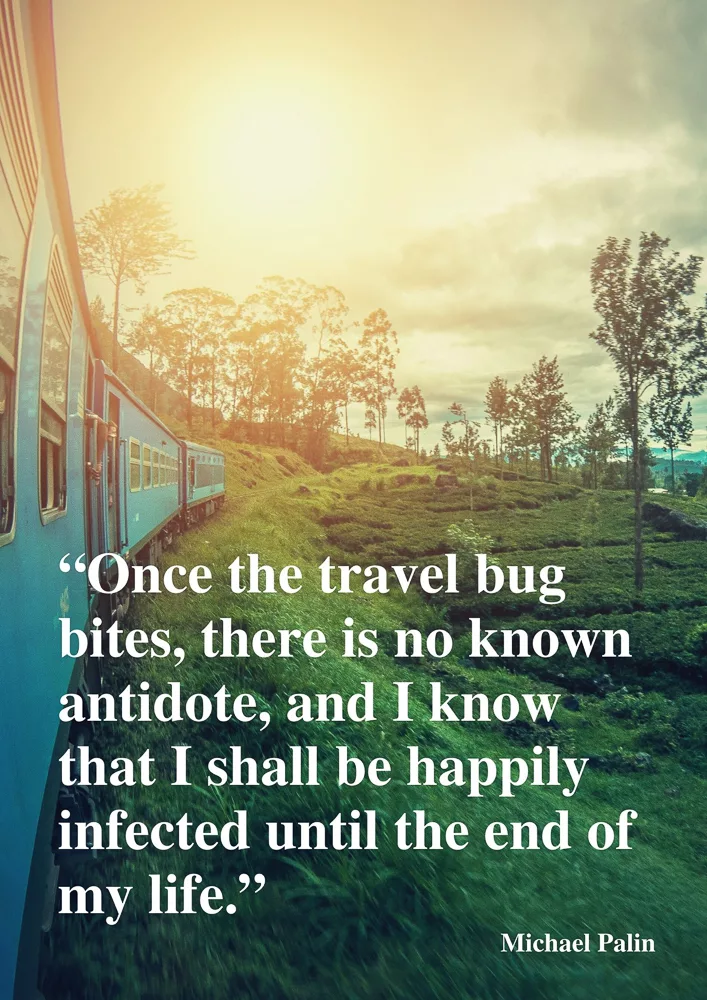
43. “A journey is best measured in friends, rather than miles.” – Tim Cahill
44. “A journey is like marriage. The certain way to be wrong is to think you control it.” – John Steinbeck

45. “When you travel, remember that a foreign country is not designed to make you comfortable. It is designed to make its own people comfortable.” – Clifton Fadiman
46. “There are far, far better things ahead than we leave behind.” – C.S. Lewis
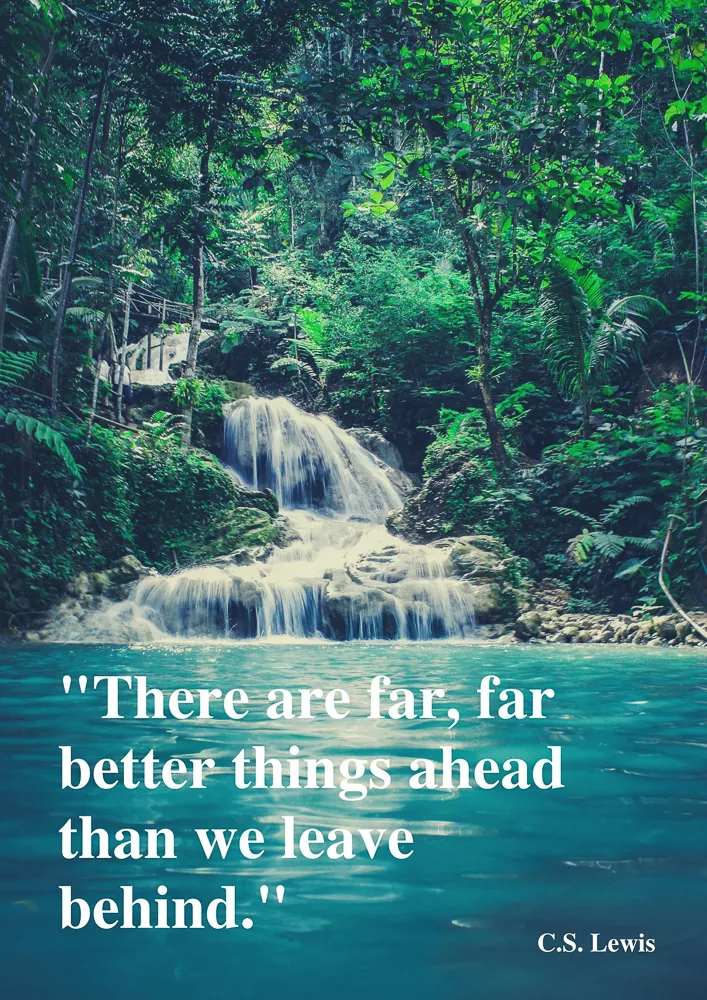
47. “Travel does what good novelists also do to the life of everyday, placing it like a picture in a frame or a gem in its setting, so that the intrinsic qualities are made more clear. Travel does this with the very stuff that everyday life is made of, giving to it the sharp contour and meaning of art.” – Freya Stark
48. “To travel is to discover that everyone is wrong about other countries.” – Aldous Huxley

49. “All the pathos and irony of leaving one’s youth behind is thus implicit in every joyous moment of travel: one knows that the first joy can never be recovered, and the wise traveller learns not to repeat successes but tries new places all the time.” – Paul Fussell
50. “I have found out that there ain’t no surer way to find out whether you like people or hate them than to travel with them.” – Mark Twain
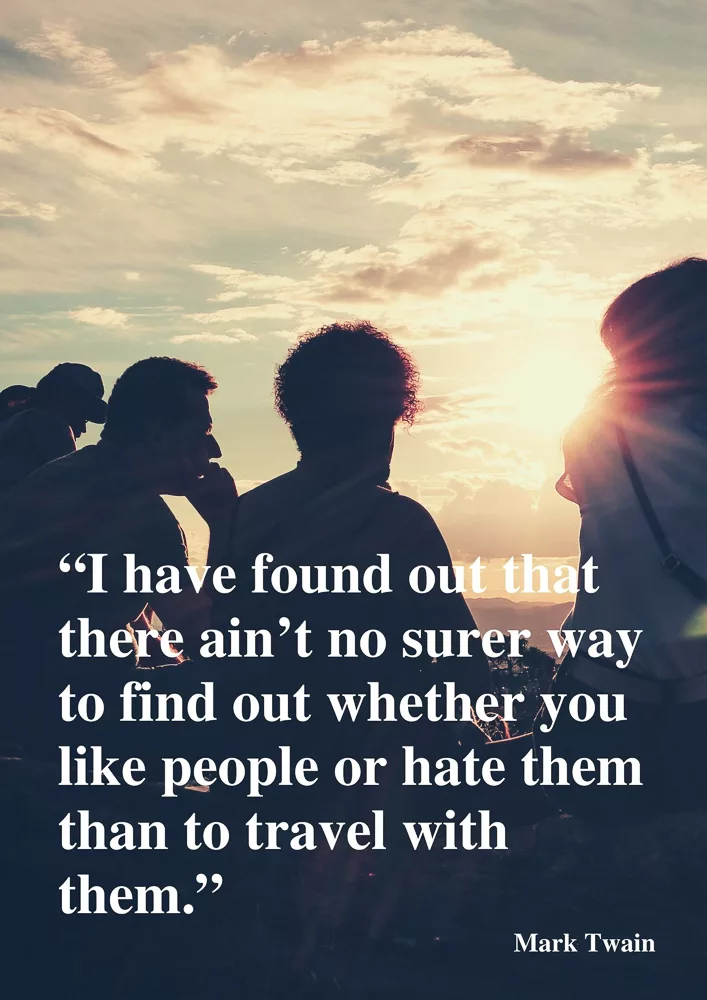
51. “The whole object of travel is not to set foot on foreign land; it is at last to set foot on one’s own country as a foreign land.” – G.K. Chesterton
52. “Too often travel, instead of broadening the mind, merely lengthens the conversation.” – Elizabeth Drew

53. “People don’t take trips, trips take people.” – John Steinbeck
54. “Stuff your eyes with wonder, live as if you’d drop dead in ten seconds. See the world. It’s more fantastic than any dream made or paid for in factories.” – Ray Bradbury
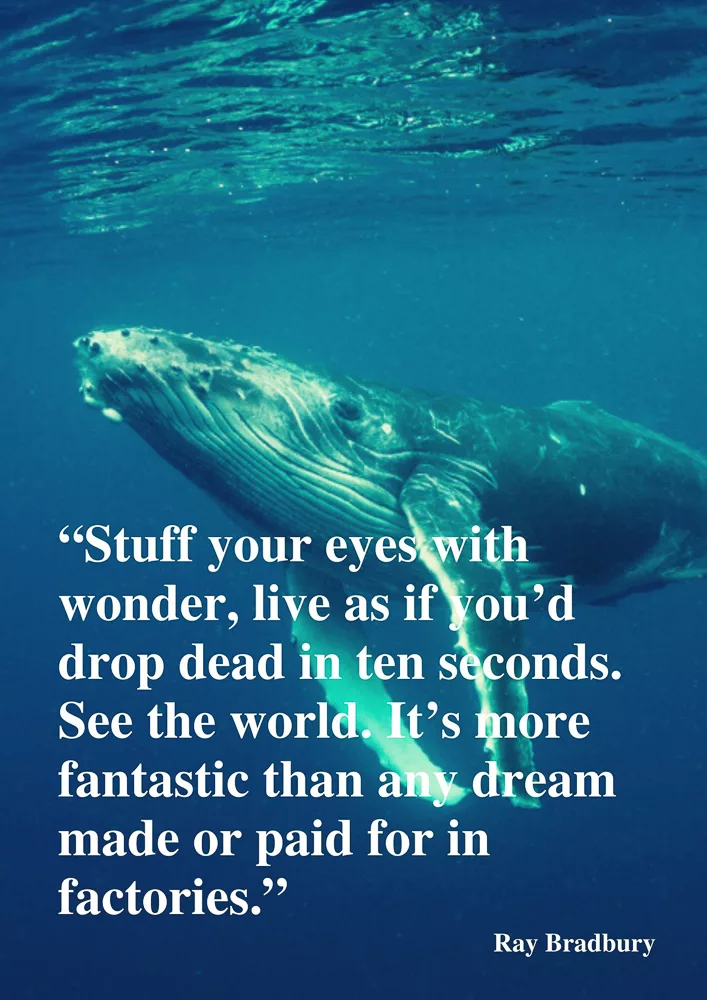
55. “Travel makes one modest. You see what a tiny place you occupy in the world.” – Gustave Flaubert
56. “The journey not the arrival matters.” – T. S. Eliot

57. “Time flies. It’s up to you to be the navigator.” – Robert Orben
58. “The real voyage of discovery consists not in seeking new landscapes, but in having new eyes.” – Marcel Proust
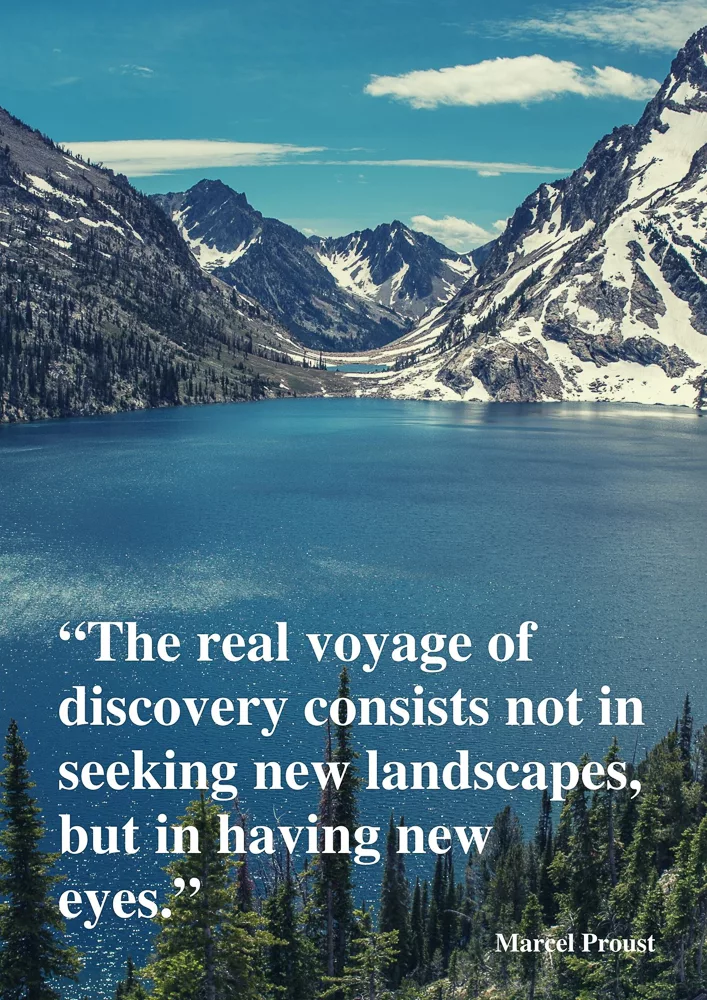
59. “I never travel without my diary. One should always have something sensational to read in the train.” – Oscar Wilde
60. “For my part, I travel not to go anywhere, but to go. I travel for travel’s sake. The great affair is to move.” – Robert Louis Stevenson

61. “If an ass goes travelling, he’ll not come home a horse.” – Thomas Fuller
62. “Travelling tends to magnify all human emotions.” – Peter Hoeg
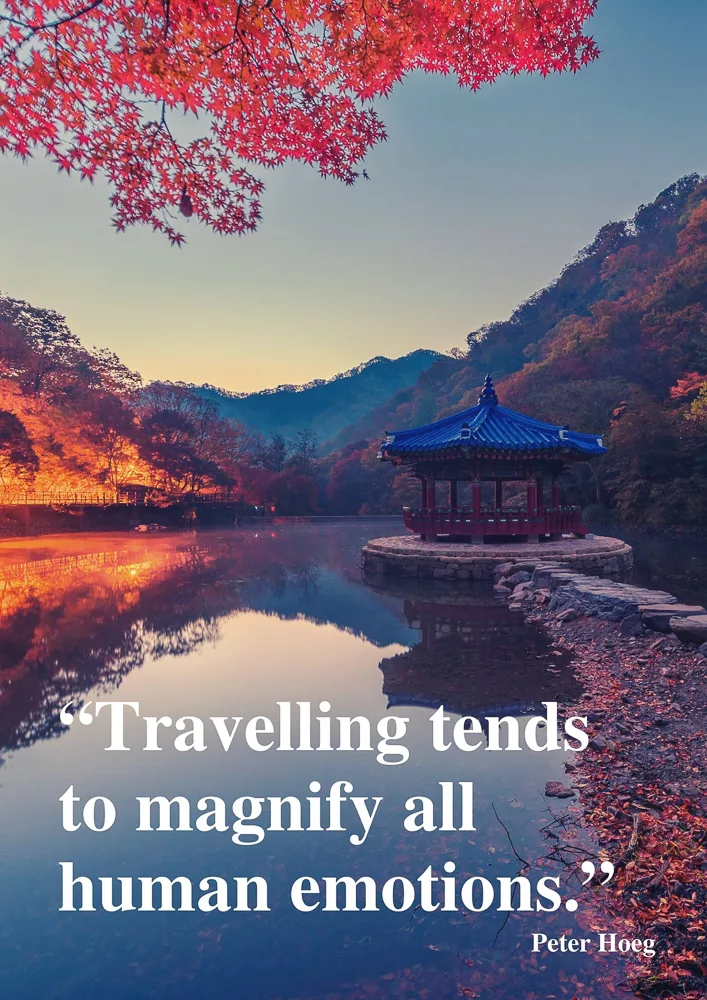
63. “To move, to breathe, to fly, to float, To gain all while you give, To roam the roads of lands remote: To travel is to live.” – Hans Christian Andersen
64. “To awaken quite alone in a strange town is one of the pleasantest sensations in the world.” – Freya Stark

65. “I am not the same having seen the moon shine from the other side of the world.” – Mary Anne Radmacher
66. “I always wonder why birds stay in the same place when they can fly anywhere on earth. Then I ask myself the same question.” – Harun Yahya
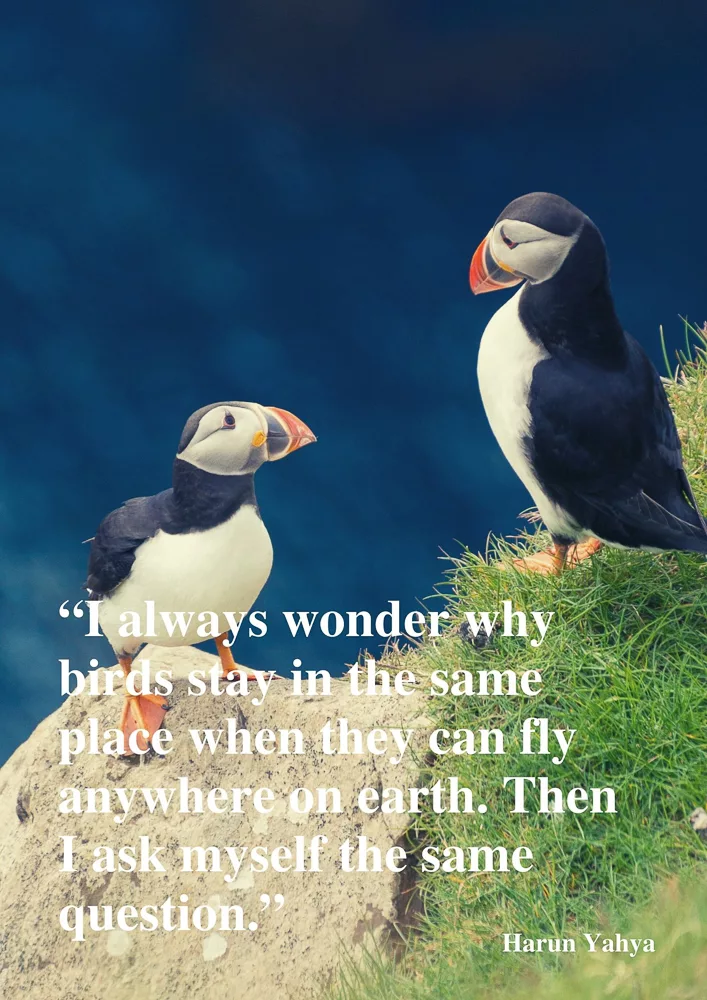
67. “I dislike feeling at home when I am abroad.” – George Bernard Shaw
68. “A wise traveler never despises his own country.” – Carlo Goldoni

69. “Man cannot discover new oceans unless he has the courage to lose sight of the shore.” – Andre Gide
70 “Traveling – it leaves you speechless, then turns you into a storyteller.” – Ibn Battuta
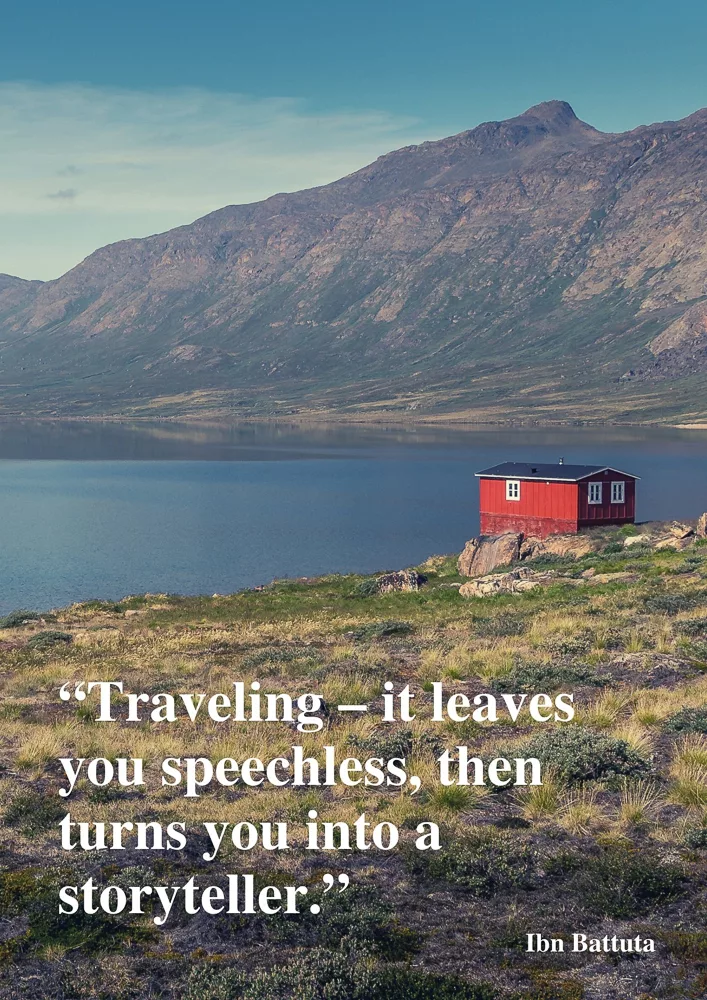
71. “We travel, some of us forever, to seek other places, other lives, other souls.” – Anais Nin
72. “Travel is more than the seeing of sights; it is a change that goes on, deep and permanent, in the ideas of living.” – Miriam Beard

73. “The gladdest moment in human life, methinks, is a departure into unknown lands.” – Sir Richard Burton
74. “A man of ordinary talent will always be ordinary, whether he travels or not; but a man of superior talent will go to pieces if he remains forever in the same place.” – Wolfgang Amadeus Mozart
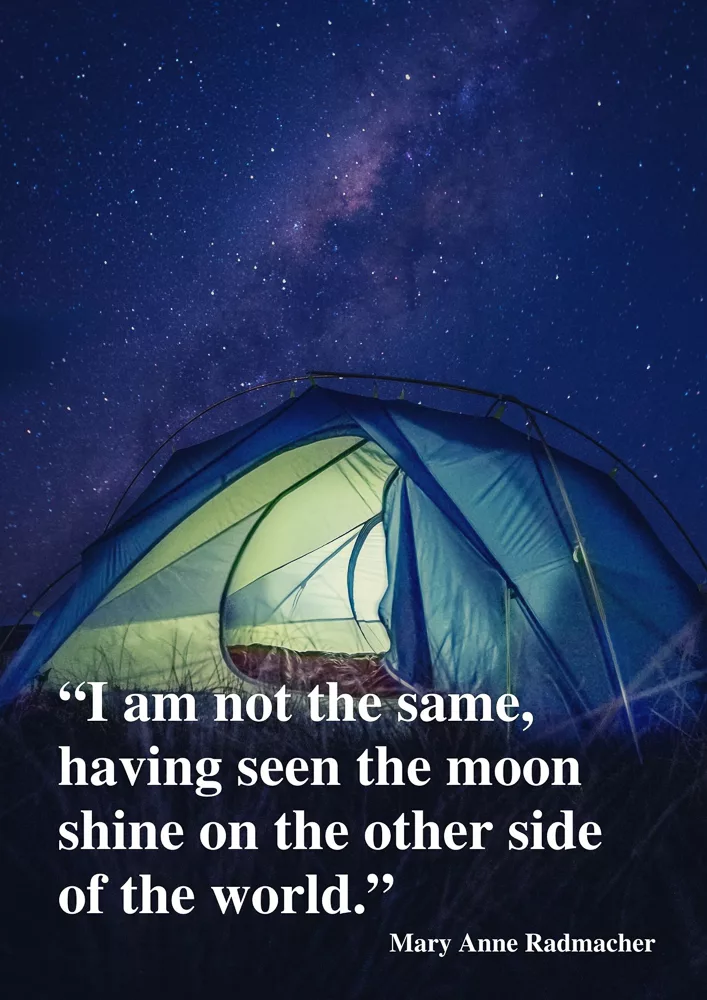
75. “He who would travel happily must travel light.” – Antoine de St. Exupery
76. “Our battered suitcases were piled on the sidewalk again; we had longer ways to go. But no matter, the road is life.” – Jack Kerouac

77. “The more I travelled the more I realised that fear makes strangers of people who should be friends.” – Shirley MacLaine
78. “Live your life by a compass, not a clock.” – Stephen Covey

78. “Our happiest moments as tourists always seem to come when we stumble upon one thing while in pursuit of something else.” – Lawrence Block
80. “Take only memories, leave only footprints.” – Chief Seattle – or Si’ahl
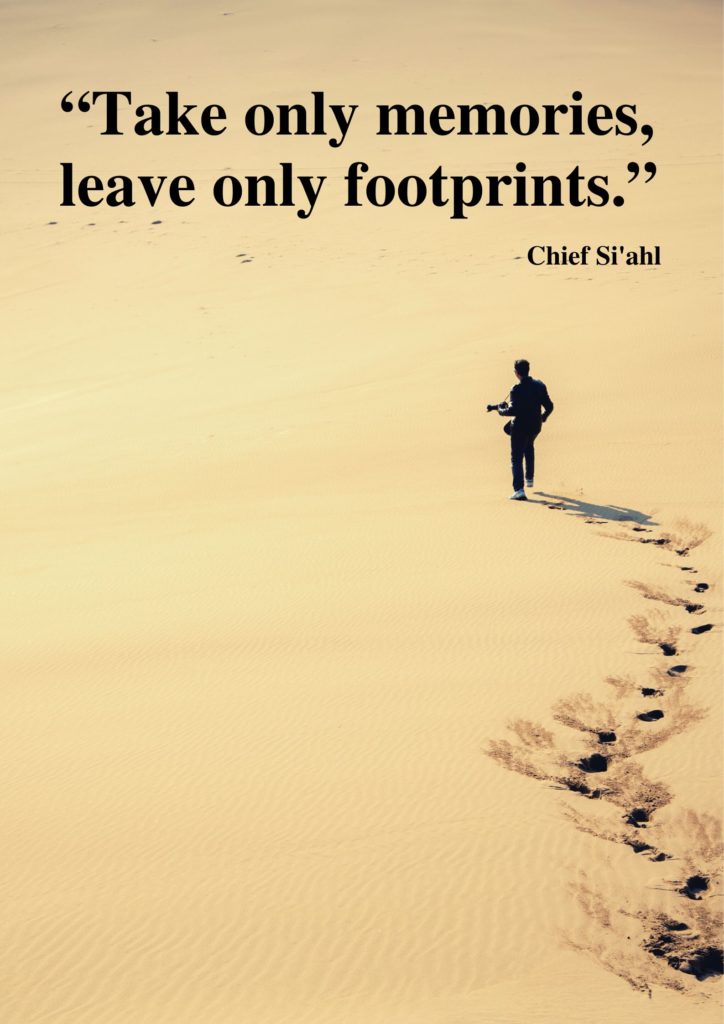
81. “Life is either a daring adventure or nothing at all.” – Helen Keller
82. “It is not down in any map; true places never are.” – Herman Melville
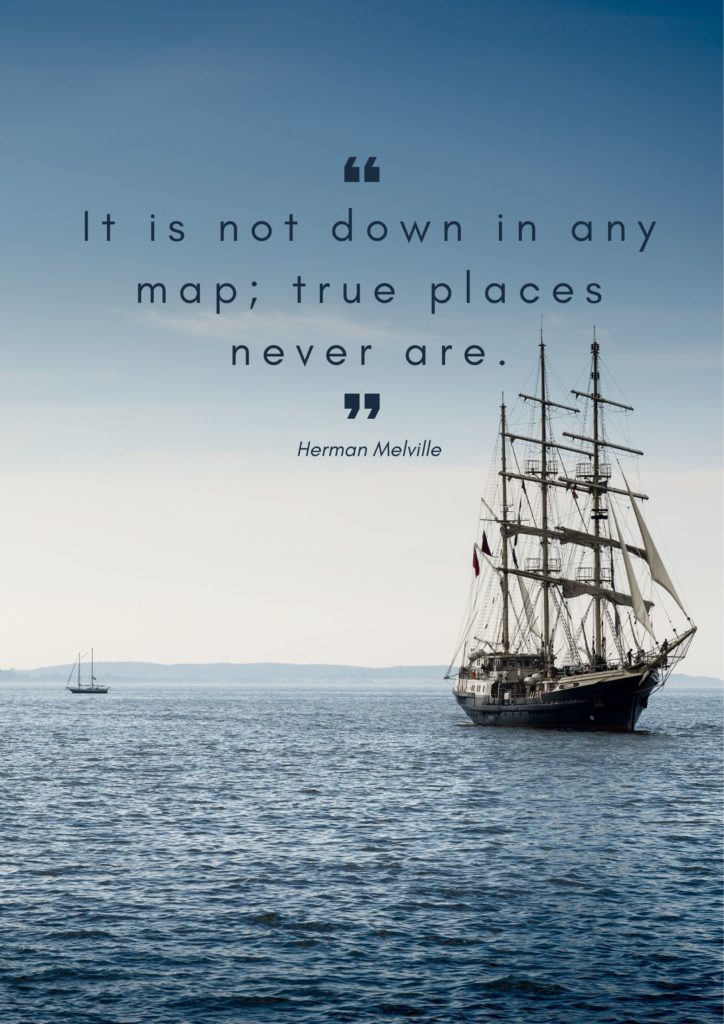
83. “We live in a world that is full of beauty, charm and adventure. There is no end to the adventures we can have if only we seek them with our eyes open.” – Jawaharlal Nehru
84. “The most beautiful thing in the world is, of course, the world itself” – Wallace Stevens
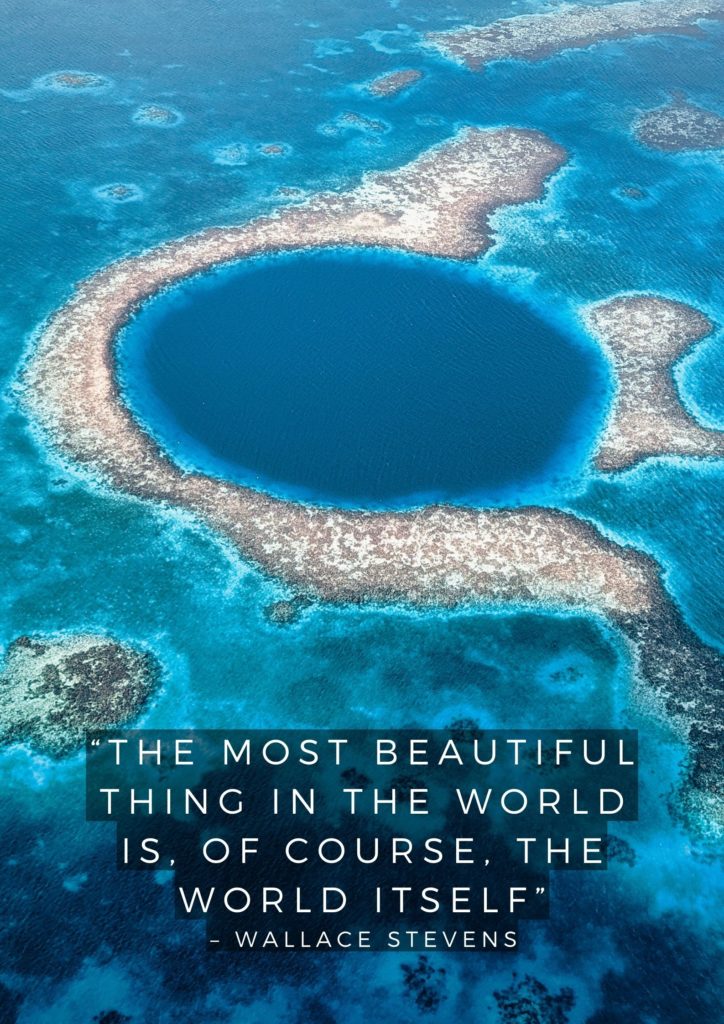
85. “Life begins at the end of your comfort zone.” – Neale Donald Walsch
86. “Paris is always a good idea.” – Julia Ormond (although it is often wrongly attributed to Audrey Hepburn)

87. “Stop worrying about the potholes in the road and enjoy the trip.” – Babs Hoffman
88. “Travel isn’t always pretty. It isn’t always comfortable. Sometimes it hurts, it even breaks your heart. But that’s okay. The journey changes you; it should change you. It leaves marks on your memory, on your consciousness, on your heart, and on your body. You take something with you. Hopefully, you leave something good behind.” – Anthony Bourdain
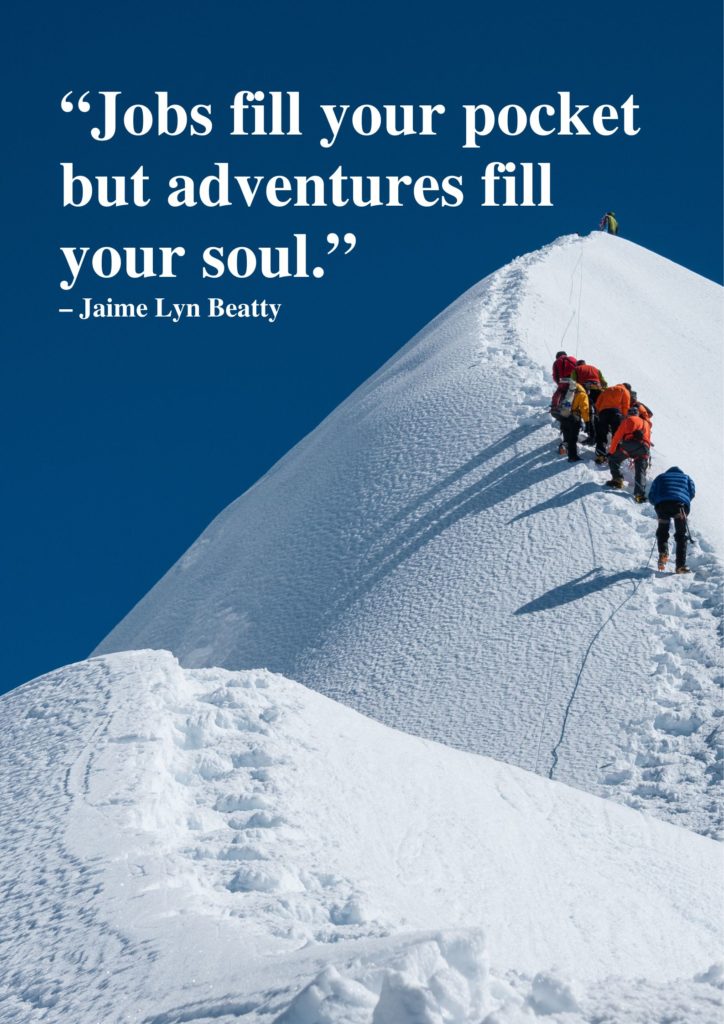
89. “Jobs fill your pocket but adventures fill your soul.” – Jaime Lyn Beatty
90. “It is in our nature to explore, to reach out into the unknown. The only true failure would be not to explore at all.” – Sir Ernest Shackleton
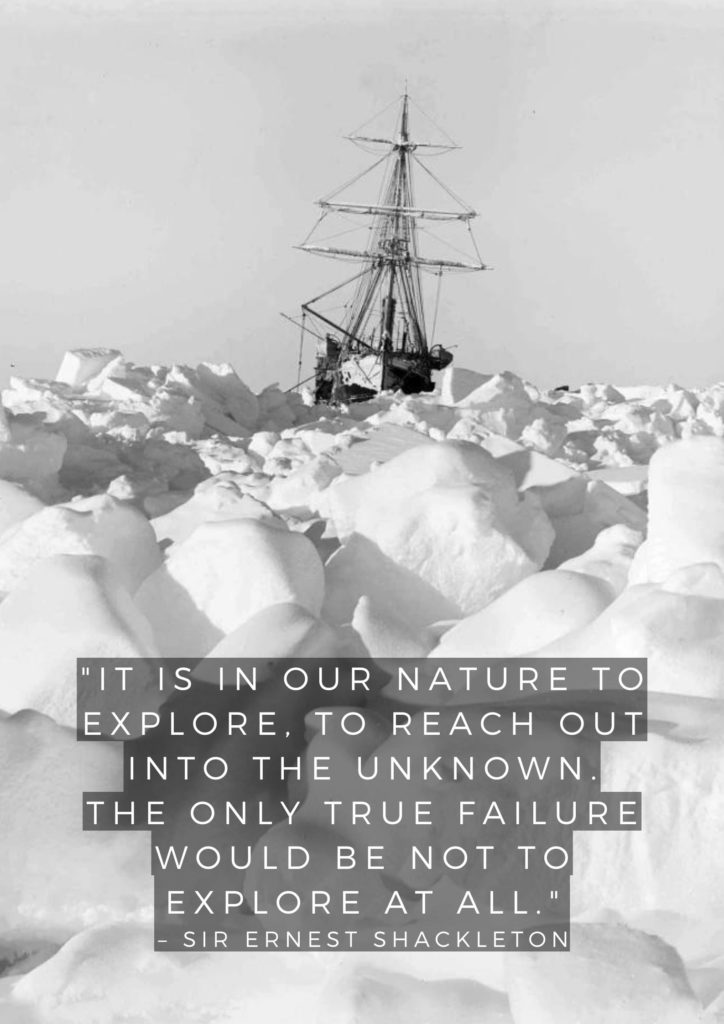
91. “Because in the end, you won’t remember the time you spent working in the office or mowing your lawn. Climb that goddamn mountain.” – Jack Kerouac
92. “Broad, wholesome, charitable views of men and things can not be acquired by vegetating in one little corner of the earth all one’s lifetime.” – Mark Twain
93. “Live with no excuses and travel with no regrets.” – Oscar Wilde
94. “Remember that happiness is a way of travel – not a destination.” – Roy M Goodman
95. “Twenty years from now you will be more disappointed by the things you didn’t do than by the ones you did do. So throw off the bowlines, sail away from the safe harbor. Catch the trade winds in your sails. Explore. Dream. Discover.” – Mark Twain (or possibly H Jackson Brown Jr )
Enjoyed this post? pin it for later…
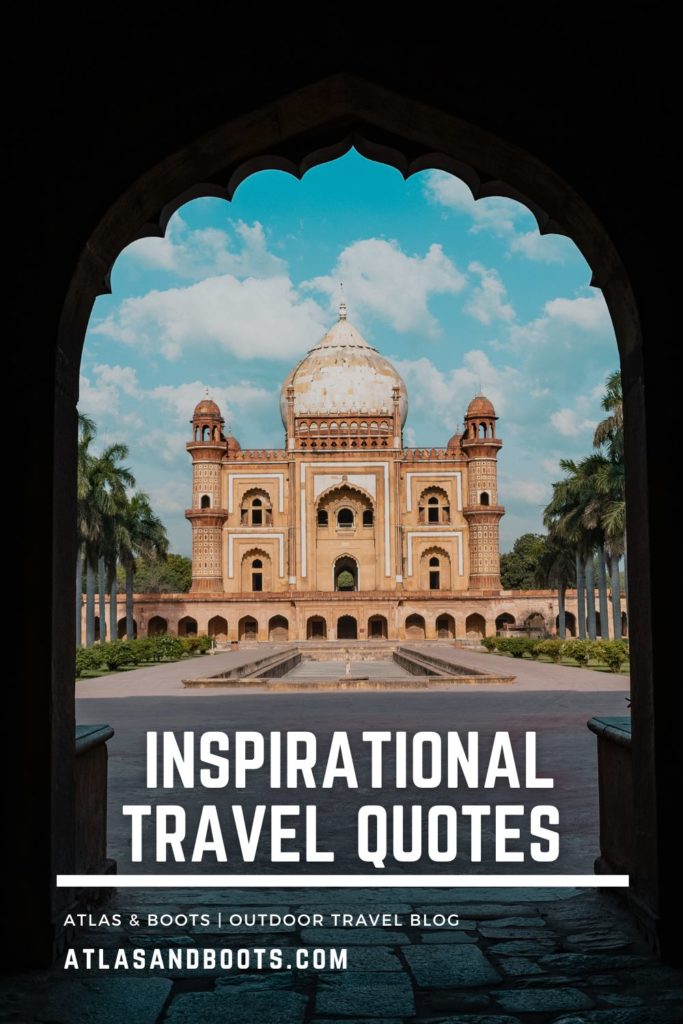
The Lonely Planet Ultimate Travel List is the definitive wish list of the best places to visit on earth – the perfect accompaniment to our selection of inspirational travel quotes.
You might also like:


101 Travel Quotes To Inspire Your Wanderlust
Travel quotes inspire me to remember why it was all worth it it in the first place.
Travel can seem like this glamorous adventure filled with perfect Kodak moments without a care in the world.
Any real traveler knows that this could not be further from the truth.
Traveling involves money, planning, creativity, energy, and a willingness to be uncomfortable.
To be a clean slate and allow the realities of the world to teach you something you cannot learn in a book.
I hope that these travel quotes inspire your wanderlust, and ignite your passion to see the world.
I scoured the internet and handpicked 101 travel quotes that spoke to me the most!

- “Not all those who wander are lost.” ― J.R.R. Tolkien
- “ Traveling’s not something you’re good at. It’s something you do. Like breathing.” – Gayle Foreman
- “ Travel is the only thing you buy that makes you richer.” –Unknown
- “ Travel makes one modest. You see what a tiny place you occupy in the world.” ― Gustav Flaubert
- “The real voyage of discovery consists not in seeking new landscapes, but in having new eyes.” – Marcel Proust
- “Why do you go away? So that you can come back. So that you can see the place you came from with new eyes and extra colors. And the people there see you differently, too. Coming back to where you started is not the same as never leaving.” ― Terry Pratchett
- “To Travel is to Live.” – Hans Christian Andersen
- “We live in a wonderful world that is full of beauty, charm, and adventure. There is no end to the adventures we can have if only we seek them with our eyes open.” – Jawaharial Nehru
- “I travel not to go anywhere, but to go. I travel for travel’s sake. The great affair is to move.” – Robert Louis Stevenson

- “Paris is always a good idea.” ― Audrey Hepburn
- “Life is either a daring adventure or nothing at all.” ― Helen Keller
- “I travel because it makes me realize how much I haven’t seen, how much I’m not going to see, and how much I still need to see.” – Carew Papritz
- “Wherever you go becomes a part of you somehow.” ― Anita Desai
- “The world is a book and those who do not travel read only one page.” ― Agustine of Hippo
- “A person susceptible to “ wanderlust ” is not so much addicted to movement as committed to transformation.” – Pico Iyer
- “Now more than ever do I realize that I will never be content with a sedentary life, that I will always be haunted by thoughts of a sun-drenched elsewhere.” ― Isabelle Eberhardt
- “Do not follow where the path may lead. Go instead where there is no path and leave a trail.” ― Ralph Waldo Emerson
- “ Travel is only glamorous in retrospect.” – Paul Theroux

- “The journey is the destination.” ― Dan Eldon
- “ Travel brings power and love back into your life.” ― Rumi Jalalud-Din
- “Oh the places you’ll go.” ― Dr. Seuss
- “A ship in a harbor is safe, but it not what ships are built for.” ― John A. Shedd
- “Live your life by a compass not a clock.” – Stephen Covey
- “The traveler sees what he sees. The tourist sees what he has come to see.” ― K. Chesterton
- “I have found out that there ain’t no surer way to find out whether you like people or hate them than to travel with them.” ― Mark Twain
- “Though we travel the world over to find the beautiful, we must carry it with us, or we find it not.” ― Ralph Waldo Emerson
- “ Traveling – it leaves you speechless, then turns you into a storyteller.” – Ibn Battuta

- “But that’s the glory of foreign travel , as far as I am concerned. I don’t want to know what people are talking about. I can’t think of anything that excites a greater sense of childlike wonder than to be in a country where you are ignorant of almost everything. Suddenly you are five years old again. You can’t read anything, you have only the most rudimentary sense of how things work, you can’t even reliably cross a street without endangering your life. Your whole existence becomes a series of interesting guesses.” ― Bill Bryson
- “I am not the same having seen the moon shine on the other side of the world.” ― Mary Anne Radmacher
- “If you’re twenty-two, physically fit, hungry to learn and be better, I urge you to travel – as far and as widely as possible. Sleep on floors if you have to. Find out how other people live and eat and cook. Learn from them – wherever you go.” ― Anthony Bourdain
- “To move, to breathe, to fly, to float, To gain all while you give, To roam the roads of lands remote, To travel is to live.” ― Hans Christian Andersen
- “To travel is worth any cost or sacrifice.” ― Elizabeth Gilbert
- “Some beautiful paths can’t be discovered without getting lost.” ― Erol Ozan
- “And then there is the most dangerous risk of all — the risk of spending your life not doing what you want on the bet you can buy yourself the freedom to do it later.” – Randy Komisar
- “The journey itself is my home.” ― Matsuo Basho
- “Do we really want to travel in hermetically sealed popemobiles through the rural provinces of France, Mexico and the Far East, eating only in Hard Rock Cafes and McDonalds? Or do we want to eat without fear, tearing into the local stew, the humble taqueria’s mystery meat, the sincerely offered gift of a lightly grilled fish head? I know what I want. I want it all. I want to try everything once.” ― Anthony Bourdain

- “Borders? I have never seen one. But I have heard they exist in the minds of some people.” ― Thor Heyerdahl
- “Here today, up and off to somewhere else tomorrow! Travel , change, interest, excitement! The whole world before you, and a horizon that’s always changing!” ― Kenneth Grahame
- “Where you come from does matter — but not nearly as much as where you are headed.” ― Jodi Picoult
- “Move to a new country and you quickly see that visiting a place as a tourist, and actually moving there for good, are two very different things.” ― Tahir Shah
- “Most travel , and certainly the rewarding kind, involves depending on the kindness of strangers, putting yourself into the hands of people you don’t know and trusting them with your life.” ― Paul Theroux
- “All my life I have lived and behaved very much like the sandpiper just running down the edges of different countries and continents, looking for something.” ― Elizabeth Bishop
- “And if travel is like love, it is, in the end, mostly because it’s a heightened state of awareness, in which we are mindful, receptive, in dimmed by familiarity and ready to be transformed. That is why the best trips, like the best love affairs, never really end.” ― Pico Iyer
- “You thought too hard. Same with travel . You can’t work too much at it, or it feels like work. You have to surrender yourself to the chaos. To the accidents.” ― Gayle Forman
- “The best traveler is one without a camera.” ― Kamand Kojouri

- “He who would travel happily must travel light.” ― Antoine de St. Exupery
- One’s destination is never a place. It’s a new way of seeing things. ― Henry Miller
- You’ll miss the best things if you keep your eyes shut. ― Dr. Suess
- There’s the whole world at your feet. ― Mary Poppins
- “Wherever you go, go with all your heart.” – Confucius
- “The man who goes alone can start today; but he who travels with another must wait till that other is ready.” ― Henry David Thoreau
- “The impulse to travel is one of the hopeful symptoms of life.” ― Agnes Repplier
- “We travel , some of us forever, to seek other places, other lives, other souls.” – Anais Nin
- “ Travel is more than the seeing of sights; it is a change that goes on, deep and permanent, in the ideas of living.” – Miriam Beard

- “ Traveling tends to magnify all human emotions.” — Peter Hoeg
- “If you reject the food, ignore the customs, fear the religion and avoid the people, you might better stay at home.” – James Michener
- “Man cannot discover new oceans unless he has the courage to lose sight of the shore.” – Andre Gide
- “The world is a book, and those who do not travel read only a page.” ― Saint Augustine
- “You don’t have to be rich to travel well.” – Eugene Fodor
- “Those who know nothing of foreign languages know nothing of their own.” – Johann Wolfgang von Goethe
- “Two roads diverged in a wood, and I – I took the one less traveled by” — Robert Frost
- “The best education I have ever received was through travel .” ― Lisa Ling
- “I travel a lot; I hate having my life disrupted by routine.” – Caskie Stinnett

- “We wander for distraction, but we travel for fulfilment.” — Hilaire Belloc
- “I always encourage people to get out there, travel the world, see new things, experience new people, experience new food, experience new culture. What happens is that helps you to grow and be your best self.” — Karamo Brown
- “Life begins at the end of your comfort zone.” – Neale Donald Walsch
- “To travel is to discover that everyone is wrong about other countries.” – Aldous Huxley
- “Don’t tell me how educated you are, tell me how much you have travelled .” – Mohammed
- “Life is an unfoldment, and the further we travel the more truth we can comprehend. To understand the things that are at our door is the best preparation for understanding those that lie beyond.” ― Hypatia
- “Nobody can discover the world for somebody else. Only when we discover it for ourselves does it become common ground and a common bond and we cease to be alone.” – Wendell Berry
- “The first condition of understanding a foreign country is to smell it.” – Rudyard Kipling
- “Why do you go away? So that you can come back. So that you can see the place you came from with new eyes and extra colors. And the people there see you differently, too. Coming back to where you started is not the same as never leaving.” – Terry Pratchett

- “Take only memories, leave only footprints.” – Chief Seattle
- “The road is there, it will always be there. You just have to decide when to take it.” ― Chris Humphrey
- “If we were meant to stay in one place, we’d have roots instead of feet.” ― Rachel Wolchin
- “Own only what you can always carry with you: know languages, know countries, know people. Let your memory be your travel bag.” ― Aleksandr Solzhenitsyn
- “Investment in travel is an investment in yourself.” ― Matthew Karsten
- “If you wish to travel far and fast, travel light. Take off all your envies, jealousies, unforgiveness, selfishness and fears.” – Cesare Pavese
- “Food makes travel so exceptional, because you get to taste what it’s actually supposed to taste like. To eat the real Pad Thai or finally have a proper curry is something pretty amazing.” ― Meghan Markle
- “ Travel can be one of the most rewarding forms of introspection.” – Lawrence Durrell
- “Do you really want to look back on your life and see how wonderful it could have been had you not been afraid to live it?” – Caroline Myss

- “Tourists don’t know where they’ve been, travelers don’t know where they’re going.” – Paul Theroux
- “ Travel is never a matter of money but of courage.” – Paulo Coelho
- “A traveler without observation is a bird without wings.” – Moslih Eddin Saadi
- “Because in the end, you won’t remember the time you spent working in the office or mowing your lawn. Climb that goddamn mountain.” ― Jack Kerouac
- “There is a part of me that still wants to go out and grab a backpack and unplug – not take a cellphone or even a camera and just get out there and experience the world and travel . I have yet to do that, but someday I hope.” ― Emilio Estevez
- “You develop a sympathy for all human beings when you travel a lot.” – Shakuntala Devi
- “Fill your life with experiences, not things. Have stories to tell, not stuff to show.” – Unknown
- “Southeast Asia has a real grip on me. From the very first time I went there, it was a fulfillment of my childhood fantasies of the way travel should be.” ― Anthony Bourdain
- Airline glamour never promised anything as mundane as elbow room, much less a flat bed, a massage, or an arugula salad. It promised a better world. Service and dress reflected the more formal era, but no one expected air travel to be comfortable. It was amazing just to have hot food above the clouds.” ― Virginia Postrel
- “It feels good to be lost in the right direction.” ― Unknown
- “Stuff your eyes with wonder, live as if you’d drop dead in ten seconds. See the world. It’s more fantastic than any dream made or paid for in factories.” ― Ray Bradbury
What was your favorite quote from this list? Have any other travel and wanderlust quotes that you love? Let me know in the comments below!
***PIN IT FOR LATER!****

Related Links You’d Love:
How Far Have YOU Traveled From Home?
The Ultimate 14 Day Thailand Itinerary
Seattle Itinerary: 3 Days In Seattle

You May Also Like
Top 15 Destinations in 2022 For Digital Nomads
51 comments.
What a wonderful list of quotes! My favorite is probably the first one!
Thank you for reading!
As a fellow world traveler, I simply adore travel quotes! Thank you for posting!! 🙂
You’re very welcome!
Great quotes! I am saving this for later!
I just love your blog! Your picture with the elephants made me smile!! This post really makes you think about traveling; the quotes from so many travelers! loved it!!
Wow thank you for your very kind words!
I liked, “Because in the end, you won’t remember the time you spent working in the office or mowing your lawn. Climb that goddamn mountain.” My fiance and I are new full-time RVers who are hoping to embrace the travel life without having to worry about a 9-5 office job.
Wow, that’s very exciting!
Jennifer Morrison
I agree with the Hans Christian Andersen quote! Sadly, I put myself on a travel moratorium for two years. UGH. But, it is going to mean Italy in 2020, so it is totally worth it!
I can’t wait to go to Italy one day. I’m excited for you!
Lie reading about travel
So many beautiful words and so many places to see!
Thank you for visiting!
I love quotes and I love travel, so this post is perfect! I can’t wait for my next big trip.
Thank you so much!
Tricia Snow
I never knew there were so many travel quotes! Thank you for sharing!
You’re welcome!
Traveling is the only thing you buy that makes you richer!! 100% agree. We try to be frugal to save for our kids and retirement but spend money every year on vacation. Great to see other cultures, relax, and try new foods.
A good vacation, when done right, can be priceless!
Your post makes me want to leave for a trip right now! Soon very soon.
I highly encourage it!
OH MY GOODNESS! What a great list! I love this blog! I am a wanderlust! will be coming back to these quotes on a regular basis!
Thank you so much! I would love if you came back 🙂
These are so great! There are so many that I loved!
Kathryn at QuestFor47
Well now I just want to pack my bags and get out there! Too bad I have to be at work in a couple hours! Thanks for sharing!
Tonya @ the Writer Mom
That’s a lot of travel quotes! Very inspiring.
Kathy Phillips
I love these quotes. Especially the one about seeing things and people with new eyes. That is so true.
Great list! This must have taken you a while to compile!
Thanks! And yes, it took me 2 or 3 days!
Clarissa Miller
All of these quotes are so inspiring! Now I want to take a trip!
Arianny Rodriguez
“Traveling – it leaves you speechless, then turns you into a storyteller.” is my favorite!
I love all of these quotes! I especially love the I e that says travelling is the only thing you buy that makes you richer 🙂
Im always looking for new quotes for my IG Page. Thanks so much.
What an amazing list of fantastic quotes!!! I love the one about travel instilling a sense of modesty because it shows us the tiny place we occupy in this world. Sooo true.
I love that one too!
I love the quote that says that the road will always be there, you have to choose to take it. It reminds me of Glinda the good witch in the Wizard of Oz, when she tells Dorothy that she’s always had the power. It is within us.
That’s a great comparison!
Love these quotes! I travel to experience new adventures. Travel for sake of traveling sounds like me.
Thanks for visiting!
Where is your next destination, Dominique?
Hopefully, I’ll be traveling to Italy, France, and England next month!
Leave a Reply Cancel reply
Your email address will not be published. Required fields are marked *
- New Zealand
- Greek Mythology
- Entertainment
- The Olympic Game
- 12 Super-Rich Members
- 9 Muses of Greek Gods Paradise
- Gifts, Wills and Bequests
- Book Your Adventure!

20 of the Most Beautiful Travel Words and their Unique Greek Origins
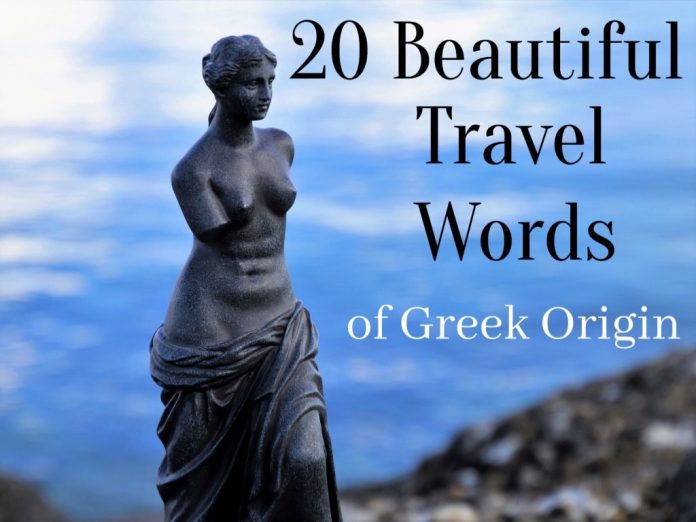
Beautiful travel words of Greek origin inspire and give meaning to all types of travel experiences.
By knowing about these Greek-related travel words, you will, in effect, gain a greater insight into the world of travel, especially when visiting Greece.
All of these beautiful travel words have something special about them.
It could be how a word sounds, the feelings, and wanderlust they inspire, the beautiful images they bring to mind, or some special uniqueness that makes them memorable.
The Most Beautiful Travel Words of Greek Origin
One thing is for sure, this list of the most beautiful travel words with unique Greek origins will expand your vocabulary—which is always a good thing.
I’ve also included another list of travel words at the end of this list (after the 20 most beautiful travel words) that didn’t make it into the top twenty.
The reason for doing this is so you can fully appreciate all the Greek-related travel words I considered for inclusion in this list of beautiful travel words.
It wasn’t easy to settle on these twenty best travel words of Greek origin, but I’m happy enough with the result.
Have a look and see what you think.
1. Aegean Sea – Travel Words
Origin: Greek
A beautiful word that brings to mind a few of the most beautiful Greek Islands , including Santorini, Mykonos, and Crete—to name a few.
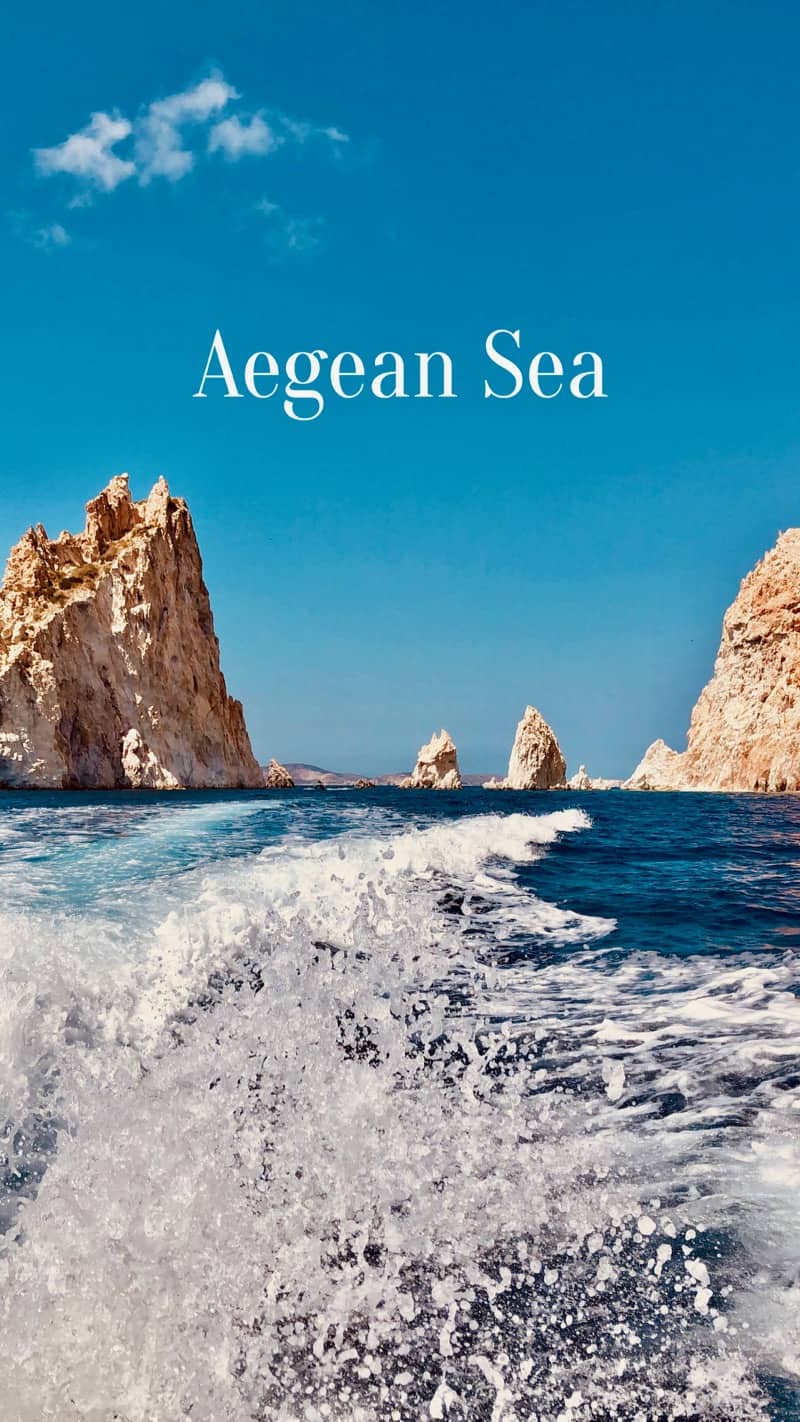
“Happy is the man, I thought, who, before dying, has the fortune to sail the Aegean sea.” – Nikos Kazantzakis.
According to Greek Mythology, the Aegean Sea owes its name to an ancient King of Athens, Aigeas (Aegeas).
Aegeas was the father of the famous Greek hero, Theseus, who slew the Minotaur on the island of Crete.
When returning to Athens, Theseus sailed back to Athens with black sails after forgetting to change the ship’s sails to white ones.
As a result, his father thought it meant that his son hadn’t survived the ordeal. The fateful error led to the King’s tragic death since he decided to end his life by jumping into the sea.
Eventually, the surrounding sea would become known as the Aegean Sea.
Aegean Airlines also took its name from the same source.
The word Athens immediately conjures up beautiful images of The Parthenon.
Most overseas travelers first arrive by plane to Athens when they vacation in Greece.
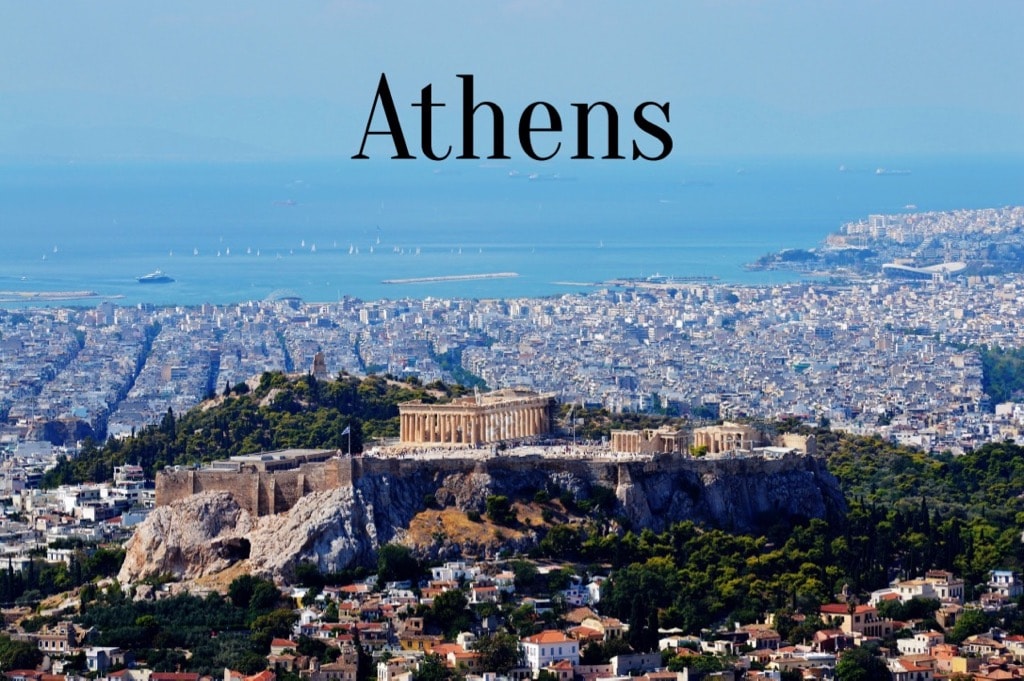
The city received its name from the Goddess Athena.
In Greek Mythology, Athena and Poseidon had a contest to see who would become the patron of the Greek city.
Athena gifted the people the olive tree, while Poseidon made a spring gush forth from rocks.
Athena’s gift was deemed the best of the two by the people, so the city was named in her honor.
I had to include this word as one of the most beautiful travel words of Greek origin.
Athena, the Goddess of wisdom, is also beautiful, as proven by the famous beauty contest between Aphrodite, Athena, and Hera.
It wouldn’t have been smart on my part not to have included Athens in a list of the most beautiful travel words.
An atlas is a collection or book of maps, but it’s also an airline company.
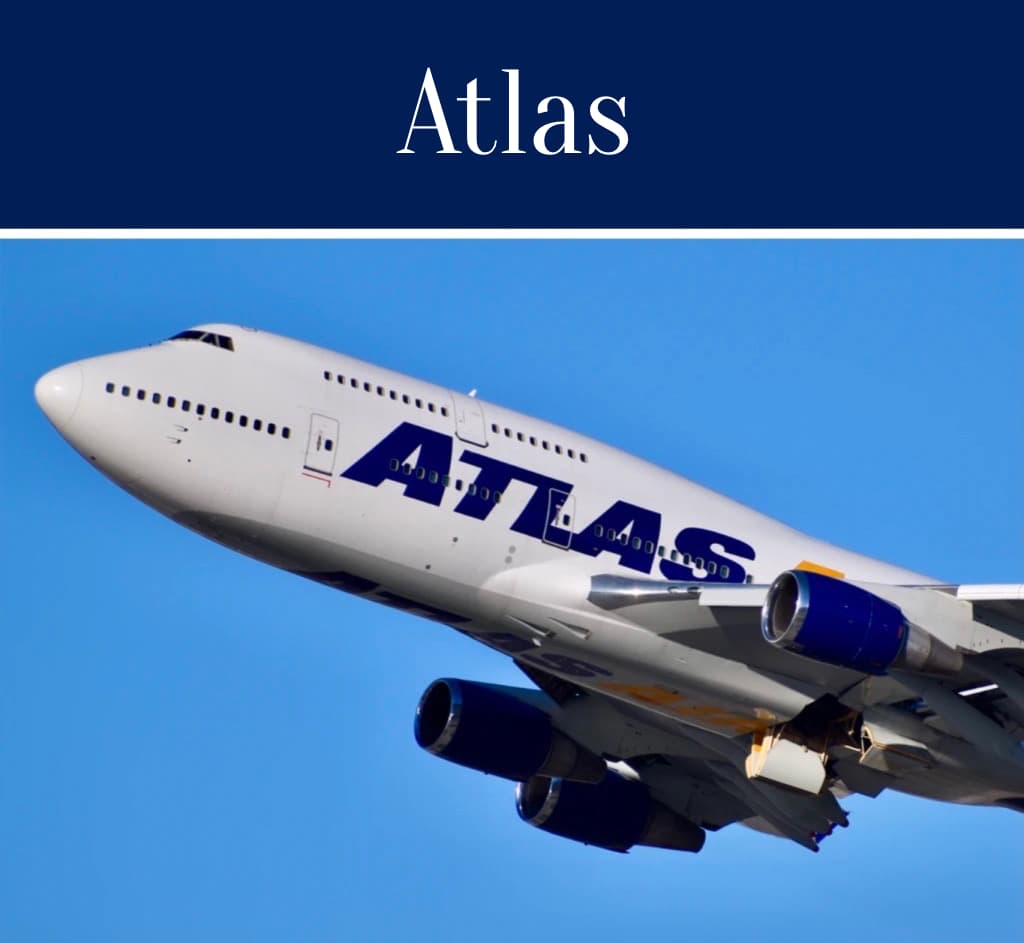
According to Greek legend, Atlas was a Titan condemned to carry the heavens upon his shoulders.
The Titan Atlas is the reason why we can all travel around and explore the world.
4. Eleutheromania
Have you ever felt the intense desire for freedom? Well, the word for this feeling is Eleutheromania.
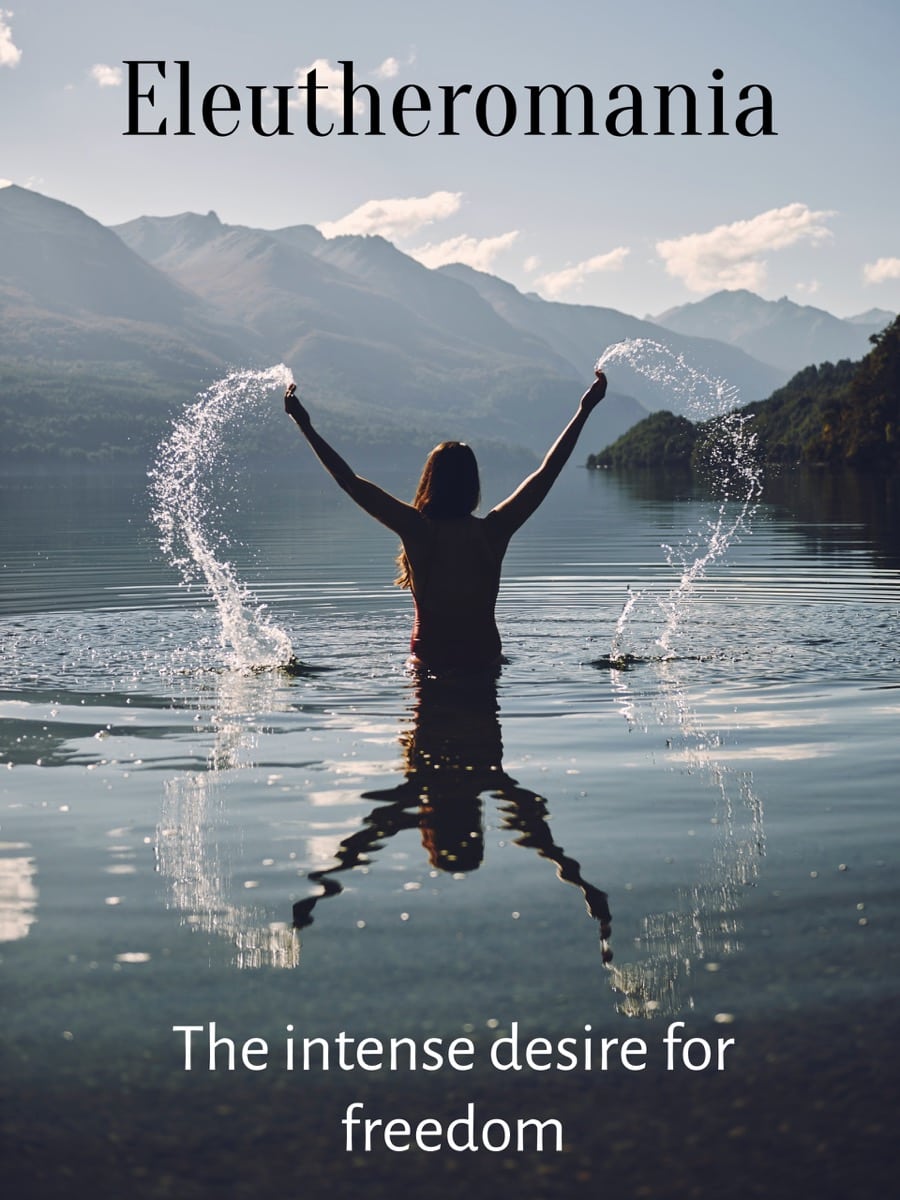
It’s similar to the feeling of wanderlust in different languages. Travel is one way that makes people feel free, and eleutheromania is the desire for that feeling.
It comes from Ancient Greek ἐλευθερία (eleuthería, ‘freedom’) plus -mania.
It’s another word for Paradise!
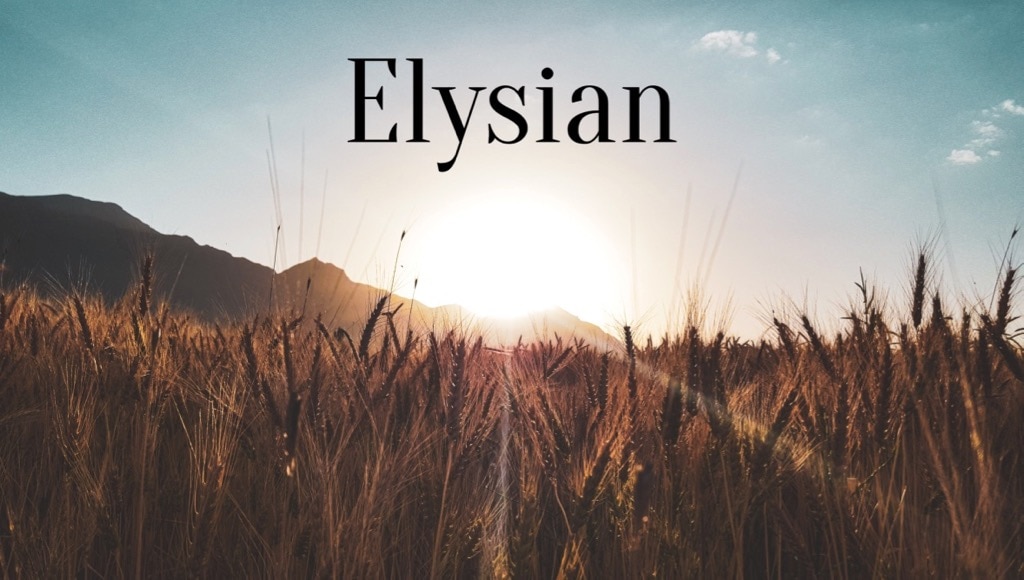
Greek Mythology deemed the Elysian Fields as being a heavenly resting place after death.
It was seen as the go-to-place in the afterlife. Sadly not everyone was allowed entry into Olympus, the home of the Gods.
One of France’s main streets is named after this heavenly abode, the Champs-Élysees in Paris.
The street is famous for connecting the Arc de Triomphe with the Place de la Concorde. Many consider it to be one of the world’s most famous commercial streets.
Elysian has to be one of the most beautiful travel words because everyone wants to end up in paradise one day. At least you can visit it in Paris.
6. Eudaimonia
It’s that happy feeling you get when you travel.

Feeling great when traveling, then the Greek word that describes it is eudaimonia.
It comes from Greek philosophy that has been translated as meaning happiness or well-being.
It has to be one of the biggest reasons why many people love traveling and exploring new places.
Europe is where it’s all at. You have Greece, Italy, and so many other great countries to visit.
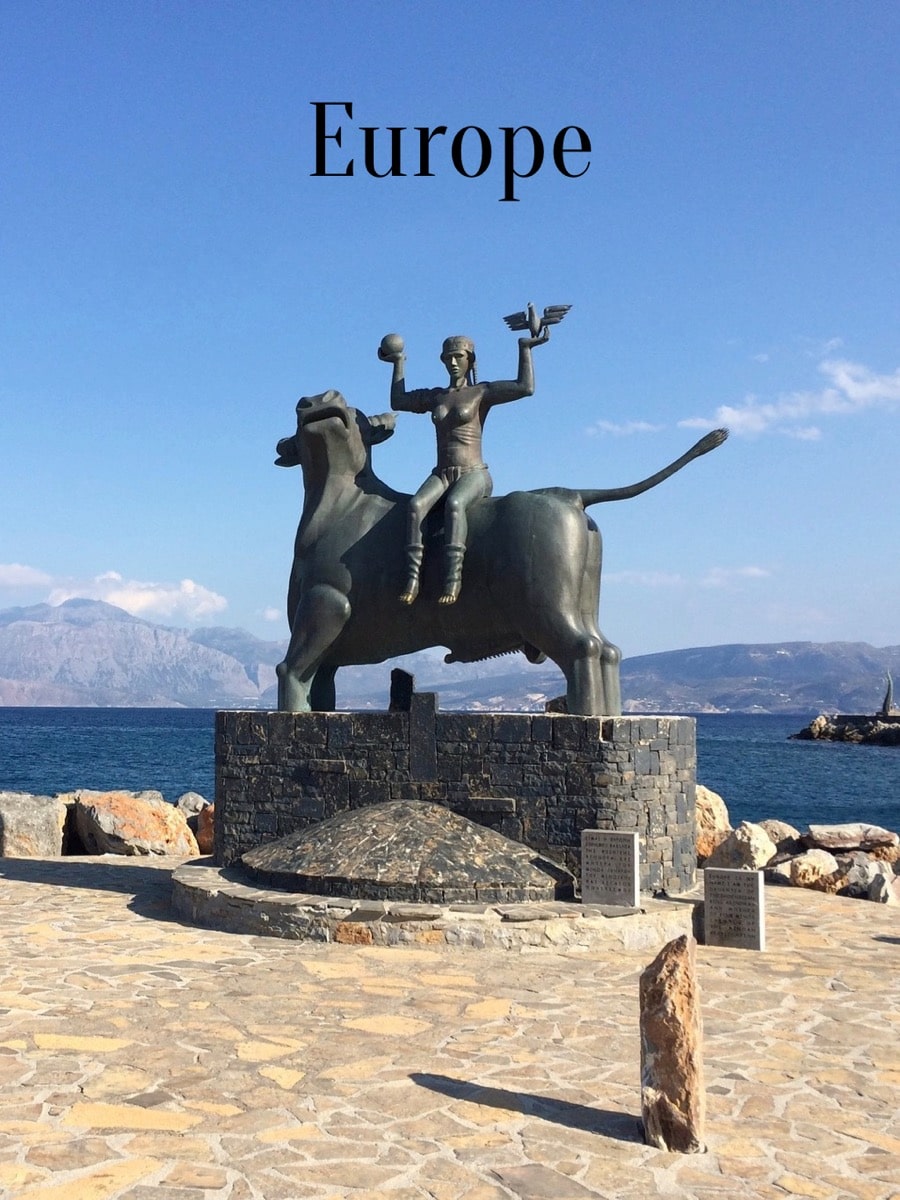
It all started with Europa, the mythological princess who ended up being seduced by Zeus.
Zeus took her to the island of Crete across the ocean after the princess sat on his back while he was disguised in the form of a beautiful white bull.
At the time, she had no idea that it was really Zeus, the king of the Gods.
No one could have foreseen that Europa would bestow her name to a group of countries that would one day be known as Europe.
It has become one of the most sought out travel destinations globally, and it all started with a weird sea voyage of her own.
You have the world, and then you have the Galaxy.
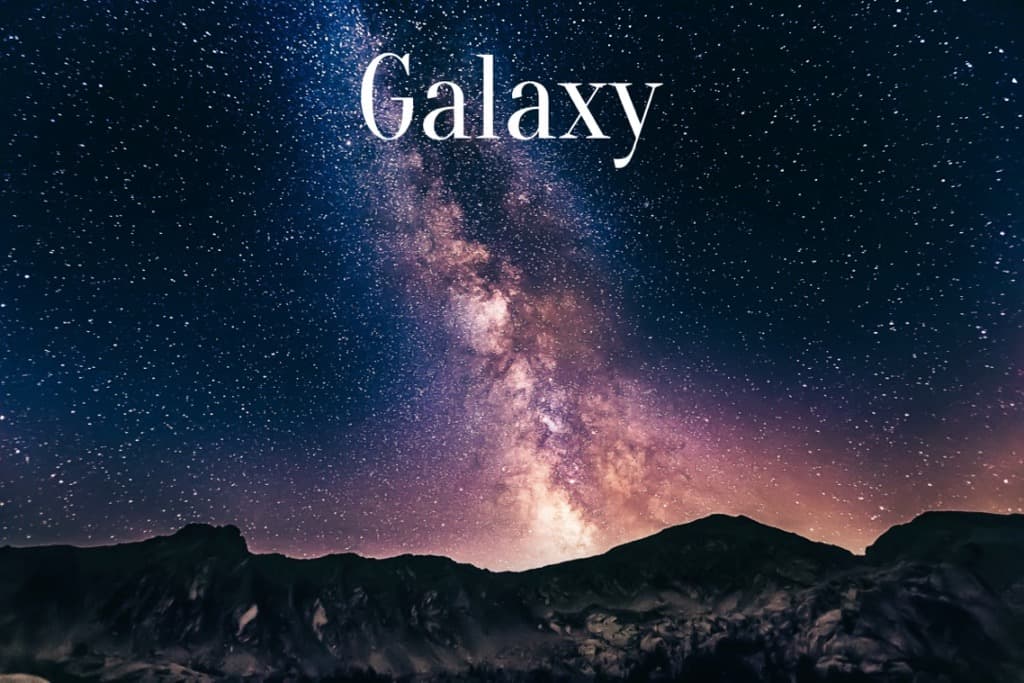
It all started with the Milky Way, which is based on the Greek myth of Heracles, who, as a child, spilled some milk.
The word is derived from the Greek galaxias (kuklos) ‘milky (vault)’, from gala, galakt- ‘milk.’
I thought about it carefully, but I couldn’t leave Greece out from this list of beautiful travel words.
Greece is where many tourists dream of visiting, especially during the Greek summer.
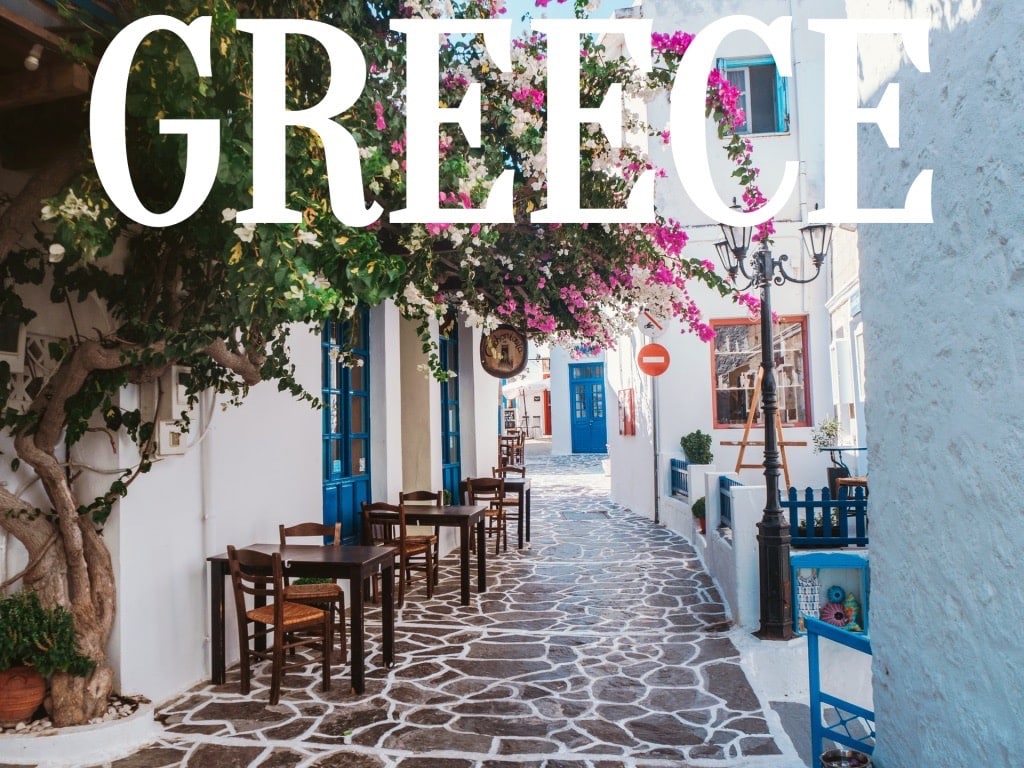
Aristotle used the term “Graiko” as the name for the first inhabitants of the region.
It was later adopted by the Romans and turned into “Graecus,” a Latin word, to describe the people on the land now known as Greece.
10. Greek Islands
If there is one word better than Greece, then it would have to be the Greek Islands.
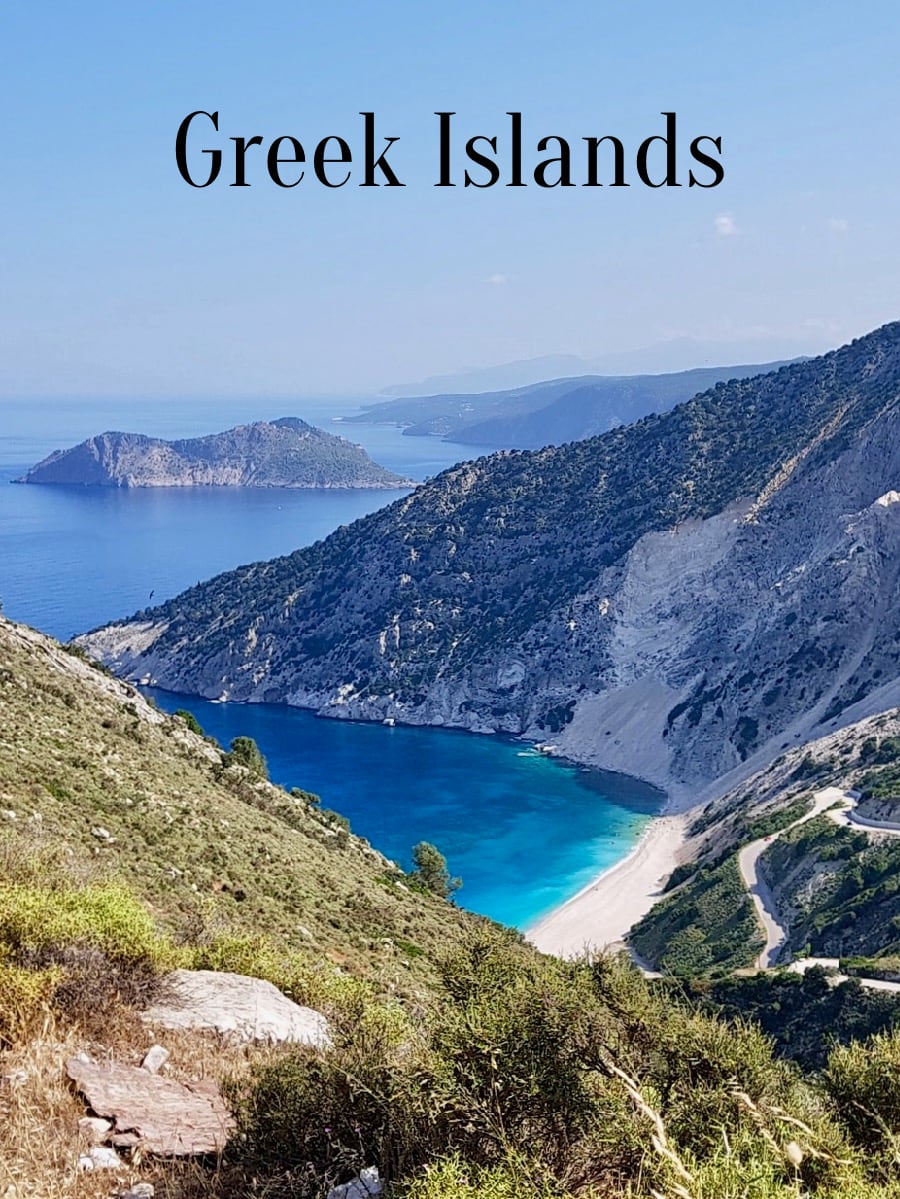
Santorini and Mykonos come to mind immediately when thinking about the Greek Islands.
With 227 inhabited Greek Islands to explore, and the rest, which number from 1200 to 6000 depending on the minimum size you consider, there’s something for everyone.
Once you’ve visited one of the best Greek Islands, you’ll be hooked forever.
11. Halcyon
The English word “halcyon ” describes an idyllically peaceful and perfect time that occurred in the past.
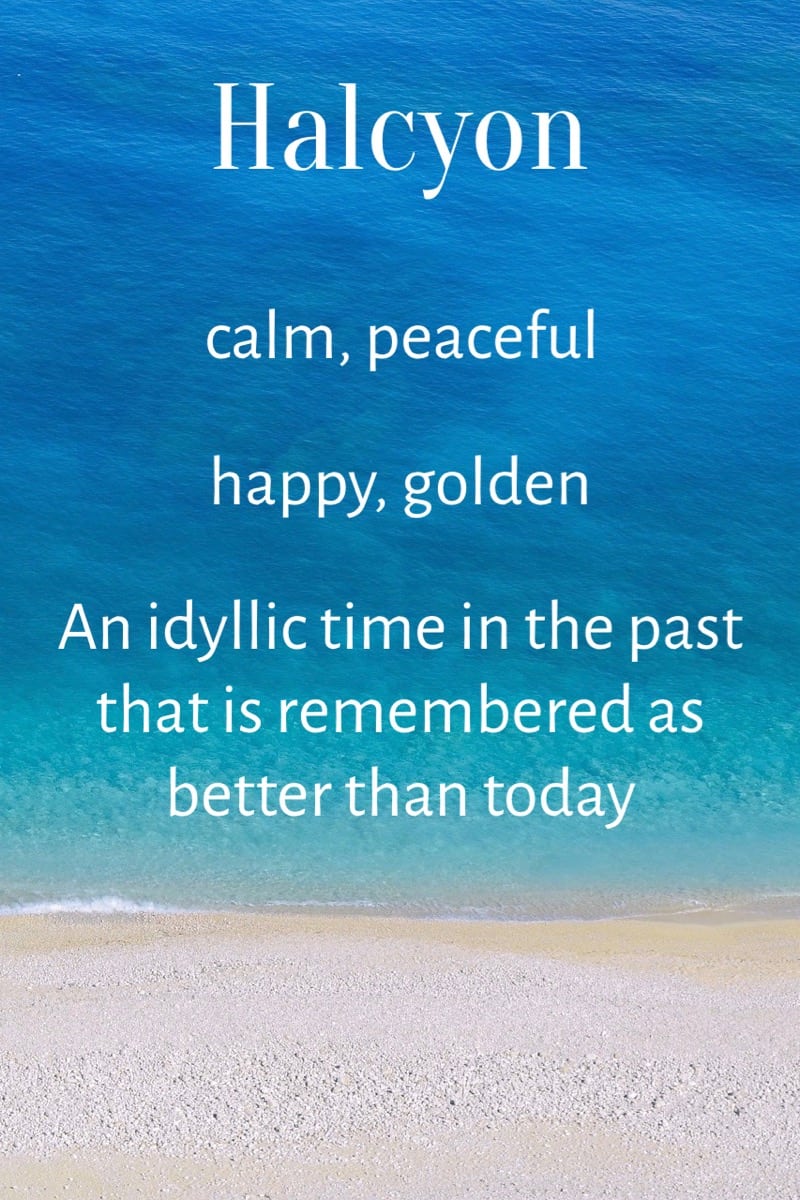
Halcyon means “kingfisher” in Greek.
A halcyon was a legendary bird in Greek Mythology that made its nest on the Aegean Sea. As the daughter of Aeolus, the god of winds, the bird possessed the power to calm the rough winds and waves.
The name of the God of travel deserves a place in the most beautiful Greek travel words for obvious reasons.
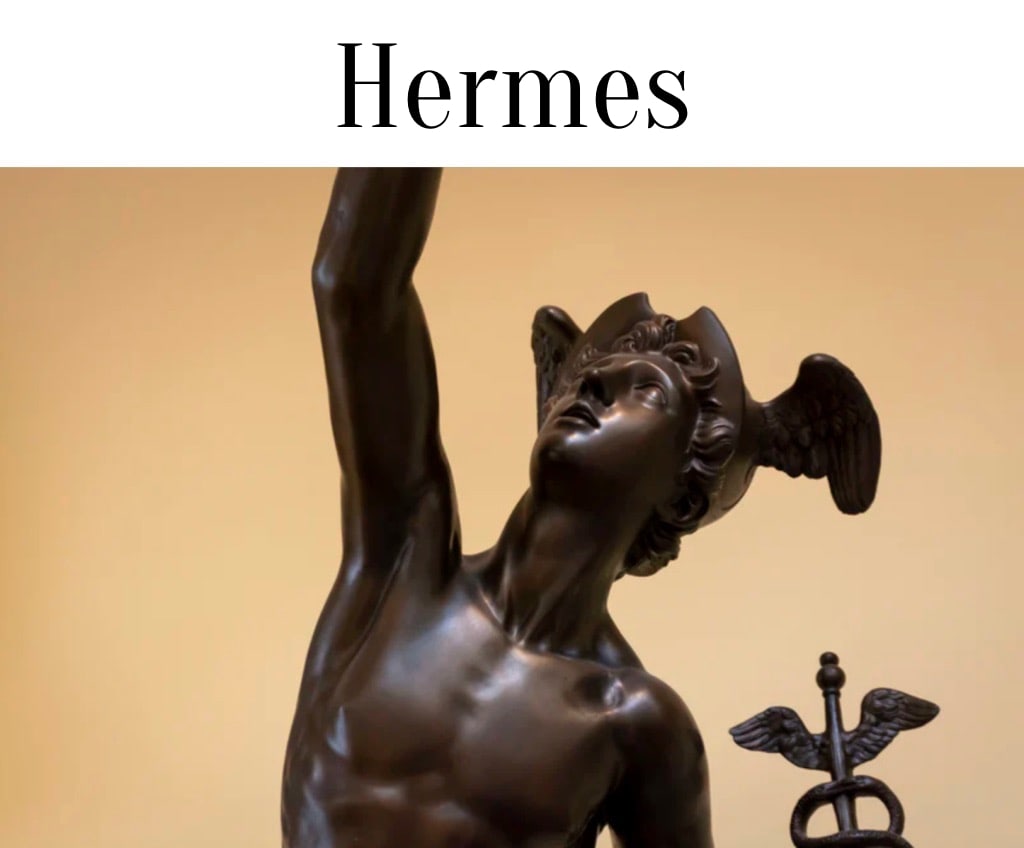
In Greek ἕρμα (herma) means “cairn, a pile of stones, boundary marker.”
13. Hodophile
If you love to travel, you can consider yourself a Hodophile.
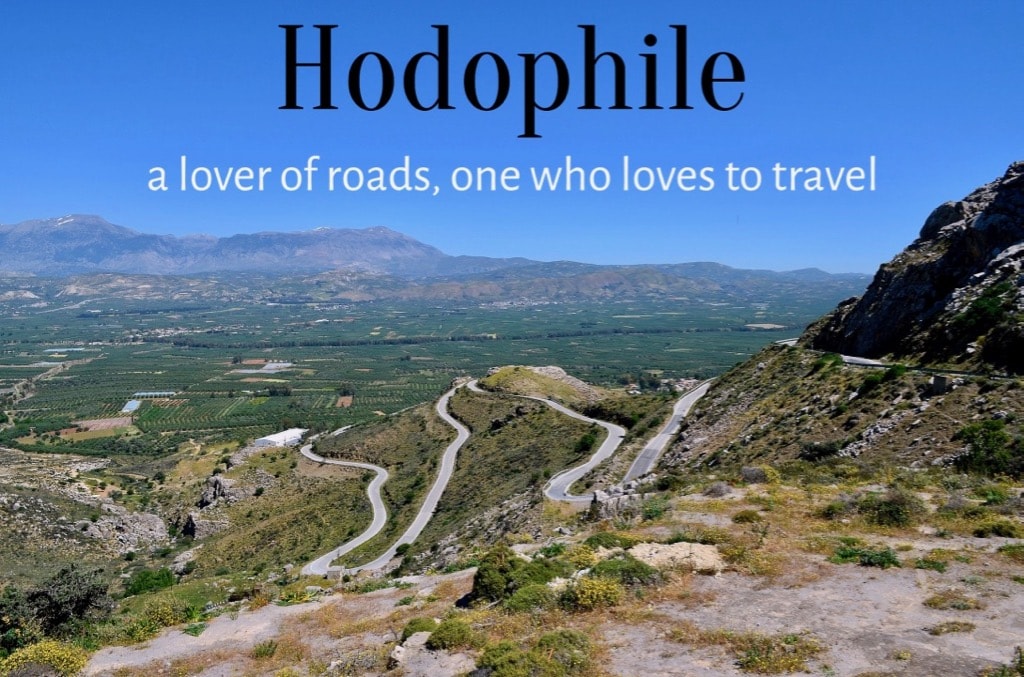
A lover of roads, one who loves to travel.
This word is derived from Ancient Greek ὁδός (hodós), which means travel.
How can a relatively unknown Greek Island be one of the most beautiful travel words?
Well, it’s all due to one of the most beautiful and famous travel poems of all time.
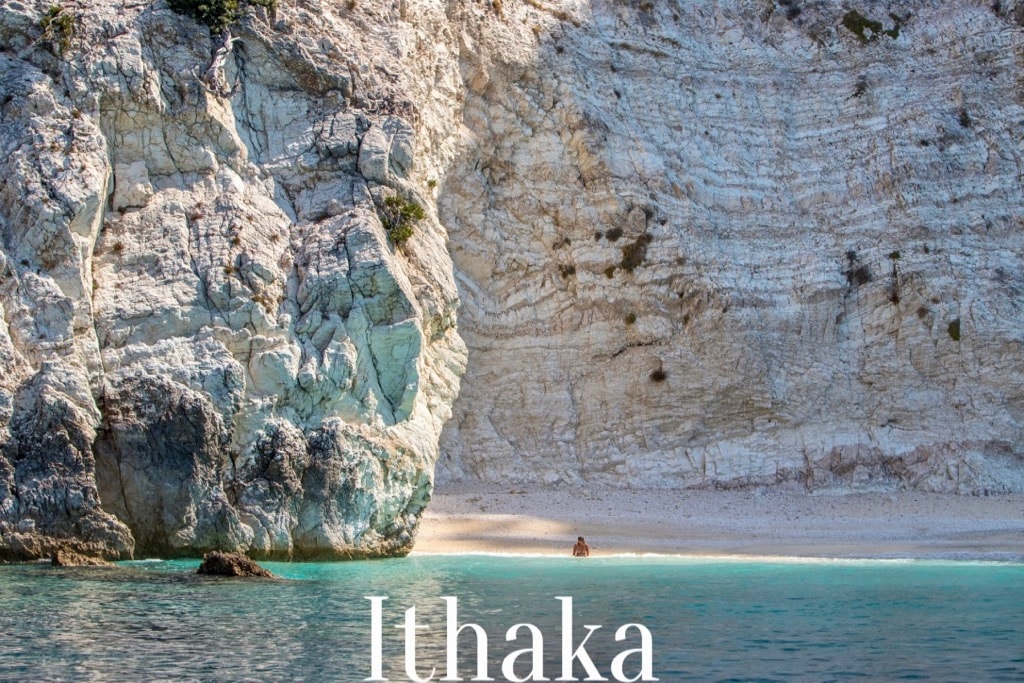
Ithaka Poem
As you set out for Ithaka hope your road is a long one, full of adventure, full of discovery. …
15. Odyssey
In ancient Greek times, the most famous journey would have to be the one described in Homer’s epic poem “The Odyssey.”
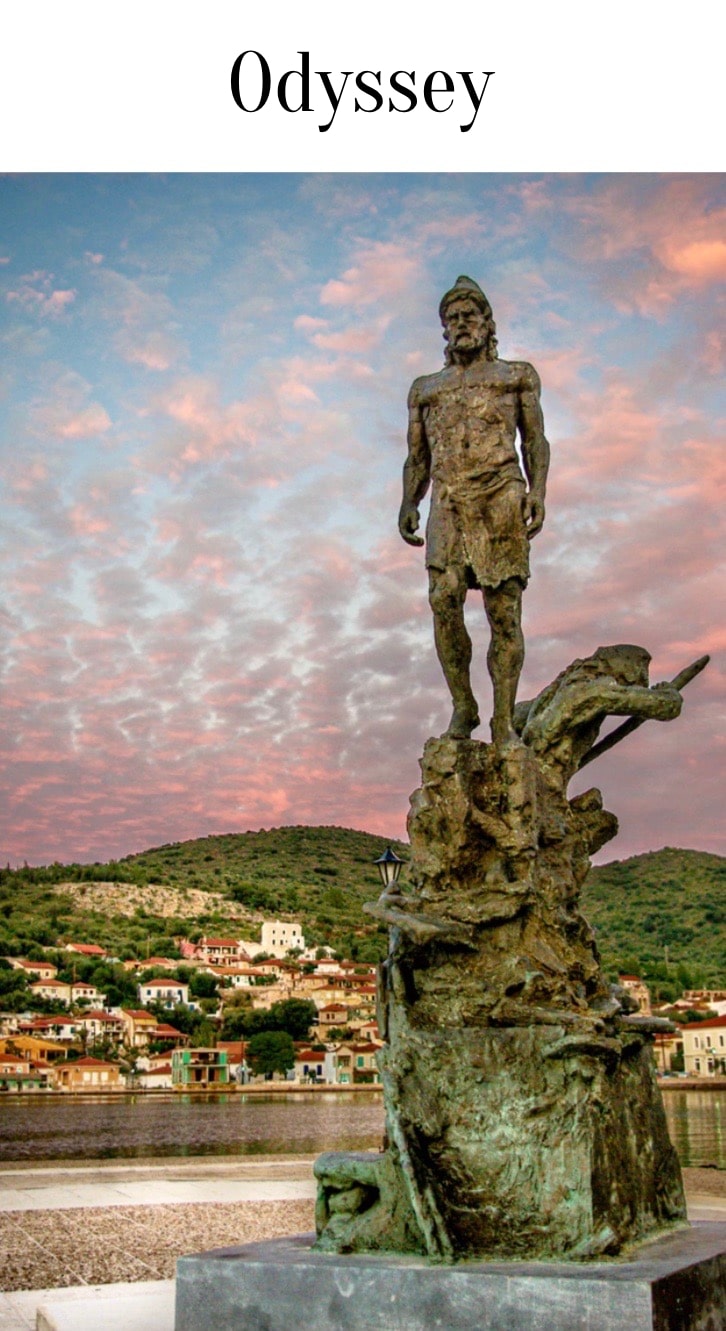
It took the Greek hero Odysseus ten years to return home after the Trojan War had finished.
16. Peripatetic
Someone who wanders from place to place, living a nomadic existence.
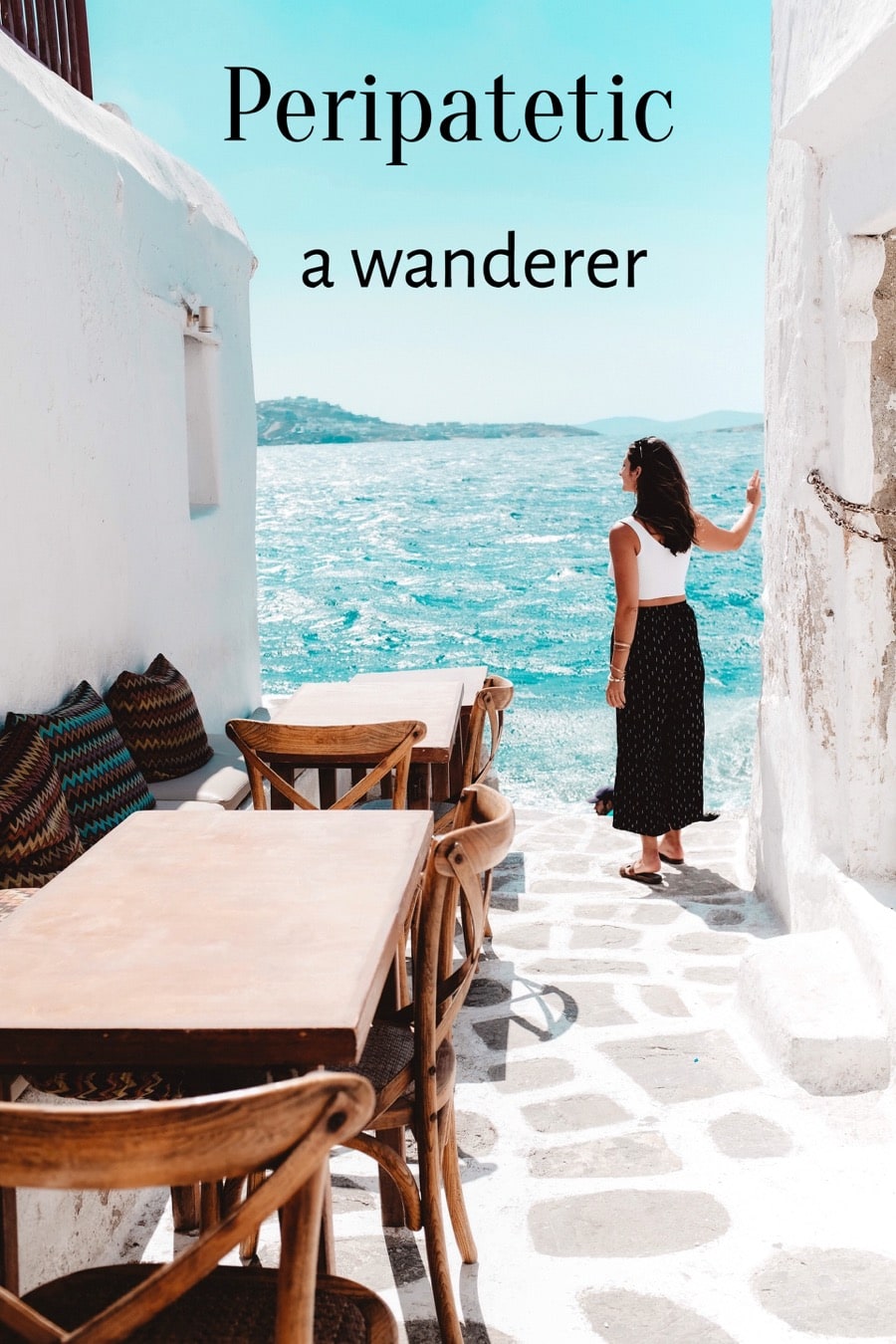
This word is traced back to the time of Aristotle and his followers. The philosophers often walked around peripatos (covered walk in the Lyceum) where Aristotle held his lectures.
It comes from the Greek word peripatētikos. From peripatein, meaning “to walk up and down.”
17. Santorini
Beautiful images of Santorini are often used in advertising and tourist brochures to get you thinking about taking a trip to Greece.
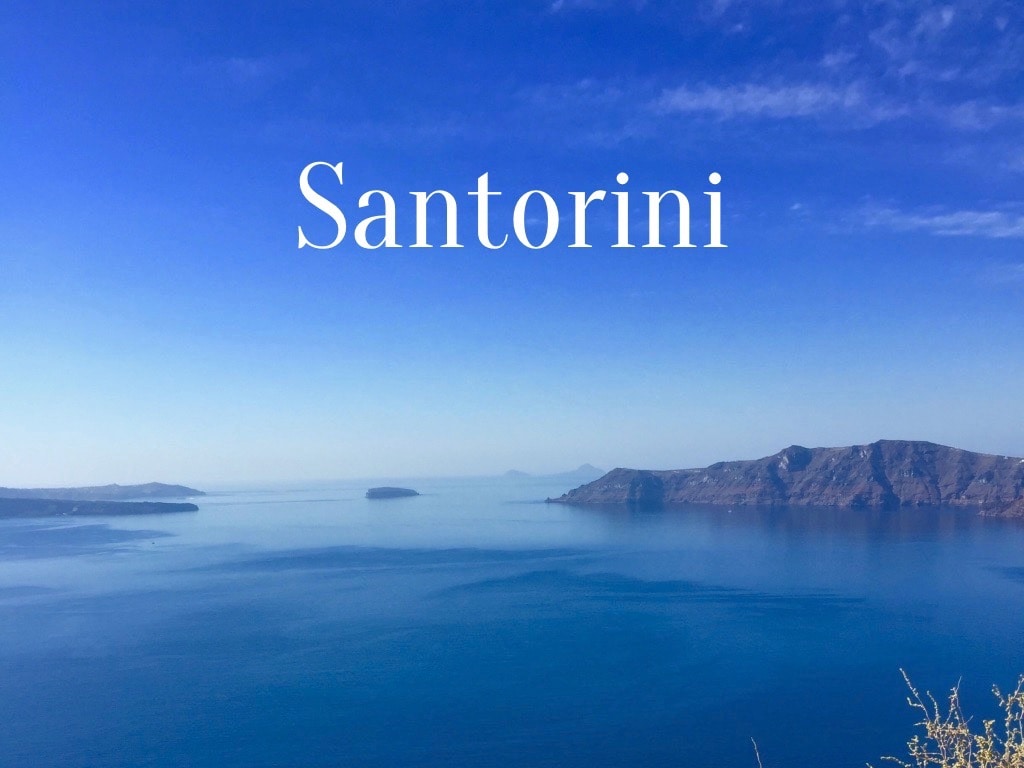
Ok, so it’s not a Greek word, but the island is in Greece, and it’s the most beautiful Greek Island in my opinion, so here it has to be.
18. Strikhedonia
If you ever felt like saying to hell with it, then you may be surprised to know that there’s actually a word for it. That word is strikhedonia.

It’s a popular Greek word associated with travel! That’s because many travelers and bloggers have done such a thing. To hell with it! I’ll quit my job and go traveling.
Obviously had to come from the Greeks.
19. Thalassophile
For all of you beach lovers out there, this is what you are, a Thalassophile.
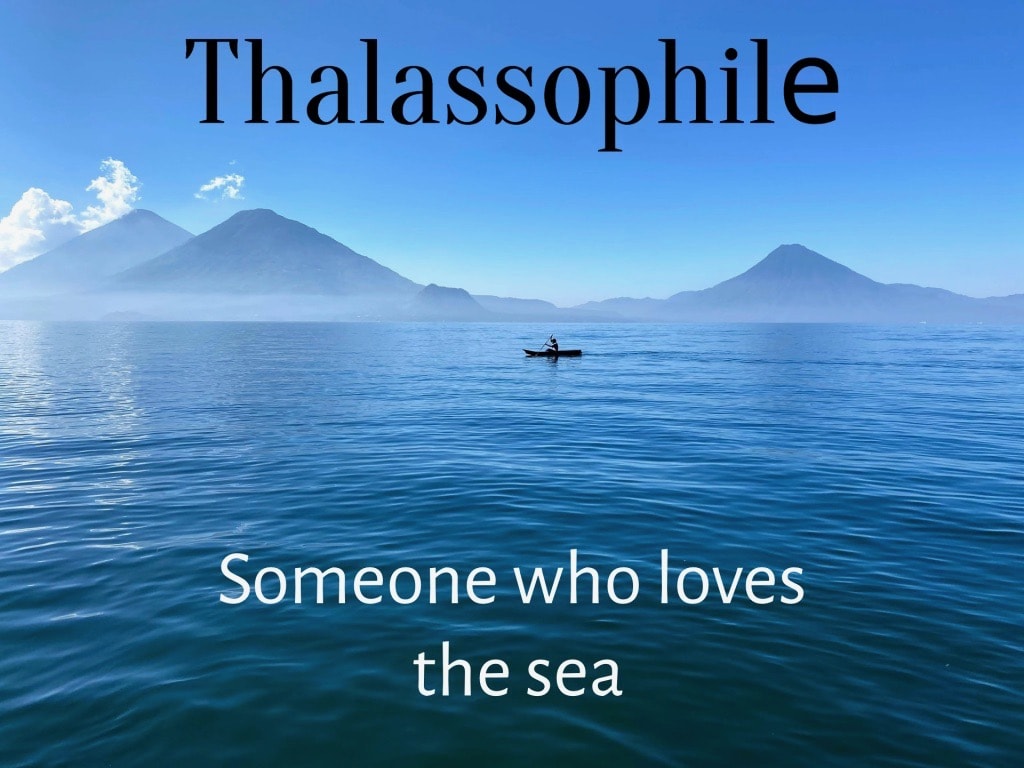
Derived from the Greek words θάλασσα / thalasso (sea), and -phile, from Greek philos ‘loving’.
20. Xenophilia
Someone who is attracted to foreign peoples, foreign cultures, manners, and/or customs.
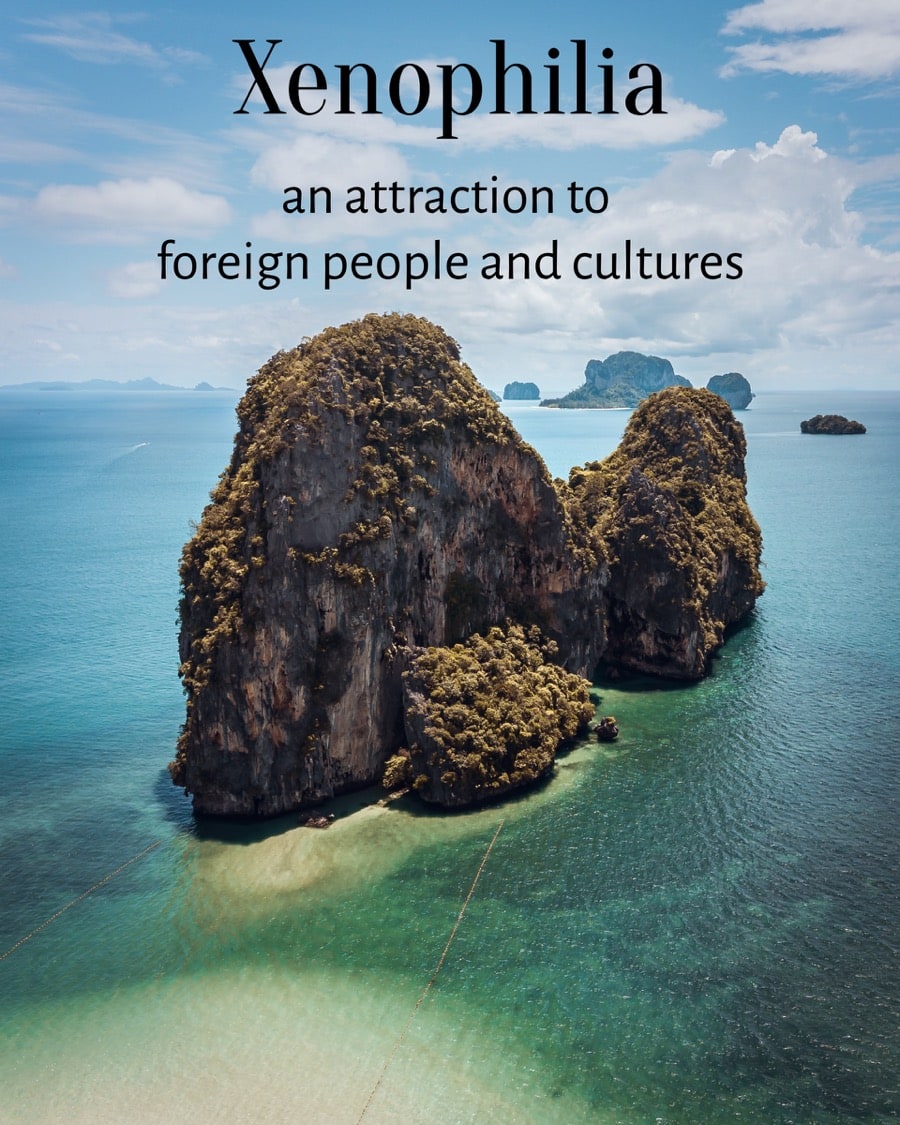
It’s the reason why so many of us pack our bags to go traveling. Foreign things make travel experiences so much more interesting.
This unique travel word comes from the Greek “xenos,” meaning “stranger, unknown, foreign,” and “philia,” defined as “attraction or love.”
The beauty of this word is that it has the opposite meaning of being a Xenophobe.
Xenophobe describes a person that dislikes or is prejudice against people from other countries. No one wants to be known as a Xenophobe.
For this reason, I include Xenophilia as one of the most beautiful travel words.
Travel Words with Greek Origins that missed out
Acatalepsy – the idea that it is impossible to understand anything, which includes travel experiences.
Airplane (Aeroplane) – from the Greek ἀήρ (aēr), “air” and either Latin planus, “level,” or Greek πλάνος (planos), “wandering”.
Anemoia – a nostalgic sense of longing for a past you yourself have never lived. Maybe you were born in the wrong time period, or maybe you love something about a certain decade in time, like the music.
Aragma – The act of chilling. When the Greeks say ‘pame gia aragma spiti sou, ‘it means ‘let’s go chill at your place.’
Cosmopolitan – can be traced back to Pythagoras, who first used the Greek word kosmos to describe the order of the universe.
Erotic – from Eros, the Greek God of desire.
Eunoia – beautiful thinking.
Iris – Goddess of the rainbow.
Meraki – putting a part of yourself (your soul) into what you’re doing with complete focus and love.
Museum – from the nine Muses who presided over the arts and sciences.
Music – literally means the art of the Muses.
Nemophilist – lover of the woods.
Peratzatha – people-watching.
Philoxenia (Filoxenia) – literally translated as “friend to the stranger” / hospitality.
Taxidi – the Greek word for trip or journey.
I’m sure you would have learned a new word or two for this extensive list of beautiful travel words.
Pin it … Share it
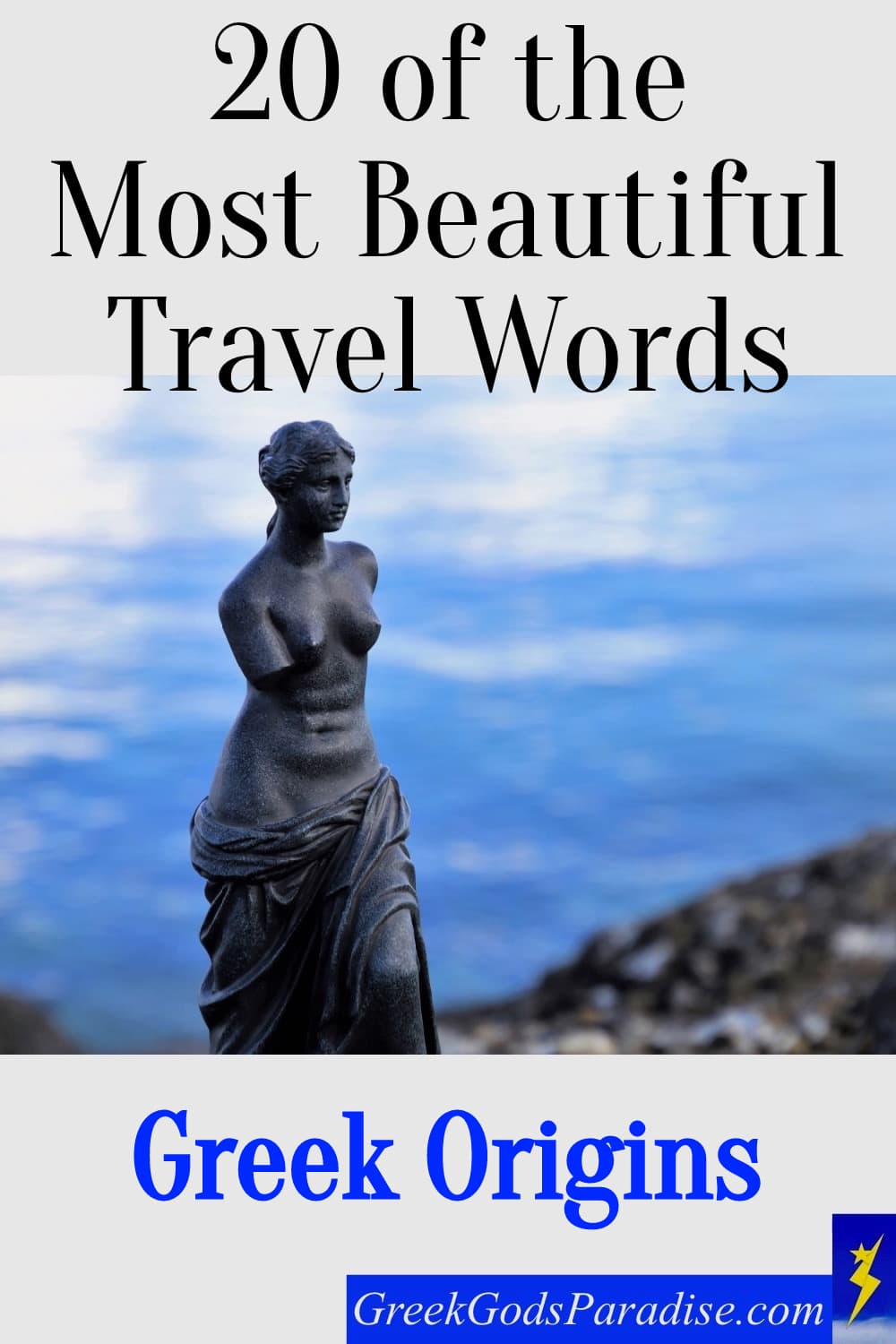
RELATED ARTICLES MORE FROM AUTHOR

Best Bali Waterfalls Adventure: Ultimate 1-Day Guide

NUSA PENIDA Guide (West) plus Best Tips

ULUWATU Bali Guide: Ultimate Short Stay Experience

170 cool, unique, and beautiful English words to spark a little joy

Karolina Assi
Have you ever experienced serendipity? Do you have a nemesis? Are you a flibbertigibbet? Unless you know what these words mean, you won’t know the answer to these questions!
And if you don’t know what these words mean - don’t worry! It’s estimated that there are 171,146 words in use in the English language, plus around 47,156 obsolete words. That’s a lot of words! No wonder you don’t know all of them, especially if you’re not a native speaker.
However, if you’re as passionate about learning languages as we are (and if you’re reading our blog, then you must be), you know how fun it can be to learn new words in a foreign language. Having a vast vocabulary can not only help you express yourself better, but it’ll also make you sound more eloquent.
So, in this list, we’ve gathered over 170 unique, cool, and beautiful English words that you will love.

Beautiful English words and their meanings
While it’s often said that French and Spanish are the most romantic and beautiful languages, English also has its fair share of beautiful words. You may already know a couple, such as solitude , euphoria , or labyrinth .
If you want to expand your vocabulary with beautifully-sounding words, below you’ll find a list of what we believe to be the most beautiful English words, accompanied by their meanings.
Beautiful English words
While the beauty of a word is subjective and may differ for each of us, many English words are undeniably mellifluous (yes, that’s one of them). This list is the quintessence of the most beautiful English words.
Ready to further your career with a new language?
Get the language skills, cultural understanding and confidence to open up your world with Berlitz.
Beautiful English phrases, sayings, and idioms
Beautiful words lead to beautiful phrases and expressions. English is full of literal and metaphorical expressions that inspire us, bring us joy, or make us wonder about the meaning of life.
Below is a list of some of the most beautiful English phrases, sayings, and expressions.

Cool English words that will make you chuckle
The English language is full of strange, funny words. Some of them are so odd that you can’t help but wonder how they became part of the language! Others sound so funny that they’ll certainly make you chuckle. Love a bit of gibberish? You might enjoy being flabbergasted when you discover the longest words in English here !
Popular slang words in English you need to know
If you’re an internet person who scrolls through Instagram and watches TikTok, you might have seen some words you thought you knew used in a completely different context. While some vocabulary may seem like some sort of a Gen Z code to you, it’s actually quite fun to play around with once you understand it.
With this list of the most popular slang words in English, you’ll be fluent in the TikTok lingo in no time. You can also find 321 more fun American slang expressions here .

And even more unique English words…
Did you know that English has a word for throwing someone out of the window? You’ll be surprised to find out that there are lots of English words that even native speakers aren’t always aware of!
From clinomania to petrichor , you’re about to discover a whole new world of unique words in English that you had no idea existed.

Feeling effervescent?
Learning English words can leave you feeling light-headed! But there’s no need to be lackadaisical or woebegone about it. Everyone can learn new beautiful words in English with a bit of practice, even if it’s a lot of gobbledygook.
We hope that this list of the weirdest, funniest, and most beautiful English words will turn you into a true logophile with an ineffable epeolatry.
Keep up the free English vocabulary fun here.
Expand your knowledge of English
Learn with Berlitz
Related Articles

May 03, 2022
67 ways to say sorry in English to someone, sincerely with grace

April 19, 2022
81 cool, common and quirky ways to say goodbye in English

March 29, 2022
91 ways to say thank you and you’re welcome in English
1-866-423-7548, find out more.
Fill in the form below and we’ll contact you to discuss your learning options and answer any questions you may have.
I have read the Terms of Use and Privacy Policy
- Privacy Policy
- Terms Of Use
You are using an outdated browser. Please upgrade your browser or activate Google Chrome Frame to improve your experience.
The 142 Most Beautiful English Words
English has a lot of words that sound lovely.
Some of the most beautiful English words evoke (bring out) a feeling of calm, happiness and serenity (peace).
Below, I will show you 142 of the most beautiful English words to add to your vocabulary.
2. Absolution
3. adoration, 4. aesthetic, 5. affluent, 7. alluring, 8. amicable, 10. angelic, 13. blossom, 14. bountiful, 15. breathless, 16. brilliant, 17. bubbles, 18. bucolic, 19. butterfly, 20. cascade, 21. celestial, 22. charming, 23. cherish, 24. cinnamon, 25. clairvoyant, 26. coalesce, 28. compassion, 29. contentment, 31. cosmopolitan, 32. crimson, 33. crystalline, 34. dazzling, 35. delicate, 36. delightful, 38. desirable, 39. devotion, 40. diaphanous, 44. ecstasy, 45. effervescent, 46. elegant, 47. enchanting, 48. endearing, 49. epiphany, 50. ethereal, 51. euphoria, 52. evanescence, 53. everlasting, 54. exaltation, 55. exquisite, 56. fanciful, 57. fascination, 58. fathomless, 59. feather, 60. felicity, 61. fervent, 62. flamboyant, 63. flawless, 64. flourishing, 65. flowing, 66. fragrant, 67. freedom, 71. glittering, 72. glowing, 73. halcyon, 74. harmonious, 76. idyllic, 77. immaculate, 78. incandescent, 79. ineffable, 80. innocence, 81. inquisitive, 82. inspiring, 83. iridescent, 84. jubilant, 85. kaleidoscope, 86. labyrinth, 87. lavender, 89. luminous, 90. magnificent, 91. majesty, 92. mellifluous, 94. melodic, 95. miraculous, 96. mystical, 97. nirvana, 99. oceanic, 100. opulent, 101. ornate, 102. paradise, 103. passionate, 104. pastel, 105. peaceful, 106. pearlescent, 107. piquant, 108. plethora, 109. poetic, 110. precious, 111. pristine, 112. quintessential, 113. radiance, 114. refined, 116. resplendent, 117. romance, 118. roseate, 119. saccharine, 120. satisfying, 121. scintillating, 122. serendipity, 123. serene, 124. shimmering, 125. silhouette, 127. simplicity, 128. sonorous, 129. splendid, 130. succulent, 131. sumptuous, 132. surreal, 133. susurration, 134. symphony, 135. tranquil, 136. twilight, 137. unwavering, 138. vellichor, 139. velvet, 140. vibrant, 141. whimsical, and one more thing....
Download: This blog post is available as a convenient and portable PDF that you can take anywhere. Click here to get a copy. (Download)
Let us start our list with something that evokes energy: ablaze .
“Ablaze” is an adjective that means “on fire” or “glowing with color, light, or emotion.” It combines the prefix a- and the noun blaze . Here, “a” suggests a state or condition while “blaze” means fire.
You may often see or hear this word in the news. For example:
The sunset sky was ablaze with shades of red, orange and pink.
“Absolution” is the noun form of absolve (to forgive). It means “forgiveness” or “remission.”
It usually refers to the act of Catholic priests forgiving sinners. However, it can also mean the act of setting someone free from guilt or punishment.
Compared to forgiveness or remission, “absolution” has a stronger meaning. It means the forgiveness or remission is more complete.
For example, you could say:
I felt like Jane gave me absolution when she finally spoke to me yesterday after weeks of silence.
Another noun derived from (that came from) a verb is “adoration.” It comes from adore , which means “to shower with intense love, praise or admiration.” Therefore, “adoration” is the act of doing these things to someone or something.
Also like “absolution,” “adoration” had its roots (beginnings) in religion. One of its root words was aouren or “worship.” However, it has since had a more general meaning.
One good way to use this word is:
Artists with a good reputation usually receive a lot of adoration .
If you read anything related to art, you will often come across the word “aesthetic,” which is a noun. The word often refers to how something looks.
Aesthetic comes from the Greek word aisthetikos or how something is perceived by all your senses.
Note that an aesthetic does not necessarily have to be beautiful. It does not have to meet everyone’s (or most people’s) definition of beautiful. But it can be something striking (unusual) about something’s appearance.
If you have a friend who is a fashionista (someone who likes clothes and how they are designed or put together), you can compliment them by saying:
I really like that, when it comes to clothes, you have a unique aesthetic !
“Affluent” has one of the more straightforward (simple) meanings of the beautiful English words on this list. It simply means being “rich,” “wealthy” or having way more money than the average person.
“Affluent” comes from the Latin affluentem or “to flow toward” (probably referring to how money flows to the rich). It can be a noun or adjective.
As a noun, you could use it like so:
I wonder how different the lives of the affluent are from ours.
As an adjective, it functions (works) like this:
If you own a lot of companies, you are probably affluent .
If you work in the information technology (IT) industry, you may have heard of Agile software or processes.
“Agile,” by itself, is an adjective that describes something that quickly moves from one position to another. This makes sense, as its root Latin words are agilis (quick) and agere (stay in movement).
Turn this into a noun and it becomes agility.
You can practice using this word for things like sports. For example:
It is important for runners to be agile .
If something is so attractive that you cannot help but be drawn to it, it is considered “alluring.” It comes from the Old French aleurer , which means “to attract.”
Since alluring is an adjective, you can use it to refer to a person, object or idea.
For example:
The idea of living in a country with free education is alluring to me.
When something is “amicable,” it is pleasant, civil or friendly.
Interestingly, one of its root words is the Latin amare (“to love”). But that is no longer what it means today. After all, lovers who are no longer together can still have an amicable relationship.
Another way you can use the adjective amicable is for something like:
Even though it had been years since I spoke to Anne, we still had an amicable talk yesterday.
You describe something with the adjective “amorous” when it is filled with sexual love. The word comes from the Latin amor, which means “love.”
Typically, you hear this used to describe a relationship or the way lovers are with each other. For example:
John and Jane had an amorous relationship that lasted years.
If you know what “angel” means, you can probably guess the meaning of this word.
If not, “angelic” is an adjective that means “like an angel.” It is something pure, sweet and gives you a feeling that you are floating above the clouds (like an angel!).
I will give you a couple of examples:
She had an angelic face.
I would say Celine Dion has an angelic voice.
“Aurora” is a noun, and it is a concrete noun, meaning it can be found in the physical world. It comes from Latin and referred to the Roman goddess of the dawn .
While still the name of the Roman goddess, “aurora” presently describes the dawn. It also describes the light near the North and South Poles that appears green or red due to the earth’s magnetism.
Many people travel to northern countries such as Canada, Iceland or Finland to see this gorgeous phenomenon (occurrence) called the aurora borealis.
While visiting, you might say:
He woke up at three in the morning to see the aurora borealis.
“Bliss” is a noun that describes a state of perfect joy. It has a stronger meaning than “happiness” because it feels like nothing can be better.
You can turn this word into an adjective by adding -ful at the end so it becomes blissful or “full of bliss.”
You could say:
I know whenever I eat a delicious meal, I always feel bliss !
“Blossom” is a noun that refers to a flower. If there are multiple flowers, then there are blossoms .
“Blossom” can also be a verb that refers to how flower petals open up (thanks to its Old English origins, blostmian or “to flower”). It can also refer to how something or someone becomes beautiful.
For example, if you plan to visit Japan, you may want to time it during hanami (flower viewing season). That way, you can practice a sentence like:
Ah, what beautiful cherry blossoms these are!
“Bountiful” is derived from the noun bounty and the suffix -ful. “Bounty,” in turn, comes from the Old French bonte or “goodness.” Therefore, “bountiful” can mean something full of goodness. It can also mean abundant (having a lot of something).
You will often hear a phrase like “a bountiful harvest.” Another way you can use “bountiful” is:
When my life is already bountiful , what more can I ask for?
You know those times when you run so fast you feel like you have no air in you? That is being “breathless.”
Remember: Whenever you add the suffix -less to a noun, it means there is a lack of that noun. In this case, you do not have a breath (from the Old English bræð , which referred to exhalation or letting out air from your lungs).
It is also the name of a catchy song by The Corrs (an Irish pop band)!
Sometimes, it is used to refer to something that amazes you so much, it takes your breath away. For example:
The rock concert last night left me breathless .
“Brilliant” is an adjective that can mean three things.
It can mean the same thing as the French word brilliant (yes, they have the same spelling) and refer to something that shines as bright as the sun.
It can be a person who is smarter or more talented than the average.
Or it can be an expression of amazement.
In any case, you can see why this is a beautiful English word.
If you want to use it to refer to something shiny and bright, you can say:
That is one brilliant piece of jewelry!
If you want to describe (or compliment) a talented person:
He was a brilliant student, as shown by the fact that he topped the exams.
When you wash with soap, you see these round, transparent (see-through) objects around the soapy area. If you touch them, they disappear (go away). Sometimes, they float around and if you look closely, they reflect all the colors of the rainbow!
Those are “bubbles,” the plural form of the noun “bubble.” Essentially, they are water particles (tiny pieces) inflated by gas—almost like balloons.
You could say:
When I was a child, I used to blow bubbles with my friends.
If you have lived in the city all your life, you may not be too familiar with (knowledgeable or experienced with) the “bucolic.” That is because this adjective refers to having the qualities of the countryside.
One of its root words is the Greek boukolikos , which comes from boukolos or “herdsman” (someone who herds or takes care of animals). So you can imagine “bucolic” as the kind of place where farm animals go.
But a bucolic place does not need to have animals. Think miles and miles of grasslands where there are hardly any people.
So you could say:
My friend’s hometown was bucolic .
A “butterfly” is a type of insect. Insects are animals that have two antennae (hairlike parts used to sense) on their heads, six legs and bodies divided into three main sections.
(Fun fact: The name “butterfly” came from the belief that these creatures ate butter!)
You can tell butterflies apart from other insects by their beautiful wings . They also like to fly over flowers where they feed on (eat) nectar, which is like a less sticky version of honey.
If you know someone who likes insects, you can start a conversation with them with a question like:
Don’t you think that butterfly is beautiful?
“Cascade” can be both a noun and a verb. It comes from the Italian and Latin-based word cascare , meaning “to fall.”
As such, its noun version refers to water falling over a cliff or a similar situation. The word can also be used as a verb to mean the action of falling.
As a noun, you could say:
The cascade of water shone in the sunlight.
As a verb, you could say:
The water cascaded over the cliff.
When you describe something with the adjective “celestial,” you are saying it is of or like the heavens.
In fact, the word didn’t change at all from its Old French version, which means “heavenly” or “sky-blue.”
Remember the “aurora borealis” we talked about earlier? You can also talk about it like this:
I loved the celestial beauty of the aurora borealis.
You have probably heard of some celebrities described as “charming.” It is an adjective that means these people have the ability to attract others to them.
The word actually comes from charmen , which means “to cast a spell on someone.”
Although you may be sure magic does not exist, charming people sure make it look like they have magic powers!
You can also use “charming” for objects. For example:
His house was quite charming .
No doubt you have heard the lyrics “Cherish the love we have” at some point. “Cherish” is a verb that simply means “to hold something dear or precious”—which is also the meaning of its root word cherischen .
If you have an object given to you by a loved one, you could say:
I will always cherish this ring from my sweetheart.
Ever heard of fictional (not real) people described as “cinnamon rolls?” If that is your first time hearing the word, no one would fault (blame) you for thinking that “cinnamon” meant kindness.
In fact, it is a noun that refers to a type of spice that comes from the tree bark of a plant in the avocado family. It has a distinctive (unique) strong sweet smell that you definitely do not want to use in large amounts!
I always have a bottle of cinnamon on my kitchen shelf.
A “clairvoyant” is a noun used to describe someone who has the ability to see things beyond the normal range of vision. It comes from the root French words clair (clear) and voyant (to see).
“Clairvoyant” does not only refer to someone who has exceptional (above average) intuition (ability to perceive things). The word usually implies (means) that the ability is supernatural (cannot be easily explained by science).
Anne knew what cards I held before I showed them to her. She must be a clairvoyant !
“Coalesce” is a nice verb to describe things that come or mix together beautifully. It has the same meaning as its Latin root word coalescere.
For example, if you are in awe of how the clouds in the sky combine, you can say:
I love how the clouds coalesce to form one giant cotton ball in the sky!
Remember the butterfly from earlier? Its younger version, the caterpillar , makes a “cocoon” —a silk covering it uses to protect itself. The word comes from the French coucon , which essentially means a protective shell.
Sometimes, the word is used as a synonym (a word that has the same meaning) for “protection.” You will not see this often, though.
Since it has a very specific meaning, our example is pretty straightforward too.
I watched the caterpillar spin a cocoon around itself.
When you feel kindness or empathy (the ability to understand how others are feeling) for others, you usually also feel “compassion” (a noun) for them. It comes from compassioun , which is to feel the suffering of another.
If you are religious or you know someone who is, you could say something like:
Most religions teach compassion for others.
Another noun with a positive meaning is “contentment.” It means to be happy with what you already have.
Interestingly, it came from contentement, a word that meant “to settle a debt.” Thankfully, that is not how “contentment” is used these days!
You can use contentment to describe that feeling of happiness that nothing (at the moment, at least) can top. As an example:
Eating my mother’s cooking always gives me a sense of contentment .
You know those colorful underwater structures that fish swim in and out of? Those are “corals (noun).” The word comes from various languages, all essentially meaning “small stone.”
What makes corals different from stones, however, is that they were once living things. Specifically, they were created from the skeletons of polyps (tiny living things) that live in the sea.
The word is also a name for a kind of color .
The next time you go diving, you can take a closer look at what you see underwater and say:
Coral reefs sure are amazing!
“Cosmopolitan” is not only the name of a famous women’s magazine . It is also an adjective that means sophisticated —that is, knowledgeable and experienced when it comes to fashion, culture and how the world works.
Usually, you will hear this word used to describe a city or something that is like a city. For example:
Places like New York, San Francisco and Los Angeles all have a cosmopolitan feel to them.
If you want a fancier-sounding word for “red,” “crimson” is a good option.
In fact, one of its root words is cremesin , or cloth that is purplish-red.
This is another one of those beautiful English words with a straightforward use. For example:
Her crimson dress was absolutely stunning.
“Crystalline” is an adjective that means “like a crystal.”
If something is shiny and transparent, you can use this word to describe it.
I would say something like:
The beach I visited last weekend had crystalline waters.
If the crystalline thing you see is so shiny and bright it blinds your eyes, you can also use the adjective “dazzling” to describe it.
“Dazzling” can also mean “amazing,” “captivating,” “charming” or any synonym of those words.
Using the first definition, you can say:
The lights in the theater were dazzling .
Using the second definition:
The theater performances were as dazzling as the lights in the theater.
Ever known something (or someone) that feels like they would break if you even touch them? You can use the adjective “delicate” to describe them.
Be careful with those glass cups! They are delicate .
When something gives you a feeling of pleasure, you can say it is “delightful.” After all, the word comes from “delight” and “-ful” or “full of delight (happiness, pleasure).”
Like “contentment,” you can use this word for anything that brings you joy. As for me, I would say:
Watching the stars at night is an absolutely delightful experience.
Normally, you hear “demure” used to describe someone who is shy or reserved (does not like to show emotion).
The adjective is thought to be derived from the Latin maturus (“mature”). After all, we normally associate (connect) being calm and quiet with being mature. But, as you know, that is not necessarily the case (truth)!
You will usually hear it used like this:
She seemed demure when I met her. But when we got to know each other, I discovered she actually likes to laugh out loud.
“Desirable” is also an adjective. It comes from the noun desire (to want) and the suffix -able. Therefore, it means “something that is able to attract desire.”
You can use this word to describe a person or object. For example:
Sunny weather would be desirable for tomorrow’s trip.
The noun “devotion” means the same thing as “loyalty.” However, “devotion” has a stronger meaning.
In fact, it comes from devocioun , which means “strong religious reverence (respect or adoration).”
You do not always have to use it in a religious context, though. You could say:
His devotion to his wife is incredible.
If there is one word that should be on any “beautiful English words” list, it is the adjective “diaphanous.”
Simply put, it means “delicate and translucent (somewhat transparent).”
Her wedding dress was diaphanous .
When you use the adjective “divine” to describe something, it means that something is related to or like the gods. Its root word is the Latin divinus or “of a god.”
One way to use it in a sentence is:
The taste of Belgian chocolate is divine .
Combine the noun dream with the suffix -y and you get the adjective “dreamy.” As you can guess from that, the word means “like a dream” or something that is so unreal it seems like a dream.
If a man is so handsome it is almost unbelievable, his admirers would say:
Oh, he is dreamy , isn’t he?
This simple word is a noun, and it is one of my personal favorites.
In fact, “dusk” is an original English word that first appeared in written form in the 1620s.
“Dusk” describes the time of day when the sun has not completely set in the evening.
We walked along the river at dusk .
“Ecstasy” is a noun that means an intense state of pleasure or happiness. Sometimes, this feeling is almost to the point of insanity (losing one’s mind). That is probably why this word was derived partly from existanai , or to go out (of the mind).
If you have never experienced this feeling yourself, you could also use it to describe others like:
The dancers were lost in ecstasy as they moved to the music.
You use the adjective “effervescent” to describe something that is full of life or bubbly.
Her effervescent attitude made everyone fall in love with her.
“Elegant” is an adjective. It describes something that is graceful or pleasing to the eye. It comes from the Latin elegantem , which means “fine” or “tasteful.”
This word can be used to describe an object, person or concept like so:
His luxury watch looks elegant with his outfit.
“Enchanting” is an adjective that has the same meaning as “charming”—that is, attractive.
The fireworks display was enchanting .
“Endearing” is an adjective. It combines the prefix en- (to make into) and the noun dear (beloved). If something inspires love or affection, it is “endearing.”
The baby’s gestures were endearing to her parents.
When you have a sudden realization (understanding) about something, you are said to have had an “epiphany,” which is a noun.
“Epiphany” has religious origins. One of its root words is the Greek epiphaneia or a festival held to celebrate the arrival of a god. Since gods usually symbolize knowledge or wisdom, the word’s present meaning makes sense.
So, you could say:
I had an epiphany last night about how to do my job better.
“Ethereal” is an adjective that comes from the French language.
It is derived from the word ether , which refers to the upper, clear area of the sky. It also refers to the space higher than low-lying clouds that can be seen on days when it is almost completely sunny.
Due to this, the word “ethereal” means something so beautiful that it simply cannot be from this world.
For example, you might say something like:
Her beauty was ethereal as she sat in the moonlight.
“Euphoria” is a noun that has a similar meaning as “ecstasy”—that is, an intense state of happiness. The difference is that “euphoria” has a more positive meaning than “ecstasy.”
In fact, the word comes from the Greek euphoros or the ability to carry, endure or bear something.
An example sentence using this word would be:
Getting accepted into Harvard University filled her with euphoria .
“Evanescence” is the noun version of the adjective evanescent , which comes from the French word évanescent , meaning something that disappears to the point of becoming invisible.
Today, it describes the rapid disappearing or vanishing of something.
Furthermore, Evanescence is also the name of a pretty good American rock band!
To use this word in a sentence, you might say:
The rainbow’s evanescence made it all the more beautiful.
You can figure out the meaning of this noun by breaking it down into its parts. “Everlasting” comes from ever- (something that lasts a long time or for eternity) and lasting (existing or happening).
Movies often have stories about everlasting love.
“Exaltation” is another noun that means extreme happiness. The word also means putting someone or something in a higher position.
In fact, it comes from the Latin exaltare, which means “to raise or elevate.”
You could feel the exaltation of the team after they finally won the championship.
“Exquisite” is an adjective. You use it to describe something that looks good because it is so carefully made. The word comes from the Latin exquisitus or “choice”—implying that a lot of care went into something.
Photos of the actress’ exquisite dress were all over fashion magazines.
“Fanciful,” an adjective, comes from the noun fancy (something that is imagined) and the suffix -ful. So, “fanciful” can mean “full of fancy”—or, more accurately, full of imagination.
Children’s stories are often fanciful .
“Fascination” is a noun. It comes from the verb fascinate or “to attract.” Therefore, “fascination” means a feeling of attraction or interest.
My brother’s fascination with collecting stamps started when he was young.
“Fathomless” is an adjective. It is derived from fathom or “to understand” and the suffix -less. Since -less usually describes the absence or lack of something, “fathomless” means “something that cannot be understood or is beyond understanding.”
One way to use this word is:
The sea has a fathomless beauty.
The simplest meaning of the noun “feather” is “the thing that covers birds.”
The more accurate definition would be “the flat and tufted appendages (attachments) that grow out of a bird’s skin and cover its body.”
Peacock feathers are known for their attractive colors.
If you know people named “Felicity,” you can be sure their parents loved them. That is because it is a noun that means “intense happiness”—which is also the meaning of its root word, the Old French felicite .
To give you an example:
The wedding filled the newlyweds with felicity .
When you describe something or someone with the adjective “fervent,” you are saying they have strong feelings towards something.
The word comes from the Latin ferventem , which can mean “hot” or “glowing.”
The politician had a fervent belief in his cause.
“Flamboyant” is an adjective. It is often used to describe something or someone who has an attention-grabbing style.
Interestingly, the word is the same in French, where it means “flaming.” So “flamboyant” can mean “something that attracts attention (like a flame).”
Many celebrities have a flamboyant fashion sense.
This is another adjective where the lack of something (as shown by the suffix -less ) is a good thing. In this case, “flawless” means “without flaws” or “perfect.”
You might say:
The ballet dancer’s performance was almost flawless .
“Flourishing” is an adjective that means “growing well” or “thriving.”
It comes from the Latin florere , which means “to bloom (like a flower).”
Thanks to the owners’ hard work, the business is flourishing .
Imagine the water going out of your faucet when you use it. A more elegant adjective to describe that event would be “flowing.”
Its meaning is derived from the Old English flowan , which means “to become (or move like) liquid.”
The river was flowing gently downstream.
“Fragrant” is an adjective that means “to smell good.”
One way to use it is as follows:
The bakery was fragrant with the scent of freshly-baked bread.
“Freedom” is a beautiful word in more ways than one. It is a noun that means the ability to act without anything getting in your way.
The fight for freedom is difficult, but it is worth it.
Picture a horse running across a race track. That is pretty much what “gallop” means: to run with long strides (distance between footsteps).
As you can imagine, our example is pretty straightforward:
His horse galloped faster than the others.
Even if you live in the city, you may have seen a “garden” at least once. It is a noun that refers to a place (usually near a house) where plants of different kinds are grown.
Our teacher showed us some vegetables grown from his garden .
“Gentle” is an adjective used to describe something that is mild.
When you describe someone as “gentle,” you mean that person is kind or mild-mannered. Back in the day, however, the word (and its roots like the Old French gentil ) meant someone who was born into a high-ranking family.
I enjoyed the gentle breeze on my face.
“Glittering,” is an adjective that means something shines like glitter.
In fact, its root words (like the Old Norse glitra and the Old English glitenian ) mean “to shine bright.”
The stars were glittering in the night sky.
Like “glittering,” “glowing” is an adjective that means something is shining. The difference is that the shine from “glowing” lasts much longer than the shine from “glittering.”
“Glowing” comes from the Old English glowan (to shine red-hot) and Old Frisian gled (blaze).
The glowing campfire was the only source of light for us.
You will not often hear the noun “halcyon” used in everyday conversation. Still, it is without a doubt one of the most beautiful English words.
“Halcyon” was the name of a woman in Greek mythology (a collection of myths or stories about gods). After losing her husband, Halcyon throws herself into the sea and gets transformed into a kind of bird known as a kingfisher . Luckily, her husband was also transformed into a kingfisher—and so, the couple would spend the rest of their days together.
Despite the tragic (sad) origins of the word, “halcyon” means “calm.”
My grandfather would often talk about his halcyon days when he was young.
“Harmonious” is an adjective. It means “in harmony” or “to go well together.” One of its root words is the Greek harmonia, which means “sounds that go well together.”
In fact, you will often hear the word “harmony” used in music.
You could also say:
The relationship between the couple became harmonious after they talked through their problems with each other.
If you ask a typical schoolchild what “honey” means, they will probably say “What bees make!” And they would be right.
Of course, “honey” is more than that. It is a sweet, sticky liquid that is often used to flavor food.
It is also a word used by sweethearts to call each other .
FluentU takes authentic videos—like music videos, movie trailers, news and inspiring talks—and turns them into personalized language learning lessons.
You can try FluentU for free for 2 weeks. Check out the website or download the iOS app or Android app.
P.S. Click here to take advantage of our current sale! (Expires at the end of this month.)

Try FluentU for FREE!
Using the first definition, you could say:
I do not usually like honey , but I like this honey-flavored bread you made!
The second definition would have a more straightforward example:
Honey , can you pass me the salt?
“Idyllic” is an adjective that has the same meaning as “bucolic” from earlier. It means something that is calm and beautiful the way the countryside is.
The famous painting showed the idyllic life of a farm girl.
You can sum up the meaning of the adjective “immaculate” with one word: “perfect.” The word usually means something that is free from dirt, mistakes and similar things.
As a girl from a rich and famous family, she had immaculate manners.
If you are using an old bulb to light up your home, chances are it is an “incandescent” bulb. This adjective implies that the “incandescent” object can light up because of a heat source (which is why they use a lot of energy ).
You can also use “incandescent” to describe anything that shines brilliantly.
The incandescent glow of the sunset left me breathless.
“Ineffable” is one of those English words that are beautiful because they are funny. That is because it is a noun that means “something that cannot be expressed in words.” (Imagine having a word for having no words!)
One of its root words is the Latin ineffabilis or “cannot be spoken.”
The beauty of the mountain landscape was ineffable .
“Innocence” is a noun that means “a state of being free from sin or knowledge.” It comes from the Latin innocentia , which means “to have no blame.”
One way to use it is:
Children lose their innocence when they grow up and know more about the world.
When you say someone is “inquisitive,” you are using an adjective that means the person likes to ask questions. It comes from inquire , a verb that means “to ask questions.”
Carrie was an inquisitive child. No wonder she knows a lot!
“Inspiring” is an adjective. It is derived from the verb inspire or “to give motivation or encouragement.” Therefore, “inspiring” means the quality of getting you to do (or think) something.
The best leaders are inspiring .
“Iridescent” is an adjective that originated from the Latin word iris , meaning “rainbow.”
Today, it describes something that has a rainbow-style coloring that changes depending on the angle you look at it.
For example, you might say:
The iridescent bubble floated across the path.
“Jubilant” is yet another adjective that means great happiness.
I was jubilant when I found out our team won.
I know this one is a mouthful (hard to pronounce). But trust me: it deserves a place on any “beautiful English words” list.
Imagine a tube with pieces of colored glass inside. Now, imagine rotating (turning) that tube with the pieces inside moving in different directions. That is a “kaleidoscope.” (For a better idea of what a kaleidoscope looks like, check out this video .)
You can also use this noun to describe any mixture of anything that is pleasing to the eye.
The nature park was a kaleidoscope of colors.
“Labyrinth” is a noun that refers to a complex maze.
The word comes from Greek mythology, where a man-eating monster called the Minotaur was kept in a labyrinth. The complexity of the maze had two purposes: (1) to keep the Minotaur inside and protect outsiders from him and (2) to prevent the sacrifices to the Minotaur from getting out.
You can also use the word to refer to any complicated situation. For example:
The hedge maze in the park was a labyrinth of greenery.
“Lavender” is a noun that refers to three things: a type of color, a type of flower and a type of smell.
As a color, “lavender” looks like pale purple.
On the other hand, the “lavender” scent comes from the lavender plant . It is hard to describe the scent in words—but it is a pleasant one! You can probably find lavender soap and other products in your nearest store.
Fun fact: the word possibly came from the Latin lavare or “to wash.” That is because the lavender scent was used to make washed clothes smell good—just like modern soaps and detergents!
She always liked to wear lavender dresses. (color)
My grandmother grows lavender in her garden. (flower)
I smell lavender perfume. Where is it coming from? (smell)
“Lilt” is a noun that refers to the rhythm in spoken words or music. Possible root words include the Low German lul (pipe) and the Norwegian lilla (to sing).
She always has a pleasant lilt in her voice when she speaks.
“Luminous” is an adjective. You say that something is “luminous” when it glows or shines like a light.
The word comes from lumen , which means “light.”
The stars look more luminous tonight than usual.
“Magnificent” is an adjective that is synonymous with “impressive.” It implies that what is being described is grand or amazing in a beautiful way.
The word has roots in the Latin magnus , which means “great.”
Even though its buildings are old, the Angkor Wat is still magnificent .
You know how kings and queens are called “Your Majesty?” That is because “majesty” is a noun with a positive meaning. It means something is great—even greater than all the other things that can be called “great.”
In fact, one of its root words is the Old French majeste or “grandeur, nobility.”
If you want to say that something has majesty, you convert it into the adjective “majestic.”
Buckingham Palace has an air of majesty to it.
As an adjective:
Lions are majestic creatures.
“Mellifluous” rolls wonderfully off your tongue, does it not?
This adjective means “pleasant” and “smooth.” It comes from the Late Latin mellifluus , which means “to flow like honey.”
The politician’s speech was so well-written, every word sounded mellifluous .
I love this word! “Mellow” is an adjective that means “relaxed” or “to move without hurry.”
One of its root words is the Old English mearu or “soft and tender.” (You do not use “mellow” to describe meat, though!)
One way to use “mellow” is:
I love listening to mellow music on Sundays when I have nothing to do.
You may be familiar with the noun melody , which means a set of notes grouped together. From there, you get the adjective “melodic” or the quality of having a pleasant melody.
The singing of the birds outside sounded melodic to my ears.
“Miraculous” is an adjective derived from the noun miracle . “Miracle” means a positive event that cannot be explained by logic or science.
So, something is “miraculous” when it has the qualities of a miracle.
The fact that I somehow passed that difficult exam is miraculous .
When you say something is “mystical,” you are saying it is both mysterious and spiritual or divine.
Our ancestors performed mystical rituals to show respect to the gods.
You may think “nirvana” is either a rock band or some kind of Buddhist heaven.
In fact, it is a noun that describes a state where you are free of all desire and suffering. As you can imagine, getting to such a state is much easier said than done.
I do not think it is possible for most people to achieve nirvana .
Imagine you have been walking in a desert under extreme heat for days. One day, you see a pool with clean water and it instantly gives you a sense of relief. That pool of water would be an “oasis.”
Essentially, “oasis” is a noun that refers to any spot in a desert where you can find water or plants (other than cacti ).
Finally, I was able to find an oasis in the Sahara after so many days of travel!
You have probably heard of the Pacific, Atlantic, Indian or Arctic Ocean . You know that an ocean is a body of water that is much, much larger than a sea.
If you use the adjective “oceanic” to describe something, it means it is “like the ocean” or “of the ocean.”
After watching that National Geographic documentary, I can say we have only just begun to know the richness of oceanic life.
“Opulent” is an adjective that comes from a similar French word that means “having a lot of money.”
Today, “opulent” can mean extravagant or something that feels like a lot of money went into it.
I am full from the opulent dinner last night.
The adjective “ornate” comes from the Latin ornatus . Both refer to something that has detailed decorations.
The old house had ornate architecture.
When you think of a place that can be described as a “paradise,” you think of sunny weather, white beaches and never-ending fountains of drinks.
Originally, the word was used to describe the garden of Eden in the Christian Bible. Now, it is a noun that can be used to describe any place that looks beautiful and fills you with happiness.
Caribbean countries have a lot of places that can be considered paradise .
The adjective “passionate” comes from passion , a noun that means “strong beliefs, emotions and feelings.” So being “passionate” means you are “full of passion.”
As an artist, she is passionate about her work.
Any soft and pale color is a “pastel” color. You can use this word as an adjective and a noun.
In fact, it can trace its roots to the Italian pastello or “material turned into a paste”—which is basically what the noun form of “pastel” means.
For me, working with pastel is challenging.
Her baby’s bedroom had pastel -colored walls.
“Peaceful” is an adjective. It is also one of my favorite words.
Since peace means “a state of calm,” adding the suffix -ful to it gives it the meaning “full of or has the qualities of peace.”
I love how the lake near our house is always peaceful .
When you use the adjective “pearlescent” for something, you are saying it is like a pearl: shiny and iridescent.
She had a pearlescent smile that lit up the room.
Now this one is one of those beautiful English words that is fun to say!
“Piquant” is an adjective used to describe flavor or taste. Specifically, it means the food tastes spicy or sharp.
The world’s spiciest pepper certainly has a piquant taste!
The word “plethora” is a noun. Like “piquant,” it is one of the most fun words to say on this list.
Interestingly, “plethora” does not have the most graceful or serene beginnings. It originates from a Latin word that means “an excess of bodily fluid.”
Over the years, it has lost the connection to the human body, and it now means a large amount of something.
There were a plethora of palm trees by the beach.
“Poetic” is an adjective that comes from poem . You could make an educated guess that “poetic” means “like a poem”—or something that has a beautiful meaning or rhythm to it.
The writer’s words were so poetic that they brought the reader to another world.
If you watched The Lord of the Rings , you may have noticed that one of the characters, Gollum, keeps calling the One Ring “My precious.”
Even if you have not seen that trilogy, do not worry. The adjective “precious” simply describes something that is important or valuable.
So, the One Ring was really important to Gollum.
Aside from describing jewelry, you could also use “precious” like so:
My memories with my loved ones will always be precious to me.
“Pristine” is an adjective. It came from the Latin pristinus or “original.”
So when something is pristine, it means the thing is in its original, unspoiled form. It can also mean “clean.”
The waters in this undiscovered area are pristine .
While the beauty of the adjective “quintessential” may be debatable, this word is so fun to say!
It originated from a Latin word describing something in its purest form. Today it means something that is the most perfect or accurate representation of that word.
For example, while on vacation, you might say:
The island was the quintessential tropical paradise.
“Radiance” is a noun that means the degree to which something is glowing, shiny or like the light.
It comes from the Medieval Latin radiantia (brightness).
The radiance of the sun will always amaze me.
“Refined” is an adjective that means something has been processed into a desirable form. It can also mean elegant or graceful.
I bought refined sugar yesterday.
I have always liked her refined manners.
When something is like or has the qualities of a king or queen, you use the adjective “regal” to describe it.
The word may have come from the Latin word for “king,” which is rex.
That young woman has a regal air.
I have covered a couple of adjectives similar to “resplendent.” They are “magnificent” and “opulent.” Just like those two, the word is used to describe something that looks luxurious.
Although it came from the Latin word resplendentem that means “shining” or “brilliant,” “resplendent” does not only refer to shiny things.
One way to use “resplendent” is:
That night, Cinderella attended a resplendent ball held by the prince.
As a noun, “romance” has a couple of meanings.
Usually, it has something to do with love. It can also refer to a story about adventure, which is true to its Old French root word romanz (verse narrative).
As a verb, it means to try to attract an object of love.
If you use “romance” as a noun, it can go one of two ways:
I like to read romance stories about couples who get together in the end.
Have you read “ Romance of the Three Kingdoms?” Going by the summary, I am sure it is not a love story.
If you use it as a verb:
He would often romance her with flowers and sweet words.
The adjective “roseate” simply means “like the rose flower.”
Sometimes it can mean “red” or “pale pink.” Other times it can be another word for “optimistic” or “promising.”
If you use it as a color:
The glass door had a shiny roseate color.
If you use it as a positive quality:
Despite everything I have gone through, I believe my future is roseate .
“Saccharine” is an adjective that originated from the Latin word referring to sugar.
Today, it means something very sweet in taste or something that is overly emotional.
For example, it can be used to describe food, such as:
The cake was saccharine .
Or, it can be used to describe something sappy (emotional), such as:
The saccharine song brought tears to my eyes.
Have you ever read a book or watched a movie where you thought “Yes, everything made sense”?
That means the book or movie was “satisfying” for you. It is an adjective that describes something that made you happy because it gave you everything you needed or wanted.
In fact, it came from the word satis or “enough.”
I liked the story because the ending was satisfying .
If the adjective “scintillating” made you think of clear, sparkling water, you would be right.
It means something that shines like glitter—not sustained (lasts long), but no less beautiful.
One way to use “scintillating” is:
Christmas is not complete without scintillating lights.
“Serendipity” is a noun that may not seem beautiful and calm at first. But it has a mystical quality to it that makes it perfect for this list.
Coined by writer and historian Horace Walpole in the 1700s, the word was based on a Persian fairy tale about adventurers who stumbled on (found) amazing things by accident.
As such, the word “serendipity” refers to something positive that happens completely by chance.
For example, lovers might declare:
It was pure serendipity when I missed my flight and met the love of my life.
“Serene” is an adjective that can be used to describe an object or a location. The word comes from the Latin serenus, referring to clear sky conditions or the absence of stormy, cloudy or unpleasant weather.
Today, “serene” describes something that is calm, peaceful and tranquil. Note that it does not necessarily have to be related to the weather.
The ambiance in the library was serene .
“Shimmering” has a similar meaning as “scintillating”—that is, an adjective that means sparkling, shining or glittering.
At the Oscars, you see a lot of actresses wearing shimmering dresses.
The word “silhouette” is also a noun. It was used in reference to the 18th-century French minister of finance, Étienne de Silhouette.
Today it refers to something physical: a dark outline or shadow of something.
For example, you might say something like:
I could see his silhouette moving through the library.
Something that is “silky” has the qualities of silk cloth: smooth and soft.
Some examples:
He had a silky voice that was pleasant to listen to.
The cloth had a silky texture even though it was not made of silk.
“Simplicity” is a noun that means something has the quality of being simple or easy to understand.
You could say something like:
The simplicity of the teacher’s explanations helped me understand the lesson better.
The first time I read this word, I thought “Ah, this is certainly one of the most beautiful English words I have seen!”
Indeed, “sonorous” is an adjective that describes a deep, rich sound. It comes from the Latin sonorus which means “resounding.” Sonorus , in turn, came from sonor or “sound.”
The sonorous tones of the horn could be heard throughout the music hall.
“Splendid” is also an adjective. Although its root word, the Latin splendidus , meant “bright or shining,” it now has the same meaning as “magnificent,” “impressive” “and stunning.”
You might hear some people say “Splendid!” instead of “Awesome!” to show they are pleased or impressed by something.
Other ways you could use “splendid” are:
The theater performance I watched last night was splendid .
“Succulent” is an adjective that makes my mouth water just by saying it.
It comes from a French word meaning “juicy.” As such, it often describes food that is tender and juicy.
In fact, cacti are called “succulents” because of how much water they hold.
For example, at a restaurant, you might say:
The succulent steak made my mouth water.
“Sumptuous” is an adjective. It comes from an Old French word meaning something that is lavish or wastefully expensive.
Even today, it describes something that is splendid or seemingly expensive.
For example, at your next dinner party, you might say:
The china in the dining room was sumptuous .
Have you ever had something happen to you that made you wonder if it was all a dream—even though you know very well it was not a dream?
If so, you have had a “surreal” experience. It is an adjective that comes from the French surréalisme or “beyond realism.”
It feels so surreal that I got into one of the world’s best universities.
It is hard to appreciate the beauty of the noun “susurration” if you have not heard it. The word is derived from susurrus or “whisper.”
Essentially, it is a soft, whispering sound that is pleasant to the ears.
The susurration of the falling leaves outside gave me comfort.
You will usually hear the noun “symphony” used in the context of music. That is because one of its root words is the Latin symphonia or “a combination of sounds.” The word usually implies that these sounds come together beautifully.
It does not only have to be sounds, however. “Symphony” can be any combination that is pleasant in some way.
The symphony of smells from the kitchen made me wonder what my mother was cooking in there.
Whenever I hear this word, all I want to do is sit still and take a deep breath.
You see, “tranquil” is an adjective that means “quiet” or “calm.”
There was a tranquil air in the silent room.
If you were old enough during the early 2000s, you may have heard of the bestselling book series by Stephenie Meyer . It is a love story between a vampire and a human that was also made into a film series .
That series was named after the noun we are about to discuss— “Twilight.” The word refers to the time between sunset and dusk—that is, the sun is already below the horizon but you can still see its light.
As someone who likes folk superstitions, I would say:
Some people say twilight is the time when things not of this world come out.
“Unwavering” is derived from the prefix un- and the verb waver .
“Waver” means to hesitate or have second thoughts about. Since “un-” means “not,” “unwavering” is therefore an adjective that means “to not hesitate or have second thoughts about.”
No matter what they do to him, his belief in his cause is unwavering .
“Vellichor” is my favorite word on this list because of the feeling it evokes.
Furthermore, it is the newest word on our list, coined on the internet in 2013 on a site called The Dictionary of Obscure Sorrows .
The word refers to the feeling of calm and magic when you enter used bookstores.
For example, I might actually say this sentence:
I walked the aisles of bookshelves, consumed in vellichor .
Like silk, “velvet” is a type of fabric (cloth). You can tell it apart from other fabrics by its shiny appearance, furry (like fur) texture and the fact that the furry part is on only one side.
In fact, the word “velvet” comes from the Latin villus (strands of hair).
The texture of the dog’s fur was as soft as velvet .
“Vibrant” is an adjective that means “bright” or “full of life.” It comes from the Latin vibrantem or “to move to and fro.” You could say it has the same root word as vibrate , which means “to shake quickly.”
Here are a couple of ways you could use this word:
The color of new clothes is usually vibrant .
Her vibrant personality made everyone feel good.
Earlier, we talked about “fanciful” or “full of fancy or imagination.” “Whimsical,” which is also an adjective, has a similar meaning—something that evokes a sense of wonder and delight at the same time.
Her paintings usually have whimsical images in them.
Last but not least, we have the noun “zeal.” When you have so much passion for something that you are willing to give it your all, you have “zeal” for it.
He put so much energy and zeal into his business that it is no wonder it succeeded.
Add these words to your regular English vocabulary and let serenity surround you!
If you like learning English through movies and online media, you should also check out FluentU. FluentU lets you learn English from popular talk shows, catchy music videos and funny commercials , as you can see here:

If you want to watch it, the FluentU app has probably got it.
The FluentU app and website makes it really easy to watch English videos. There are captions that are interactive. That means you can tap on any word to see an image, definition, and useful examples.

FluentU lets you learn engaging content with world famous celebrities.
For example, when you tap on the word "searching," you see this:

FluentU lets you tap to look up any word.
Learn all the vocabulary in any video with quizzes. Swipe left or right to see more examples for the word you’re learning.

FluentU helps you learn fast with useful questions and multiple examples. Learn more.
The best part? FluentU remembers the vocabulary that you’re learning. It gives you extra practice with difficult words—and reminds you when it’s time to review what you’ve learned. You have a truly personalized experience.
Start using the FluentU website on your computer or tablet or, better yet, download the FluentU app from the iTunes or Google Play store. Click here to take advantage of our current sale! (Expires at the end of this month.)
Enter your e-mail address to get your free PDF!
We hate SPAM and promise to keep your email address safe

- Skip to primary navigation
- Skip to main content
- Skip to primary sidebar
- Skip to footer
Bon Vivant Copy
Copywriting For Travel Agents
The Secret to Grabbing the Attention of Luxury Travel Clients
By Emily Matras
We’ve all read about the “beautiful” view, “charming” village, “glamorous” city, and “famous” landmark.
When you’re writing your website copy or blog posts, do you try to spice up your sentences with adjectives that just end up sounding … tired? If you want to wow your readers, you can’t write the same-old, same-old!
But where can you turn for writing inspiration for “wow”-worthy copy?
The first place to look is at what you clients are already reading — books, magazines, etc. See what kinds of word show up in headlines and intro paragraphs, because that’s the kind of copy your ideal client gravitates toward.
Let’s say you’re wondering how to get luxury travel clients. If you’re after more high-end clients, pull out some luxury magazines and make a list of the adjectives writers are using to add more flavor to their articles.
Or … just read the rest of this blog post, because I already did the work for you! I combed through some top luxury leisure and travel magazines — including Condé Nast Traveler, Travel + Leisure, Veranda, and Garden & Gun — to see what words really stuck out. If you’re trying to appeal to luxury travelers, refer to the following lists when you’re writing your own copy to break away from the travel clichés.
Talking about a beautiful place, be it a city, a view, or a building? Spice up your copy with these words:
Sophisticated
Scintillating
Highlighting a charming village? Change up your diction with these words:
Writing about a glamorous city, restaurant, or bar? Entice readers with these words:
Cosmopolitan
High-octane
Eye-popping
Directing your reader’s attention to a famous landmark? Try one of these words instead:
Here’s to better, more attention-grabbing writing — the kind that attracts your dream luxury travel clients!
Got any other good “luxury” synonyms for the words above? Share them with us in the comments!
About Emily Matras
I help travel agents build profitable, sustainable businesses through strategic copy and content that cuts to the heart of their ideal clients' desires. The right words get the BEST clients.
Leave a Reply Cancel reply
Your email address will not be published. Required fields are marked *
Got questions? Ask away!
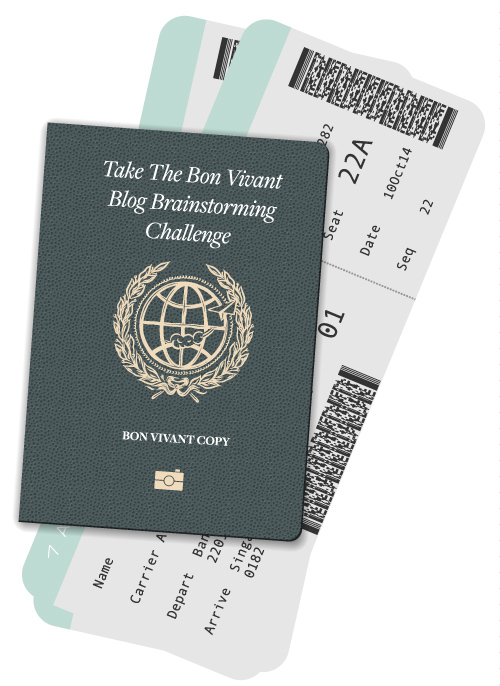
Psssst...Want to come up with a year's worth of blog posts—in just 10 days?
You know you need a rockin’ blog and e-newsletter to attract awesome clients. You just don’t know what to write about … until now.
Sign up for my FREE 10-day Blog Brainstorming Challenge to banish those blog blues! You’ll get:
- 10 days of juicy blog prompts delivered straight to your inbox
- Sneaky tips on how to come up with travel content your readers will devour
- A super easy way to organize your entire year’s worth of blog content
You have Successfully Subscribed!

Home » Fonts » Fonts by Usage » 27 Travel Fonts That Perfectly Capture the Spirit of Adventure
27 Travel Fonts That Perfectly Capture the Spirit of Adventure
- November 15, 2023
- Written by a professional
Summary : Today, I've showcased 27 captivating travel fonts, each evoking its unique sense of journey and adventure. My top 3 choices are:
- Traveler – Perfectly capturing the essence of both casual jaunts and planned excursions.
- Wanderlust – A beautiful blend of boldness and expressiveness.
- Heritage – A timeless elegance reminiscent of classic travel journals.
In my perspective, travel fonts are more than just typography – they breathe life into the narrative. Whether you're crafting a travel blog post or designing a tourism brochure, the right font can set the perfect adventurous tone. Embark on a journey with these fonts; each one narrates its unique travel story.

TOP 27 travel fonts
Audacity script, dale adventure, adventure memorie, world explorer, dolce caffè, risky venture, sutter camp, travel journal.

- Licence: CreativeMarket
- About Traveler: A perfect blend of script and sans-serif, this font duo captures the essence of both casual journeys and planned itineraries, making it versatile for different travel vibes.
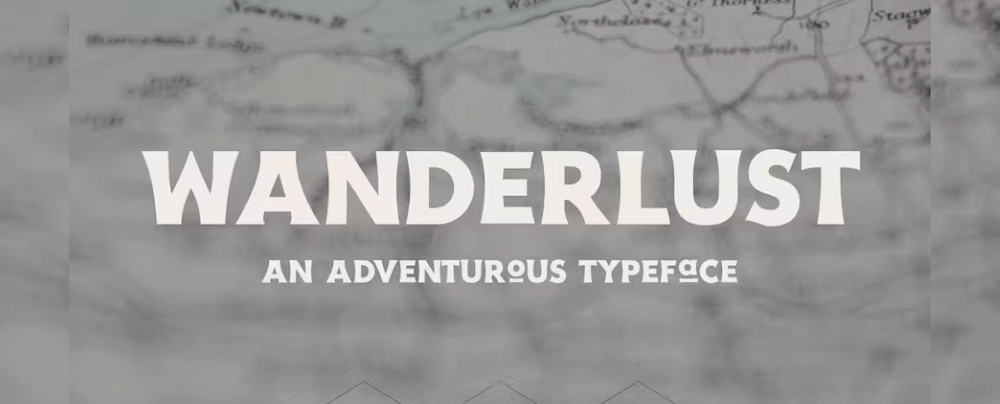
- Licence: Envato Elements
- About Wanderlust: True to its name, this font evokes a strong desire to travel and explore the world. Its bold and expressive design makes it perfect for headlines and logos.

- About Heritage: This font combination presents a timeless elegance, which is reminiscent of classic travel journals and old-world charm.

- About Jumps Over: A casual, handwritten font that gives off a spontaneous and adventurous vibe – perfect for those impromptu trips.

- About Whitby: Retro-inspired, Whitby has a classic touch, perfect for capturing the nostalgia of past adventures or creating vintage-themed travel designs.

- About The Risk: A bold, handmade font that captures the thrill and excitement of embarking on a new journey or adventure.
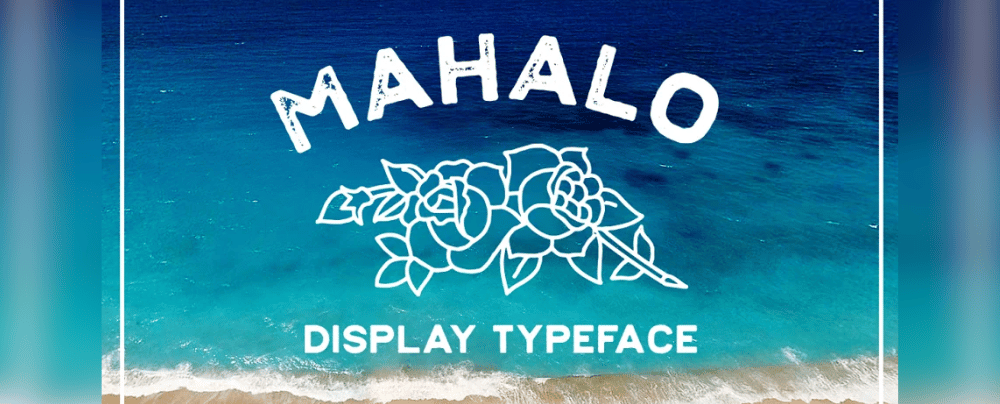
- About Mahalo: This font exudes tropical vibes, reminiscent of island getaways and sun-soaked beaches.

- About Audacity Script: A bold and flowing script that captures the spirit of grand adventures and unforgettable experiences.
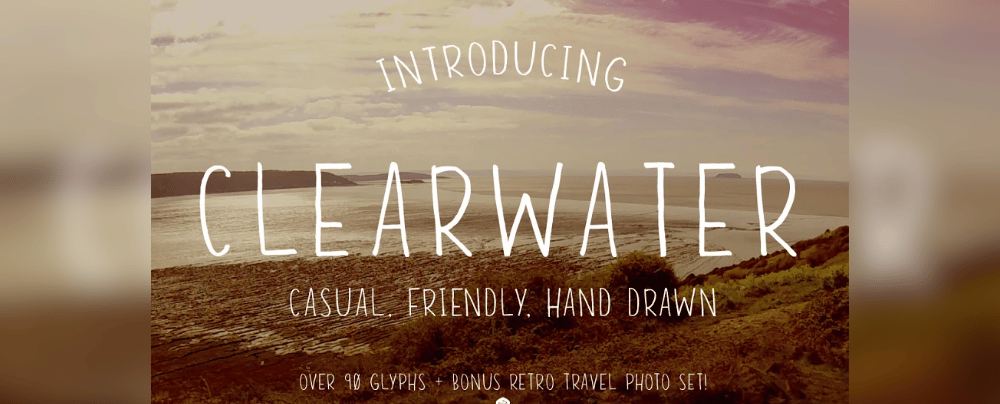
- About Clearwater: With its hand-drawn design, Clearwater brings to mind rustic travels, camping adventures, and the great outdoors.

- About Dale Adventure: Embracing the spirit of exploration, this font is perfect for designs centered around mountainous terrains and wilderness experiences.
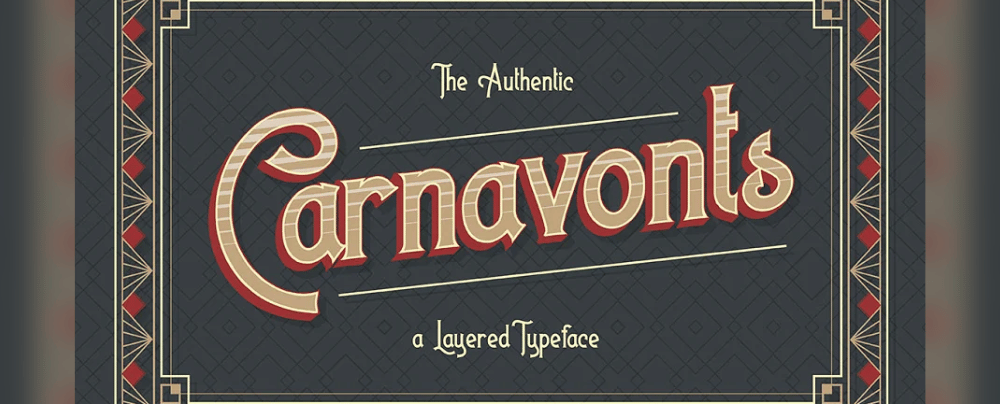
- About Carnavonts: A fun and decorative font, Carnavonts captures the joy and excitement of carnivals and festivals during travels.

- About Adventure Memorie: Combining calligraphy with handwritten design, this font duo beautifully captures the sentimentality of travel memories.

- About World Explorer: This handmade, stamped font evokes a sense of vintage travel logs and journals filled with tales of global adventures.

- About Wolfer: A vintage-inspired font that brings to mind adventurous quests and old-world exploration.

- About Dolce Caffè: A font that captures the relaxed vibes of European cafes, perfect for portraying leisure travels and gastronomic adventures.

- About Mountager: A vintage sans-serif that evokes feelings of mountainous adventures and rustic escapades.

- About South Mind: A casual font with a hint of tropical vibes, capturing the spirit of coastal and beach travels.

- About Alaska: With its bold and adventurous design, Alaska perfectly embodies the wilderness and rugged beauty of its namesake.

- About Havana: This display font exudes the vibrant and colorful culture of Havana, making it perfect for designs centered around tropical destinations.
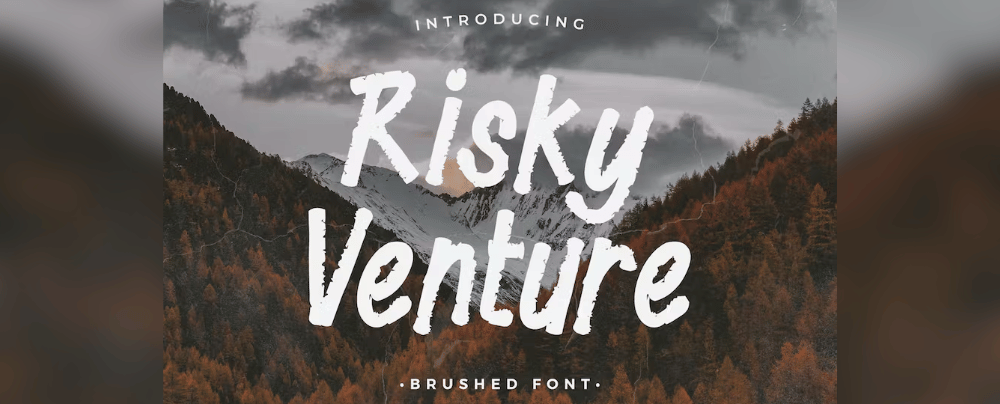
- About Risky Venture: A brush font that encapsulates the thrill and unpredictability of adventurous travels.

- About Karima: An elegant script that can beautifully capture the romance and luxury of exotic travels.

- About Traveller: Another aptly named font that portrays the essence of the journey, whether it's a grand adventure or a simple getaway.
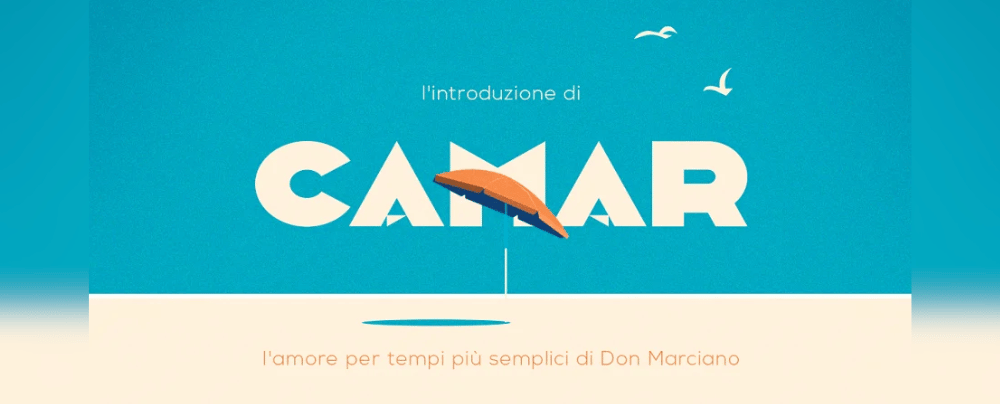
- About Camar: With its vintage touch, Camar brings forth the elegance and charm of old-world travels.

- About Sutter Camp: This vintage typeface evokes feelings of camping in the great outdoors and connecting with nature.

- About EXPLORER: With nautical inspirations, this typeface perfectly captures sea voyages and oceanic adventures.

- About Atlas: A balanced combination of sans and slab, Atlas is versatile and can fit various travel-themed designs, from maps to journals.

- About Travel Journal: A handwriting font that perfectly captures the spontaneity and authenticity of jotting down travel memories.
Want more amazing fonts?

Browse tons of fonts & design elements!
- If you want to find more fonts, browse my favorite site: Envato Elements .
- On Envato, you can get unlimited downloads of thousands of design assets just with 1 subscription.
- I personally use Envato for all my designs and couldn’t be happier – it helps me save so much time.
- They have literally millions of stock photos, videos, fonts, templates, music, and much more!
How to choose the best travel fonts?
- Connect with the Destination's Essence : When selecting a travel font, it's crucial to grasp the ambiance of the destination you're representing – be it tropical, historical, adventurous, or luxurious.
- Readability vs. Wanderlust Impact : While travel fonts may evoke a sense of adventure, it's essential to strike a balance between being captivating and ensuring legibility for your readers.
- Harmony with Design Elements : Your chosen font should integrate effortlessly with accompanying visual elements, such as images of landscapes, cultural motifs, and travel-related icons, creating a cohesive design narrative.
- Versatility : Opt for a travel font that boasts a variety of weights and styles. This ensures consistency, whether you're designing a brochure, a blog header, or an advertisement.
- Consider the Journey's Theme : Think about the nature of your travel content. Is it about backpacking adventures, luxury cruises, or historical explorations? Your font choice should reflect and amplify the essence of the journey.
What are travel fonts usually used for?
- Travel Brochures & Itineraries : A well-chosen travel font can encapsulate the spirit and vibe of a destination, making promotional materials even more enticing.
- Travel Blogs & Websites : The right font enhances the narrative, making readers feel as if they're on the journey with you.
- Cultural and Historical Documentaries : For content that dives deep into a place's heritage, fonts that resonate with the period or culture can elevate the entire presentation.
- Adventure Gear and Branding : Fonts that exude a sense of adventure can be perfect for brands selling hiking, camping, or other outdoor gear.
- Travel-themed Digital Art : Incorporating appropriate fonts can add an element of authenticity to digital art focused on places or journeys.
- Event Advertisements for Travel Fairs : Travel fonts can capture the essence of diverse destinations, making them ideal for events that showcase various travel opportunities.
- Book Covers for Travelogues : Using the right font can draw readers into the tales of wanderlust, promising stories filled with adventures and discoveries.
In my view, choosing the ideal travel font is akin to capturing the essence of a journey. If you're looking to encapsulate the spirit of adventure, wanderlust, or heritage, then Traveler , Wanderlust , and Heritage are your go-to fonts. Each brings a distinct vibe, transforming a simple design into a voyage-filled canvas. So embark on this typographic journey, experiment with these fonts, and let your designs tell a story. Travel on!
Latest Articles on Goofy Designer

10 Best After Effects Award Show Templates (My Favorites)
Summary: In this guide, I’ve picked out 10 amazing After Effects templates for award shows that I think will really make your video projects shine.

10 Best After Effects Hud UI Packs (My Favorites)
Summary: In this guide, I’ve meticulously curated a selection of 10 outstanding After Effects HUD UI template packs that I believe will perfectly complement your

10 Best After Effects Action Vfx templates (My Favorites)
Summary: In this guide, I’ve chosen a selection of 10 outstanding After Effects action VFX (visual effects) templates that I believe will perfectly complement your

10 Best After Effects Company Profile Video Templates (My Favorites)
Summary: In this guide, I’ve carefully selected a collection of 10 excellent After Effects company profile video templates that I think are perfect for improving

Stay notified

Hana Terber
Synonyms of elegant
- as in graceful
- as in exquisite
- More from M-W
- To save this word, you'll need to log in. Log In
Thesaurus Definition of elegant
Synonyms & Similar Words
- magnificent
- sophisticated
- aristocratic
- fashionable
- conservative
- understated
- ostentatious
- pretentious
Antonyms & Near Antonyms
- unfashionable
- uncultivated
- rough - hewn
- ticky - tacky
- ticky - tack
- rough - edged
- exceptional
- outstanding
- high - grade
- sensational
- first - class
- superlative
- first - rate
- transcendent
- par excellence
- unsurpassed
- top - notch
- second - class
- unsatisfactory
- unacceptable
- mass - produced
- second - rate
- substandard
- low - grade
- run - of - the - mill
- run - of - the - mine
- run - of - mine
Try This Instead
Synonym chooser.
How is the word elegant different from other adjectives like it?
Some common synonyms of elegant are choice , dainty , delicate , exquisite , and rare . While all these words mean "having qualities that appeal to a cultivated taste," elegant applies to what is rich and luxurious but restrained by good taste.
When is it sensible to use choice instead of elegant ?
In some situations, the words choice and elegant are roughly equivalent. However, choice stresses preeminence in quality or kind.
Where would dainty be a reasonable alternative to elegant ?
Although the words dainty and elegant have much in common, dainty sometimes carries an additional suggestion of smallness and of appeal to the eye or palate.
When is delicate a more appropriate choice than elegant ?
The meanings of delicate and elegant largely overlap; however, delicate implies exquisiteness, subtlety, and fragility.
When would exquisite be a good substitute for elegant ?
While in some cases nearly identical to elegant , exquisite implies a perfection in workmanship or design that appeals only to very sensitive taste.
When might rare be a better fit than elegant ?
While the synonyms rare and elegant are close in meaning, rare suggests an uncommon excellence.
Thesaurus Entries Near elegant
Cite this entry.
“Elegant.” Merriam-Webster.com Thesaurus , Merriam-Webster, https://www.merriam-webster.com/thesaurus/elegant. Accessed 2 May. 2024.
More from Merriam-Webster on elegant
Nglish: Translation of elegant for Spanish Speakers
Britannica English: Translation of elegant for Arabic Speakers
Subscribe to America's largest dictionary and get thousands more definitions and advanced search—ad free!

Can you solve 4 words at once?
Word of the day.
See Definitions and Examples »
Get Word of the Day daily email!
Popular in Grammar & Usage
What’s the difference between ‘hillbilly’ and ‘redneck’, more commonly misspelled words, commonly misspelled words, how to use em dashes (—), en dashes (–) , and hyphens (-), absent letters that are heard anyway, popular in wordplay, the words of the week - apr. 26, 9 superb owl words, 'gaslighting,' 'woke,' 'democracy,' and other top lookups, 10 words for lesser-known games and sports, your favorite band is in the dictionary, games & quizzes.


IMAGES
VIDEO
COMMENTS
Merak (n.) Origin: Serbian. Pronunciation: mir-ak. Meaning: enjoyment of the simple things in life; the feeling of bliss and sense of oneness with the universe that comes from the simplest of pleasures; the pursuit of small, daily pleasures that all add up to a great sense of happiness and fulfillment.
4. Fernweh (n.) Origin: German. Definition: This German word,means an ache to get away and travel to a distant place, a feeling even stronger than wanderlust. If wanderlust wasn't poetic enough for you, allow me to present fernweh, a German word that literally translates to "distance-sickness.".
About this blog: This contains 38 unique and creative travel words that you can use in your travel vocabulary. Use them in your travel captions or use them for naming your blog. Oh, yes! We love to travel. And we love to get amazed at new experiences. We love to look over in awe at the jaw-dropping scenery before us. At times, words fail.
Travel for me is humbling. Every day teaches me a new lesson and allows me to reflect on what I have, where I am, and ultimately, to be able to just appreciate the simple things in life like a home-cooked meal or my mom and dad's hugs when I'm ill. 19. Dérive (noun) To drift unplanned, led only by the landscape.
Here are 57 creative travel words that will inspire the wanderer in you. A strong longing for or impulse toward wandering. A mania or frantic zeal for freedom. A deep desire to get away to a foreign place. Direct translation: "distance-sickness.". An imaginary land of luxury and idleness.
Which it is. Travel brochures of the future will be littered with the likes of resfeber, eudaimonia and fernweh. At least, they will if we have anything to do with it. TAKE IT AWAY, WORDS! 1. Trouvaille (n.) Origin: French. Something lovely discovered by chance, like stumbling on a waterfall in Costa Rica. 2.
Words to describe travel experience. 11. Novaturient (adj.) A desire to change and alter your life. 12. Selcouth (adj.) Strange and uncommon, the way you see things when you travel. 13. Eudaimonia (n.) The contented happy stated we feel when we travel.
1. Vagary. From the Latin vagari, meaning "to wander," this 16th-century word originally meant a wandering journey. Nowadays, "vagaries" refer to unpredictable or erratic situations, but that ...
A List Of 27 Creative Travel Words. 1. Hozhoni. Definition: An American Indian Navajo word meaning a feeling of being filled with beauty and balance. Although this is a list of creative travel words in English, there are words included that came from other cultures. Hozhoni describes the feeling that everything is right where it needs to be.
An urge to travel even stronger than wanderlust. That feeling you get when you've been home too long and you ache to be out into the world again. Sometimes you don't know where you want to be, but you know that it's away. Sometimes you know where, and you want to get there as quickly as possible. This is that feeling.
Origin: Greek. This attraction, appreciation, and affinity for foreign people, their cultures and customs is what draws many to explore the world. These unique travel words, as a synonym for wanderlust, comes from the Greek "xenos," meaning "unknown, stranger, foreign" and "philia," defined as "attraction or love.".
Well, there are loads of different travel synonyms in different languages that'll help you describe what you're feeling perfectly. Take a look at this list filled with creative travel words, wanderlust synonyms, and travel lover synonyms. Expand your travel vocabulary! #1 Fernweh. Meaning: An urge to travel is even stronger than wanderlust.
inspirational travel quotes. 1. "To my mind, the greatest reward and luxury of travel is to be able to experience everyday things as if for the first time, to be in a position in which almost nothing is so familiar it is taken for granted.". - Bill Bryson. 2. "The world is a book and those who do not travel read only one page ...
There is no end to the adventures we can have if only we seek them with our eyes open.". - Jawaharial Nehru. "I travel not to go anywhere, but to go. I travel for travel's sake. The great affair is to move.". - Robert Louis Stevenson. "The journey of a thousand miles begins with a single step.". ― Lao Tzu. "Paris is always a ...
As the daughter of Aeolus, the god of winds, the bird possessed the power to calm the rough winds and waves. 12. Hermes. The name of the God of travel deserves a place in the most beautiful Greek travel words for obvious reasons. In Greek ἕρμα (herma) means "cairn, a pile of stones, boundary marker.".
Below is a list of some of the most beautiful English phrases, sayings, and expressions. English. Meaning. A change of heart. To suddenly change your mind. Adventure is the champagne of life. Adventure is what makes life bubbly! Every cloud has a silver lining. Even a negative situation has something positive.
In fact, one of its root words is cremesin, or cloth that is purplish-red. This is another one of those beautiful English words with a straightforward use. For example: Her crimson dress was absolutely stunning. 33. Crystalline. "Crystalline" is an adjective that means "like a crystal.".
The first place to look is at what you clients are already reading — books, magazines, etc. See what kinds of word show up in headlines and intro paragraphs, because that's the kind of copy your ideal client gravitates toward. Let's say you're wondering how to get luxury travel clients. If you're after more high-end clients, pull out ...
Clearwater - Hand Drawn Font. With its hand-drawn narrow lettering, Clearwater is a friendly traveler's font inspired by everyone's inner wanderlust. While it is meant to be a display font, this can be used as a casual body font. This set includes 10 bonus retro travel photos.
Summary: Today, I've showcased 27 captivating travel fonts, each evoking its unique sense of journey and adventure. My top 3 choices are: Traveler - Perfectly capturing the essence of both casual jaunts and planned excursions. Wanderlust - A beautiful blend of boldness and expressiveness. Heritage - A timeless elegance reminiscent of classic travel journals. In […]
2. Ebullience. A beautiful word that's probably best used to describe a litter of golden retriever puppies, ebullience is an intense feeling of excitement and enthusiasm. 3. Eudaemonia. Originating from the Greek word "eudaimon," eudaemonia is the state of being lucky or extremely happy.
Synonyms for ELEGANT: graceful, handsome, fine, luxurious, majestic, magnificent, classy, stylish; Antonyms of ELEGANT: inelegant, unfashionable, tasteless ...
Travel. Climate. Now Playing. Dramatic Moments As Bridge Washed By Heavy Rains 00:26. Next Up. You Can Name Punxsutawney Phil's Heirs 00:37. New Ban On Chemical In Your DIY Kit 00:43.